The day after Oscar’s craziest, shocking moment ever, questions still linger about why “La La Land” was announced best picture when “Moonlight” was the true winner.
L.A. Times’ film critic Justin Chang comes to the conclusion that the two movies’ fortunes were inextricable and the you-couldn’t-have-scripted-it finale oddly enough made sense.
- Share via
Matt Damon and Ben Affleck at the Oscars: A bromance for the ages
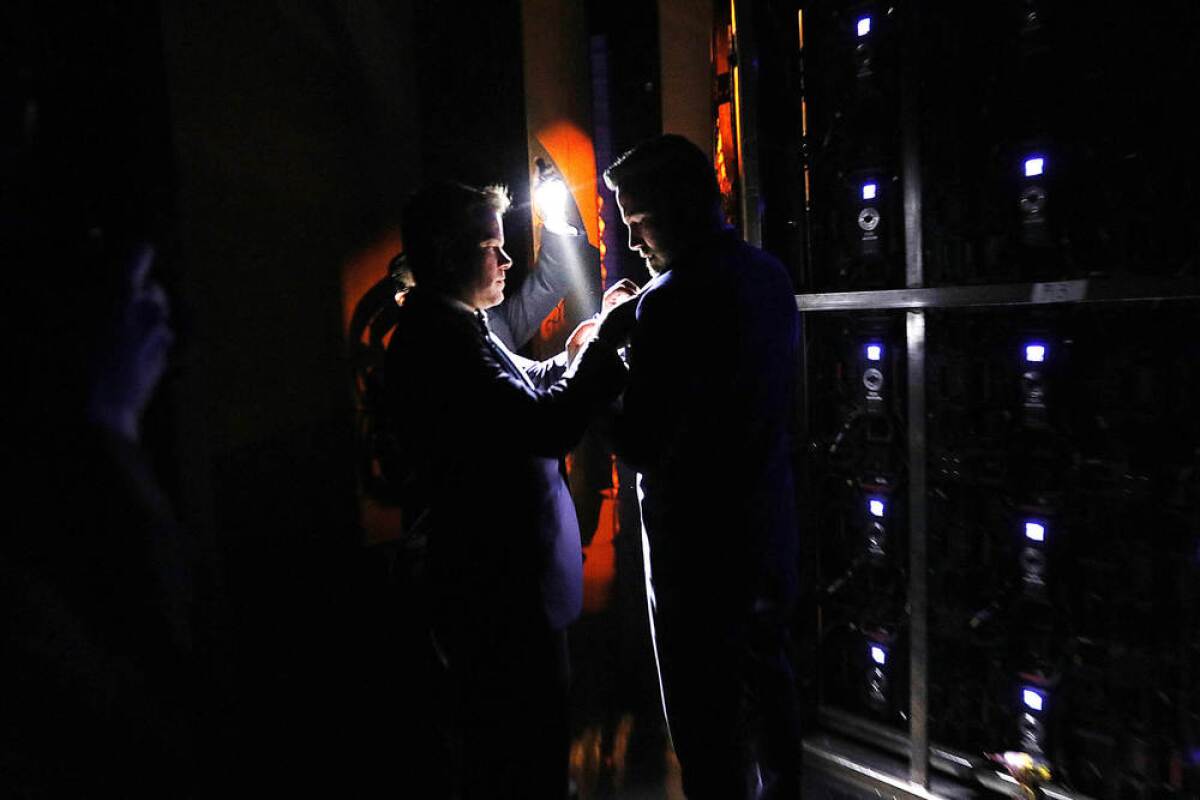
What can be more special than attending the Oscars? Attending the Oscars with your best friend, if these images of Ben Affleck and Matt Damon are anything to go by.
Affleck and Damon have been attending the Academy Awards on and off since they both won original screenplay for “Good Will Hunting” back in 1997.
And at the 89th Academy Awards Affleck and Damon were together, yet again, and their friendship was captured backstage, in the crowd and all over the Oscar show.
The duo showcased their chemistry when they took to the stage to present the award for directing.
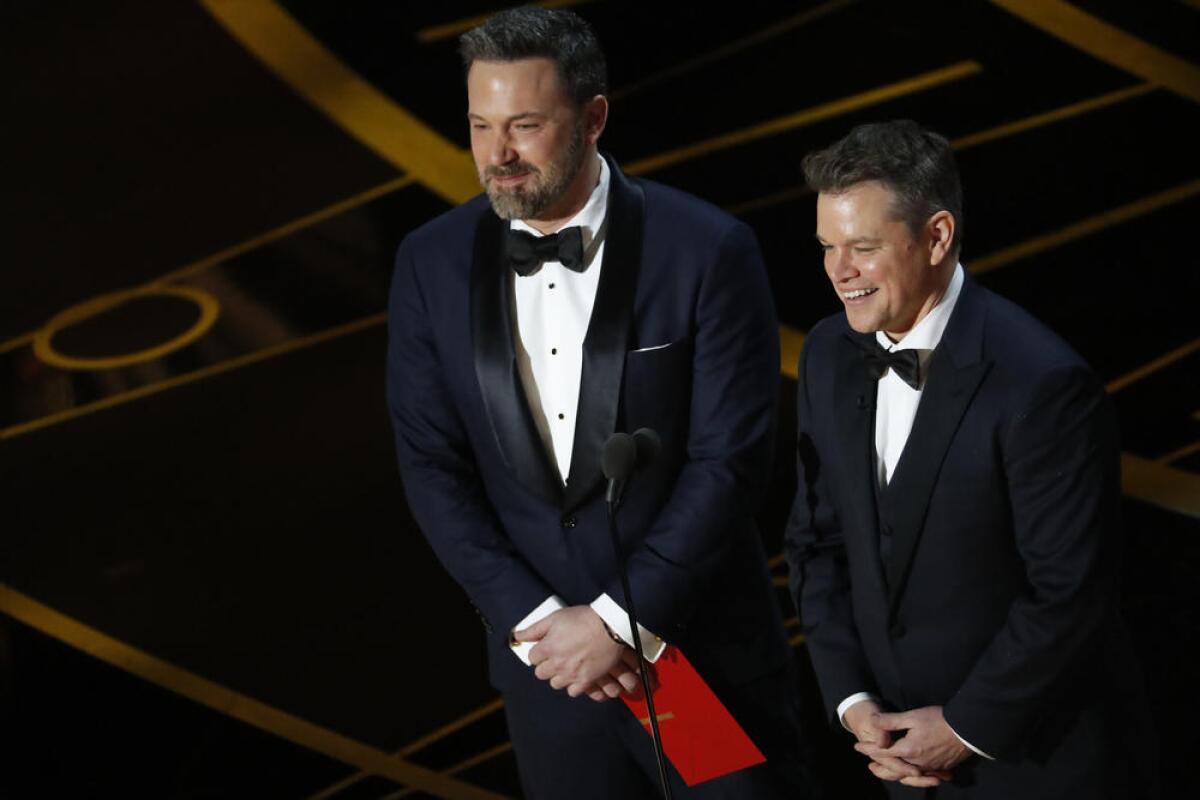
Even younger brother, and now Oscar winner, Casey Affleck was brought into the Matt and Ben embrace.
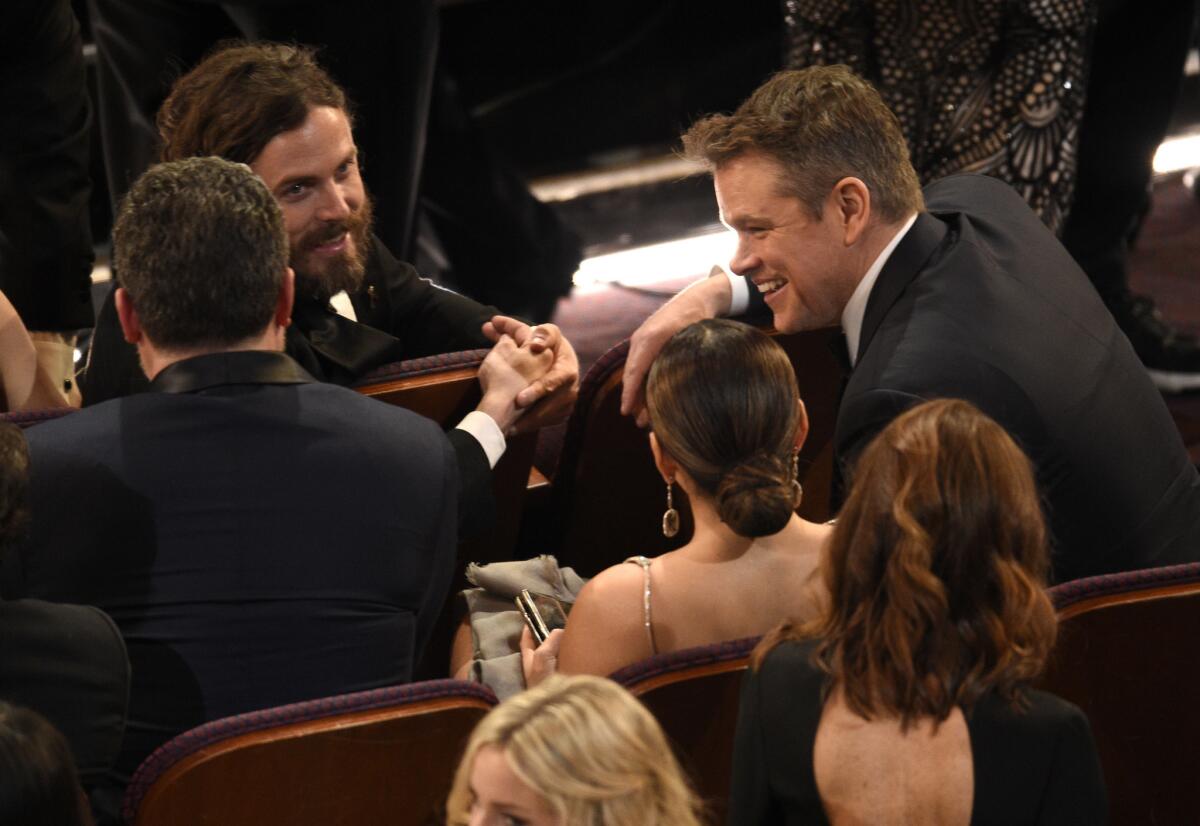
Really, this side hug speaks for itself.
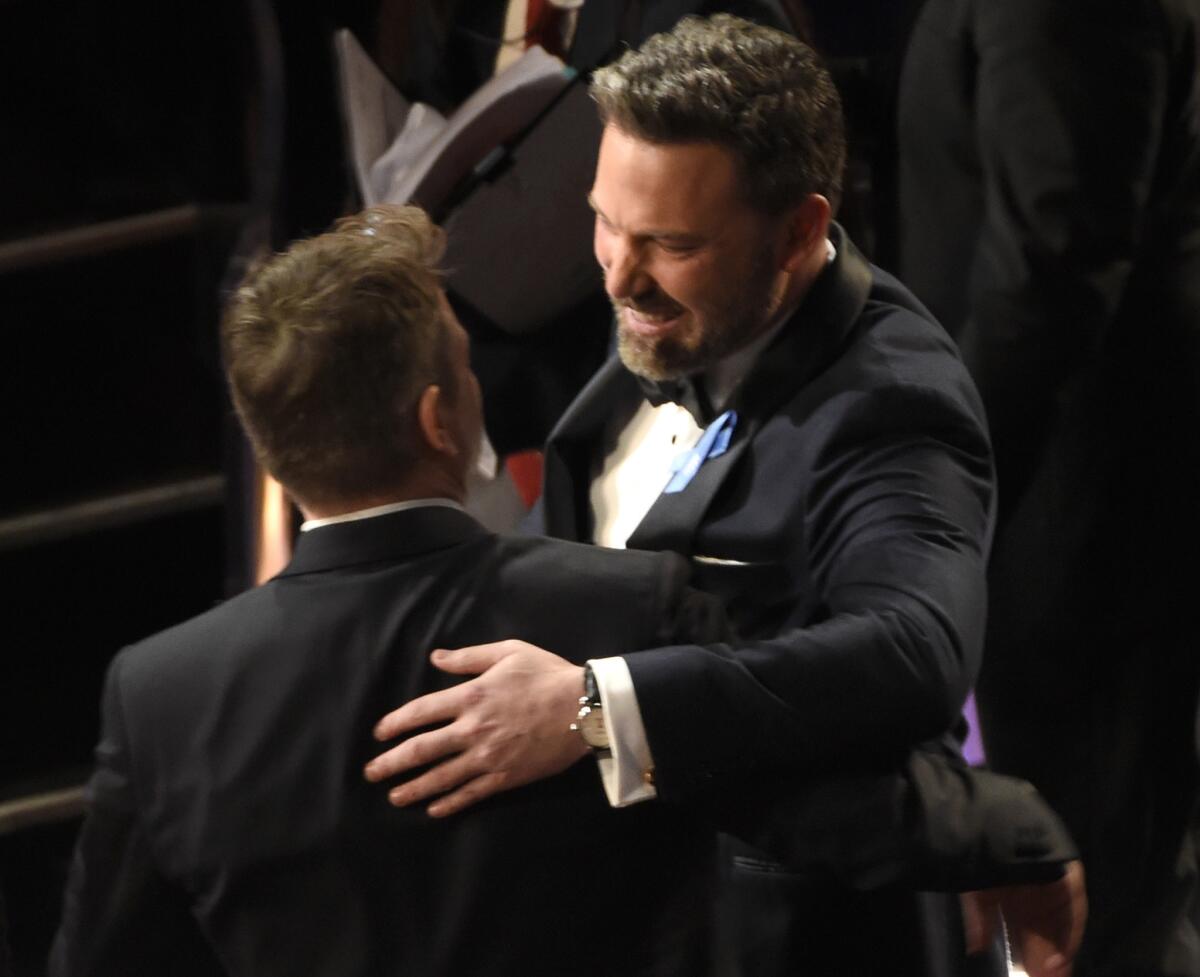
Then there was the big “Moonlight” surprise.
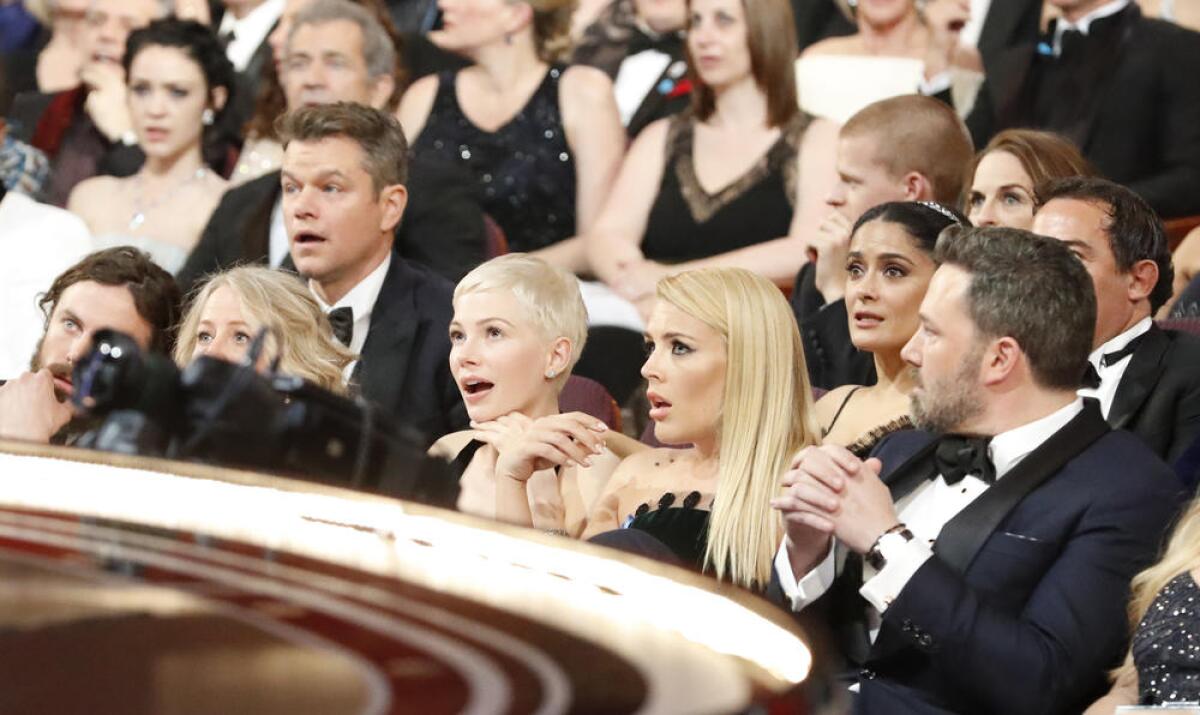
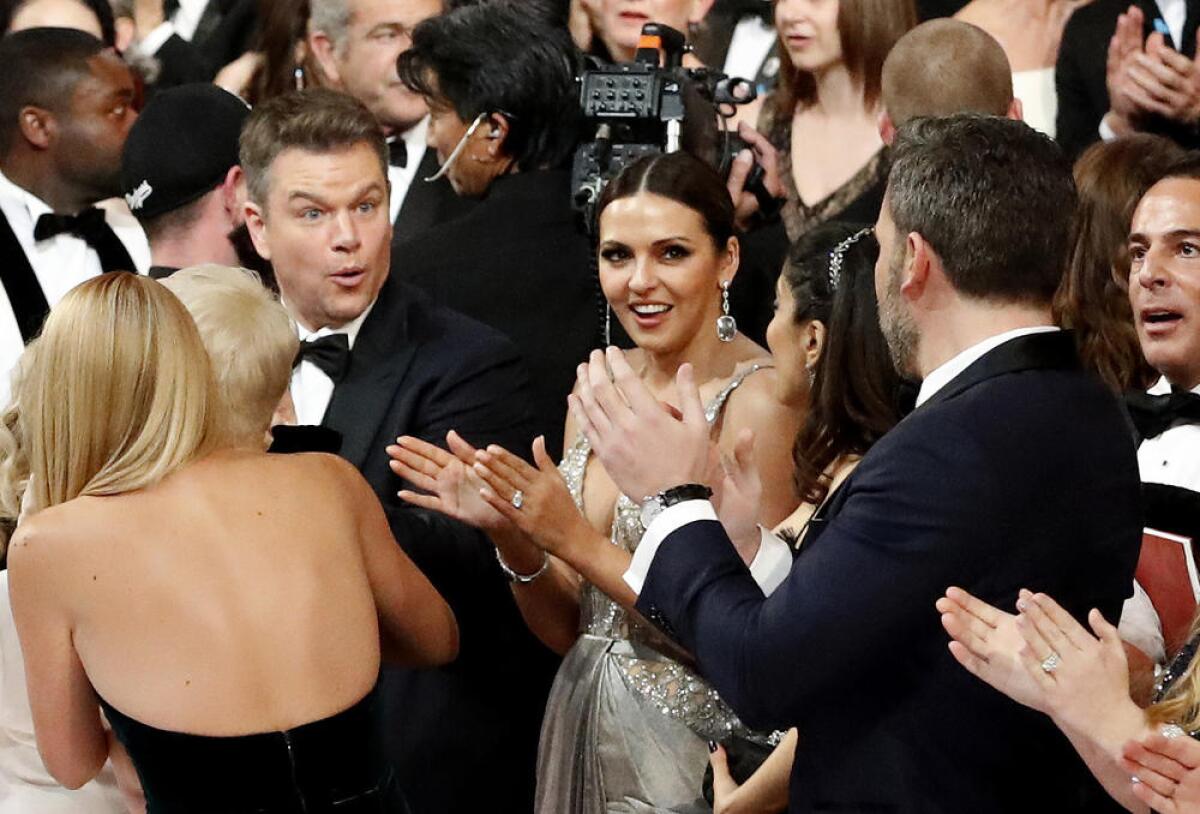
Let’s hear it for friendship everyone.
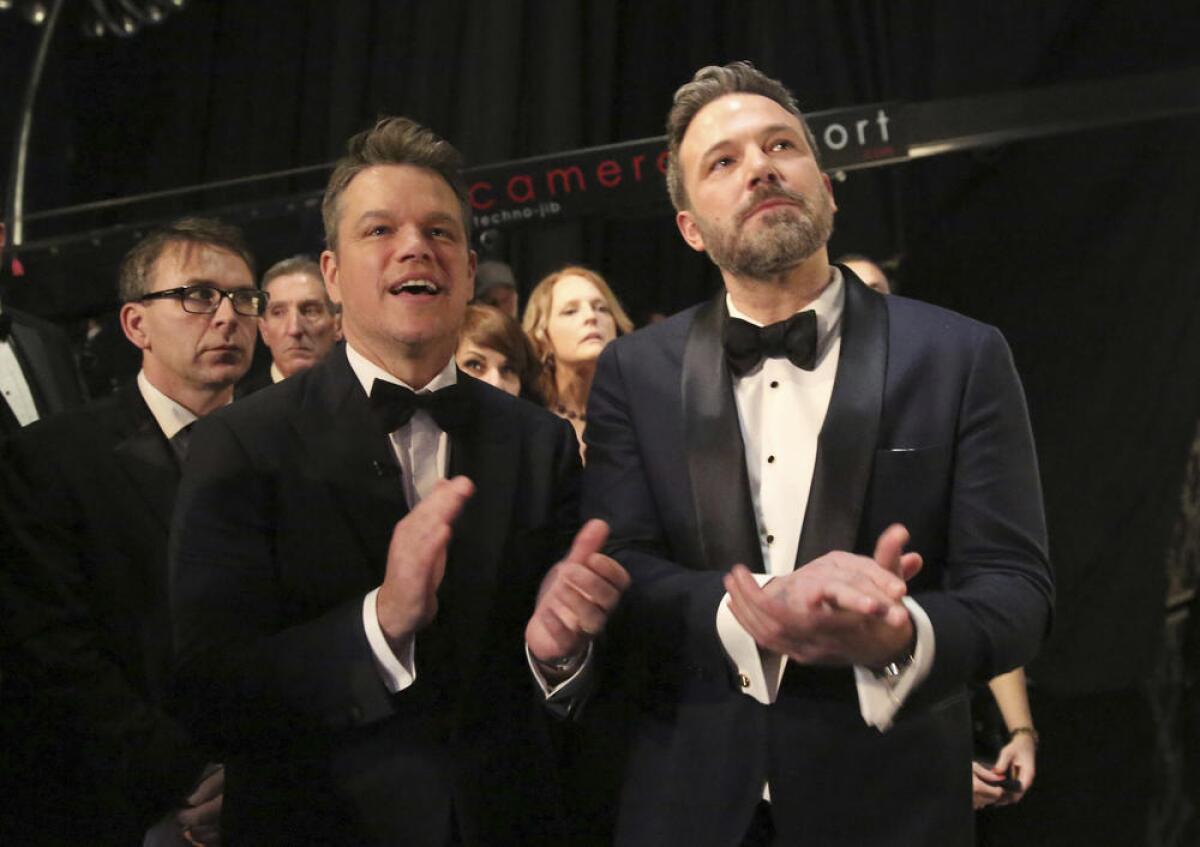
- Share via
Compare the fashion sketches behind your favorite Oscar gowns to the red carpet reality
The best picture gaffe may have dropped jaws inside the Dolby Theatre on Sunday, but before the show, these are the dresses that turned heads on the red carpet.
Stylist Petra Flannery Instagrammed this concept illustration of the beaded Givenchy Haute Couture gown “La La Land” star Emma Stone accepted her lead actress award in. The hand-embroidered gown reportedly took 1,700 hours to make.
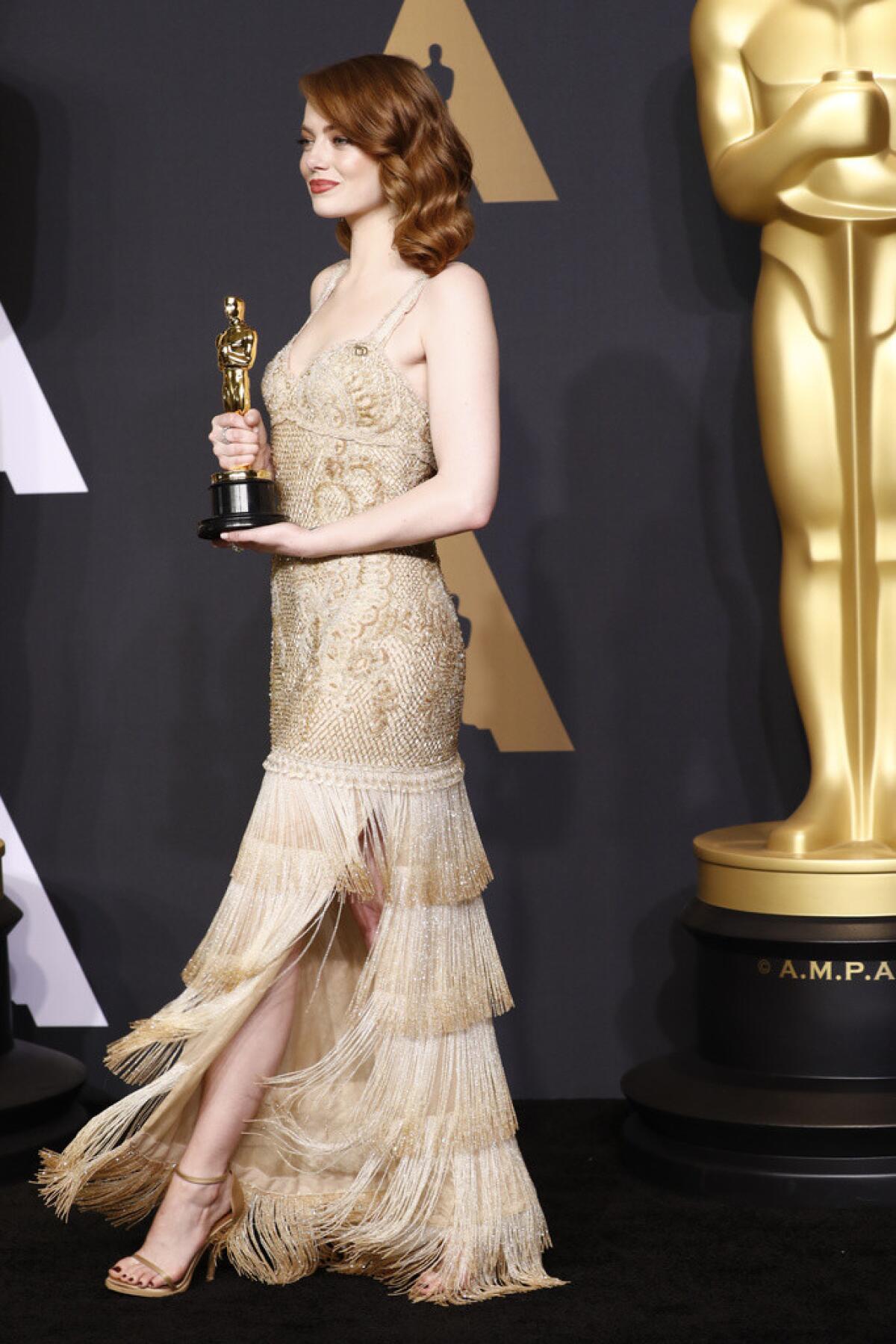
Another of the night’s standout looks was this custom-made blue velvet Alberta Ferretti number worn by “Hidden Figures” star Taraji P. Henson.
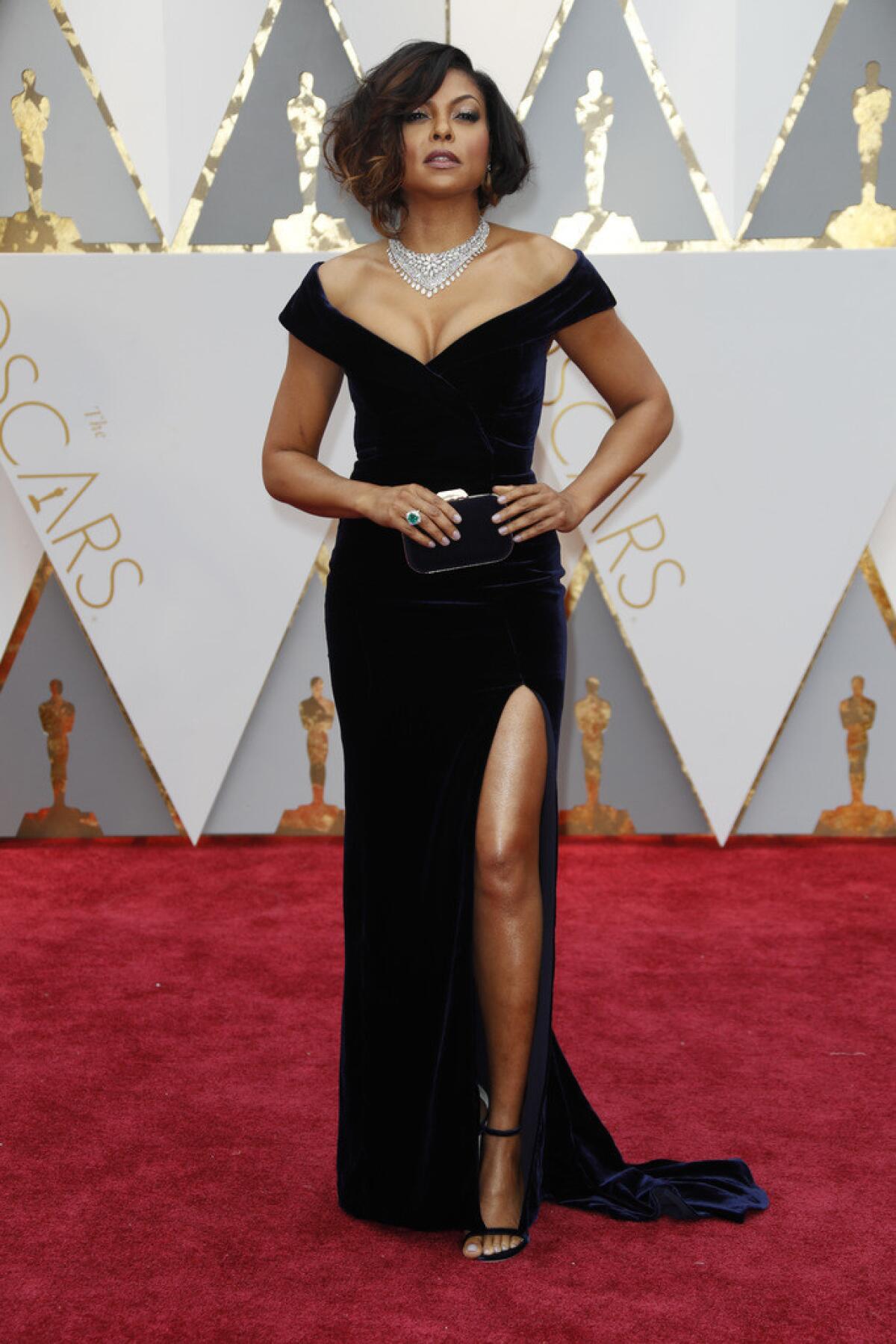
Check out our collection of fashion looks and their real life counterparts here.
- Share via
Warren Beatty calls on motion picture academy president to ‘publicly clarify’ Oscar snafu
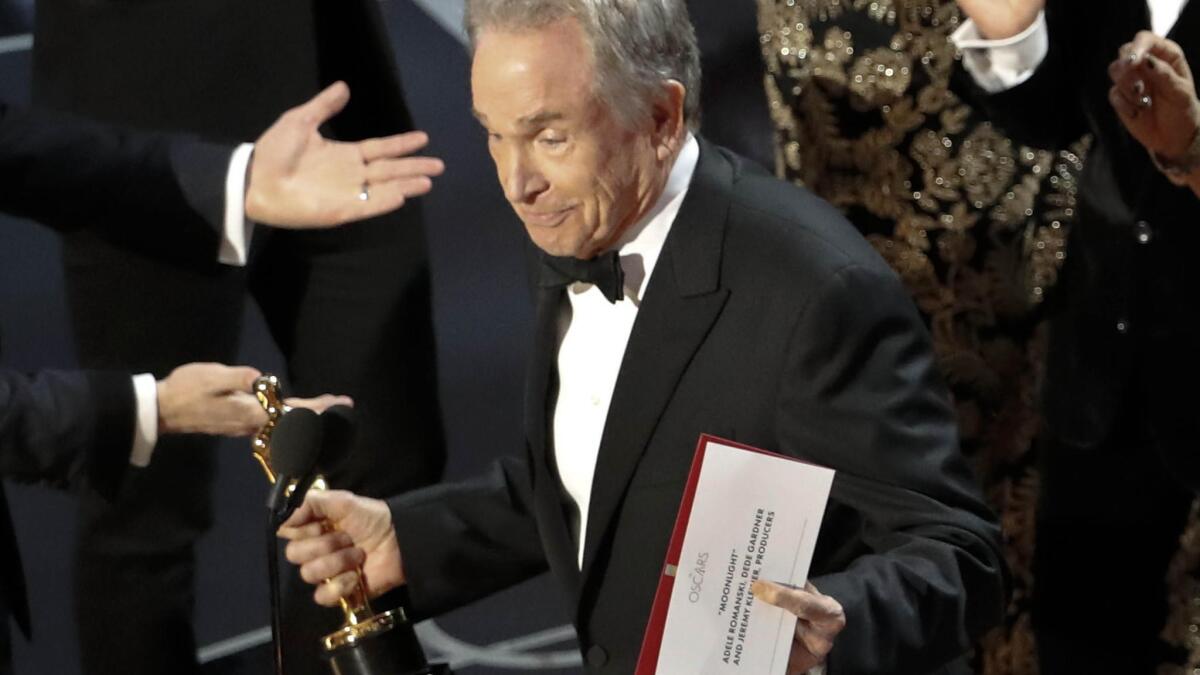
Two days after the Oscars, still facing questions about the best picture snafu in which he unwittingly found himself embroiled, Warren Beatty called on the Academy of Motion Picture Arts and Sciences to “publicly clarify” what exactly happened.
In a statement released Tuesday to the Associated Press, the actor declined to comment further on the fumble in which he and fellow presenter Faye Dunaway mistakenly named “La La Land” the best picture winner rather than “Moonlight.”
“I feel it would be more appropriate for the president of the Academy, Cheryl Boone Isaacs, to publicly clarify what happened as soon as possible,” Beatty said.
Beatty’s statement follows one issued Monday by the academy, apologizing for the mistake and saying that PricewaterhouseCoopers – the accounting firm that handles the Oscar envelopes – has “taken full responsibility for the breaches of established protocols that took place during the ceremony.”
Indeed, just hours after the ceremony, PricewaterhouseCoopers issued its own statement apologizing for the fact that “the presenters had mistakenly been given the wrong category envelope.”
Since then, The Times and other outlets have reported extensively – if not exhaustively – on the events that led to the Oscars gaffe.
The academy did not immediately respond to The Times on Tuesday to weigh in on Beatty’s statement.
Boone Isaacs has not yet commented publicly in any detail about the best picture bungle. But speaking with the New Yorker at the Governors Ball shortly after the show ended, she seemed as mystified as everyone else.
“I just thought, Oh, my God, how does this happen?” Boone Isaacs said. “How. Does. This. Happen.”
- Share via
Backstage peek: Ashton Sanders and Jharrel Jerome embrace backstage after ‘Moonlight’s’ best picture win
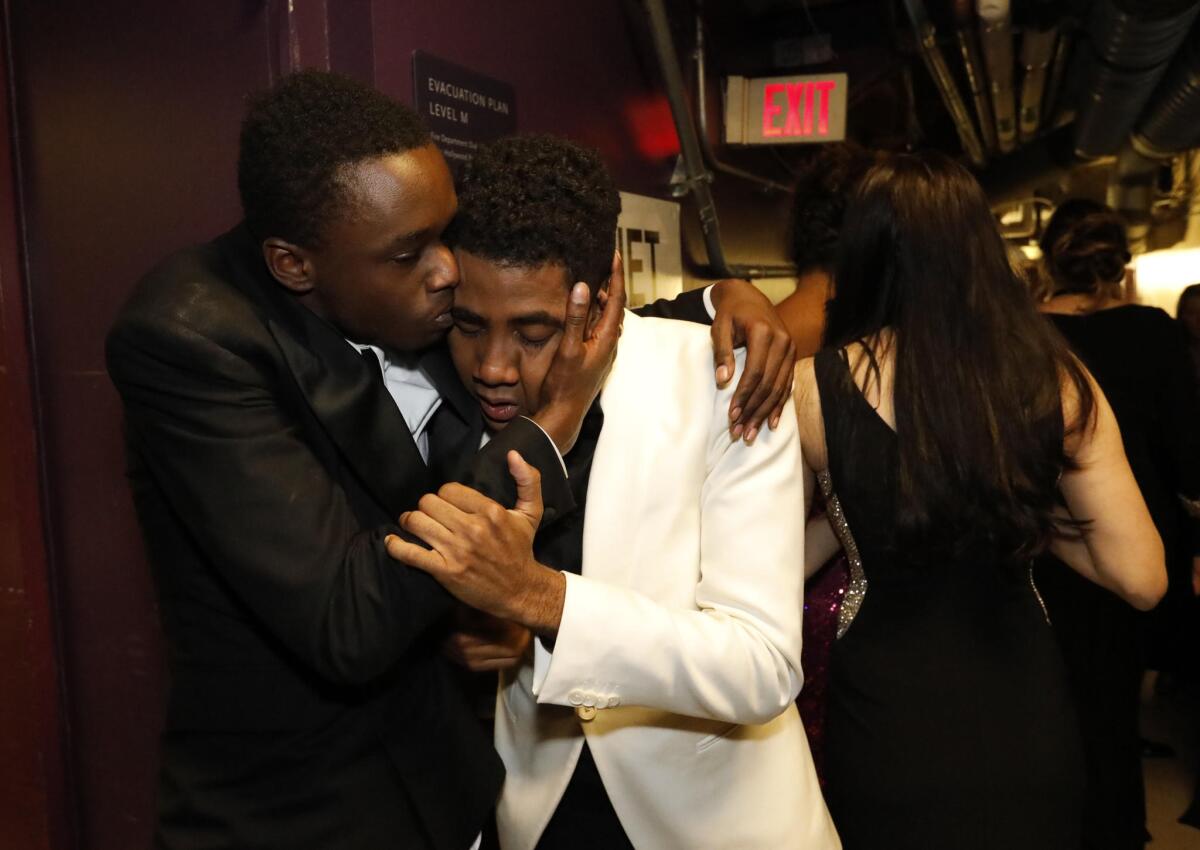
Very few media outlets get backstage positions for their photographers at the Academy Awards, but the L.A. Times has enjoyed such access for many years now. Here, you’ll get a peek at actors, actresses and filmmakers as they let their guards down, like Ashton Sanders, above left, and Jharrel Jerome embrace after “Moonlight” was (eventually) named best picture.
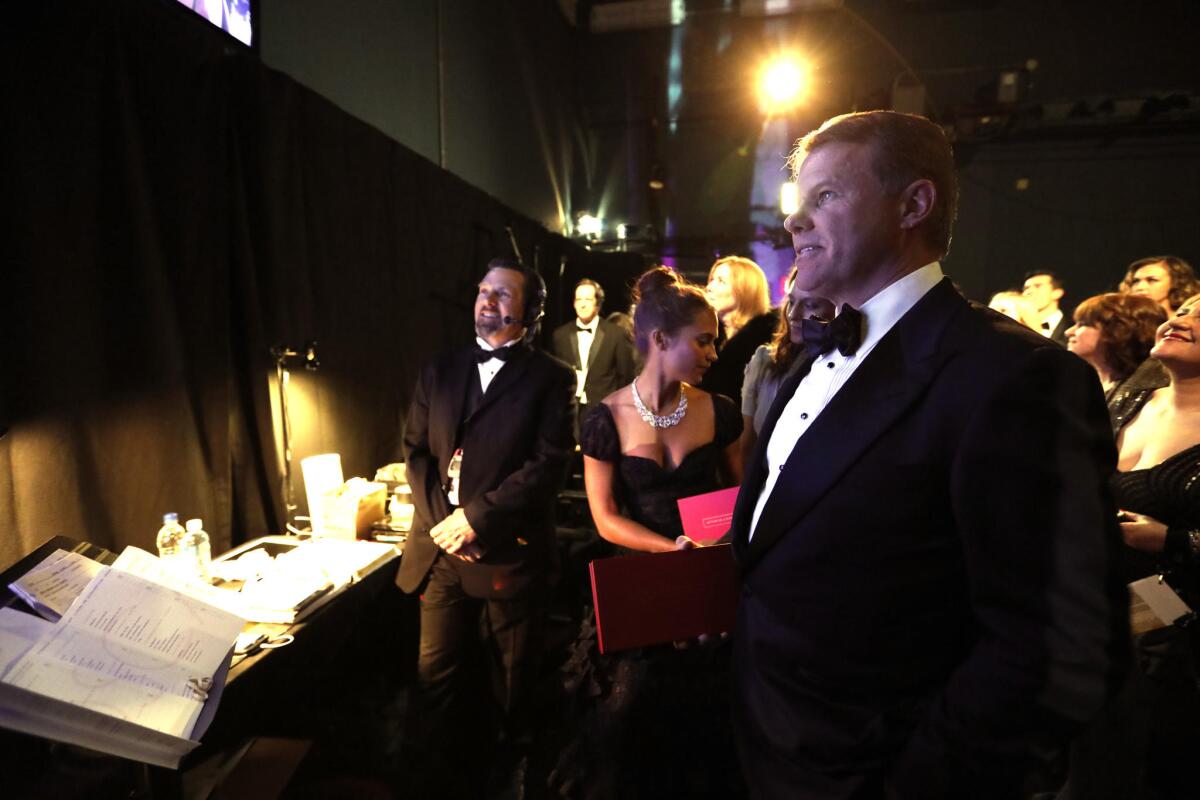
PricewaterhouseCoopers managing partner Brian Cullinan, above right, was one of only two people responsible for handing presenters the correct envelopes. It was Cullinan who gave Warren Beatty and Faye Dunaway the incorrect envelope for best picture.
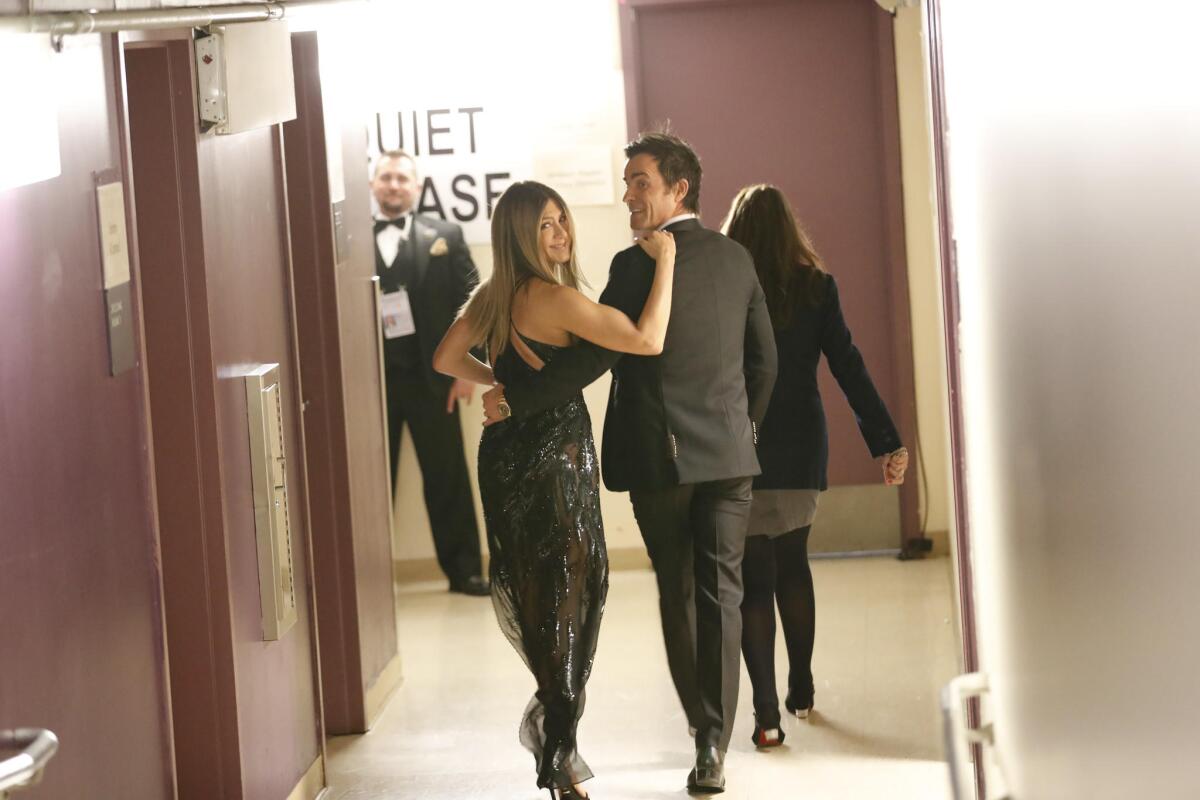
Hello, you two! Jennifer Aniston and Justin Theroux head to the stage.
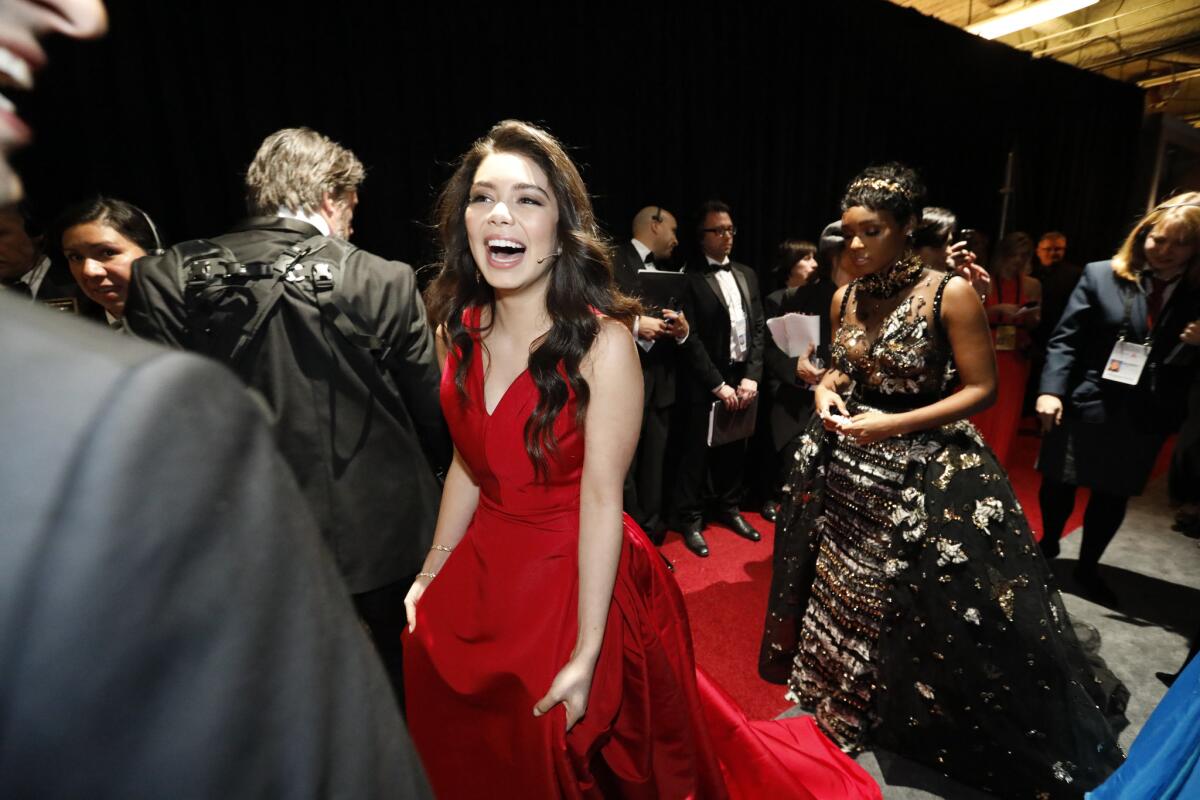
“Moana’s” Auli’i Cravalho, who performed “How Far I’ll Go” during the show, is all smiles backstage.
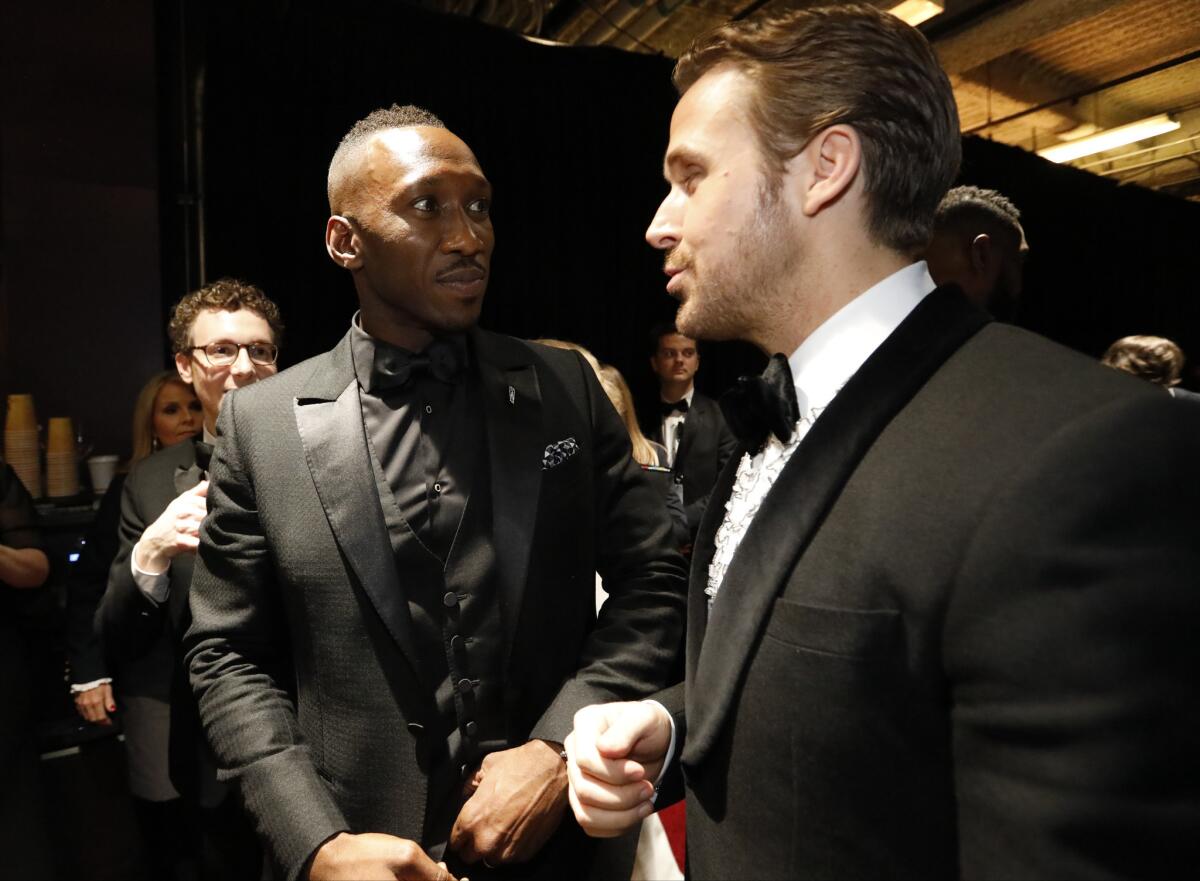
Mahershala Ali and Ryan Gosling share a moment after “Moonlight” was named the Oscar winner for best picture.
We’ve also compiled a gallery focused on the historic, crazy best picture debacle.
- Share via
After the Oscars, Calvin Klein celebrates ‘Moonlight’ cast in new men’s ad campaign
Turn your attention away from the best-picture envelope mishap at the Oscars on Sunday and check out the new black-and-white men’s underwear campaign from Calvin Klein, celebrating the Academy Award-winning “Moonlight.”
The ads are already causing a commotion on the Internet, leaving many to possibly swoon after seeing photos of Oscar winner (and shirtless Calvin Klein model) Mahershala Ali and Trevante Rhodes (wearing briefs).
Calvin Klein’s new spring 2017 underwear campaign, honoring the actors of “Moonlight,” the first LGBTQ film to win best picture at the Academy Awards, will run as print advertisements and appear on billboards. The campaign could broaden visibility and appeal for the indie movie, which was made on a shoestring budget.
In a post-Oscars move, Calvin Klein unveiled the underwear campaign Monday. In the photos, the older actors of “Moonlight” are dressed in what appear to be dark T-shirts and pants as well as in underwear.
The campaign shows Ali as well as actors Alex Hibbert, Ashton Sanders and Rhodes (the latter smiling and posing in black briefs in a club chair).
On a side note, the fashion label dressed four “Moonlight” cast members — Naomie Harris in a white strapless sequin dress; and Rhodes, Sanders and Hibbert (who played lead character Chiron at different ages) in tuxedos — for the Oscars at the Dolby Theatre in Hollywood on Sunday.
In a news release Monday, Raf Simons, Calvin Klein’s new chief creative officer, called the underwear campaign an “acknowledgement of remarkable actors who are revealing something important of being a man today in what they do.”
For decades, Calvin Klein has been known for its provocative advertisements and assortment of underwear models with Hollywood ties, including Mark Wahlberg, Djimon Hounsou, Justin Bieber, Mehcad Brooks, Kellan Lutz and Antonio Sabato Jr.
According to the news release from Calvin Klein, the new campaign with the “Moonlight” actors was shot by photographer Willy Vanderperre and styled by Olivier Rizzo.
- Share via
Brie Larson and Emma Stone’s Oscars hug shows us that friendship is magic
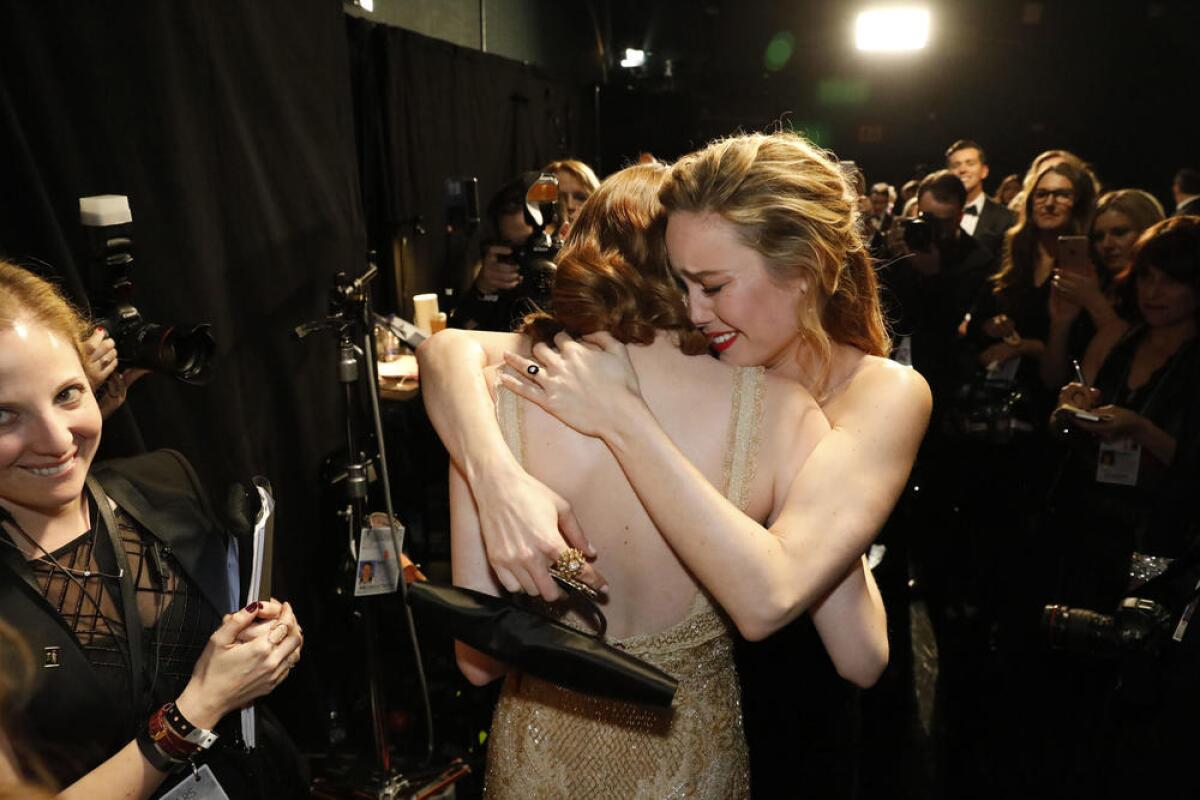
When Emma Stone won the Academy Award for actress in a leading role, Brie Larson was among the first people to congratulate the “La La Land” star in person.
“You know what’s better than winning? Watching your friends win,” said Larson on Twitter and Instagram of the emotional moment above.
As the many different angles shot of this heartfelt scene made the rounds, many fans commented that the tearful hug was among the highlights of the 2017 Oscars. Friendship is beautiful.
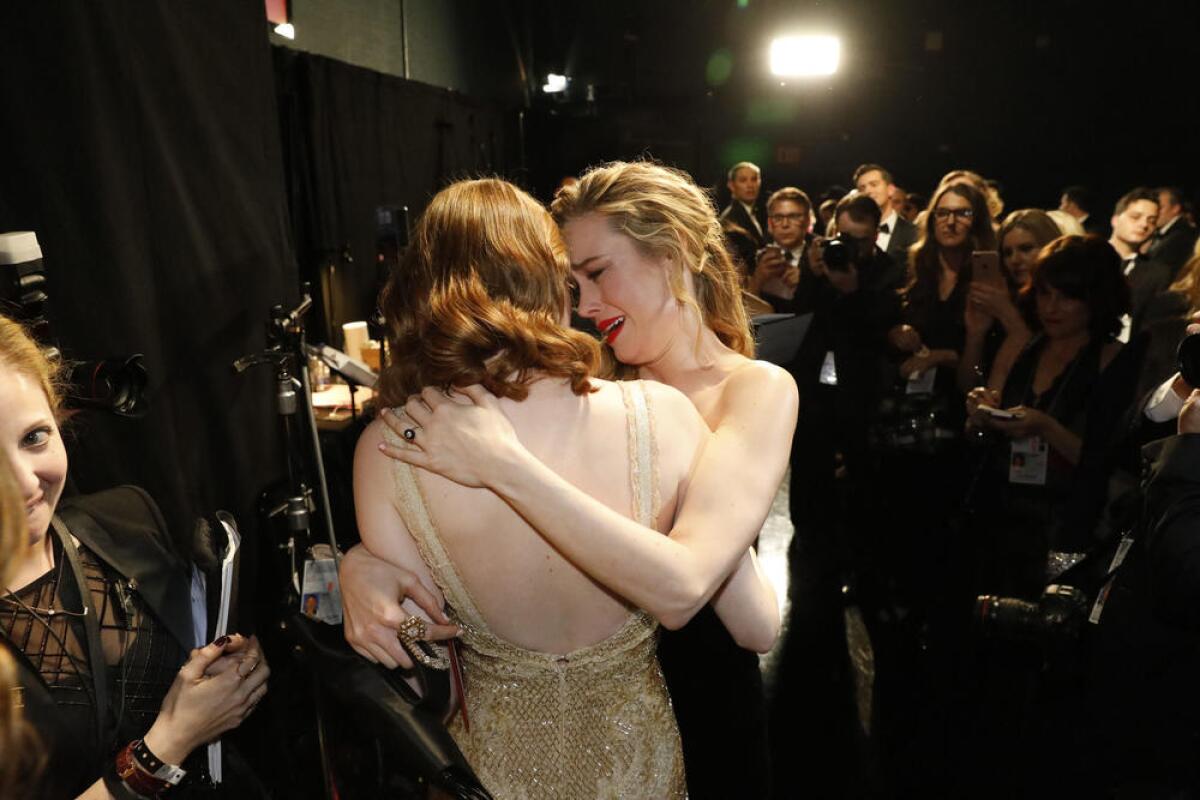
You can also watch a video of the hug seen ‘round the world below.
- Share via
Days before schmoozing at the Oscars, ‘Gary From Chicago’ got out of prison
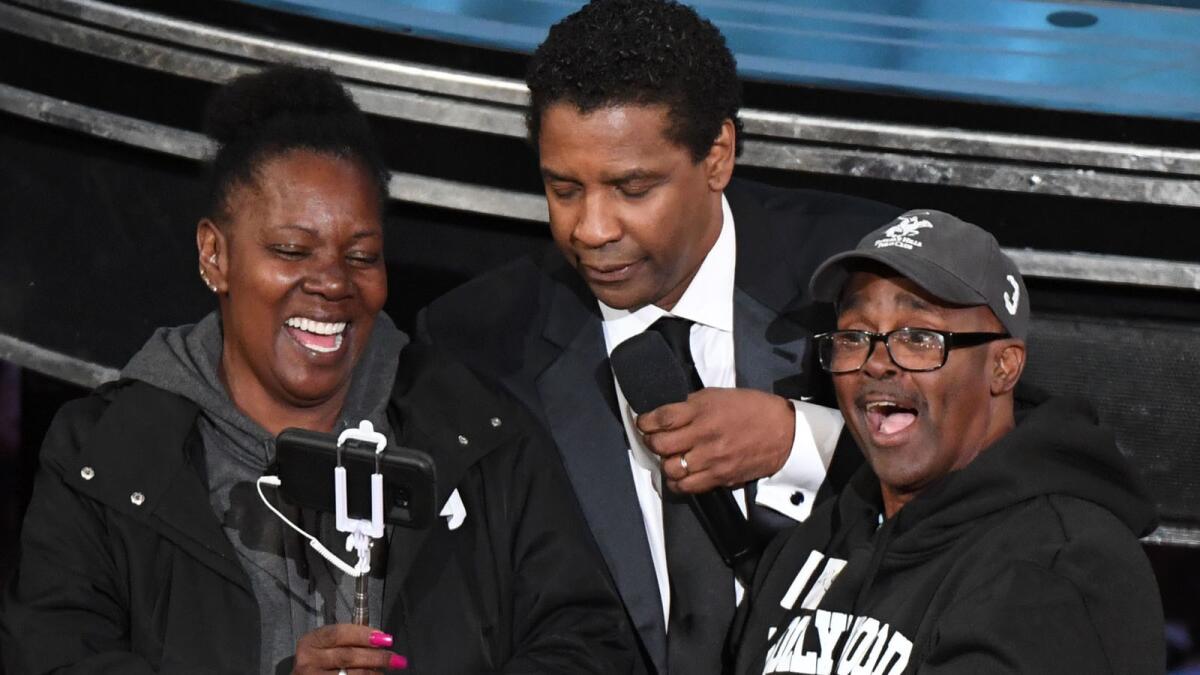
Jimmy Kimmel and the Oscars are unlikely to win any awards for casting.
Turns out viral sensation “Gary From Chicago,” a.k.a. Gary Alan Coe, the first unsuspecting tourist Jimmy Kimmel introduced to front-row A-listers on Sunday night, was released from prison only three days before he was kissing Nicole Kidman’s hand and getting “married” to fiancee Vickie Vines by Denzel Washington.
FULL STORY: From prison to the Oscars, ‘Gary From Chicago’ writes his own Hollywood ending
“I spent this afternoon laughing and crying with Gary and Vicky,” public defender Karen Nash posted Monday on Facebook. “For those of you who missed it, I spent years working on Gary’s case. He got a life sentence for stealing perfume in 1997, and we finally won release this year. He got out on Friday, and was sight seeing with his lovely fiancé Vicky. If you watched the Oscars, you know the rest.”
The devil, of course, is in the details: It was a three-strikes conviction in 1997 on petty theft with violent priors, which included a 1985 robbery in Michigan, a 1982 robbery in Illinois and an attempted rape in 1978. That last one also put him in the Megan’s Law sex offenders’ database. Coe was resentenced earlier this year under California’s Proposition 36 and was released Thursday.
The couple, who were plucked off Hollywood Boulevard on Sunday by the folks setting up Kimmel’s stunt, were chatting up Chicago media on Monday, and the Chicago Bulls tweeted, “Gary from Chicago! We’ve got you covered if you want to come to a game!”
“Jimmy Kimmel Live” dropped a planned bit with Coe from its Monday lineup, a spokesperson told the Chicago Tribune, after the show “made the creative decision to focus on other topics.”
- Share via
Dwayne Johnson and Busy Philipps explain their reactions in the Oscars’ ‘Moonlight’ surprise crowd shot
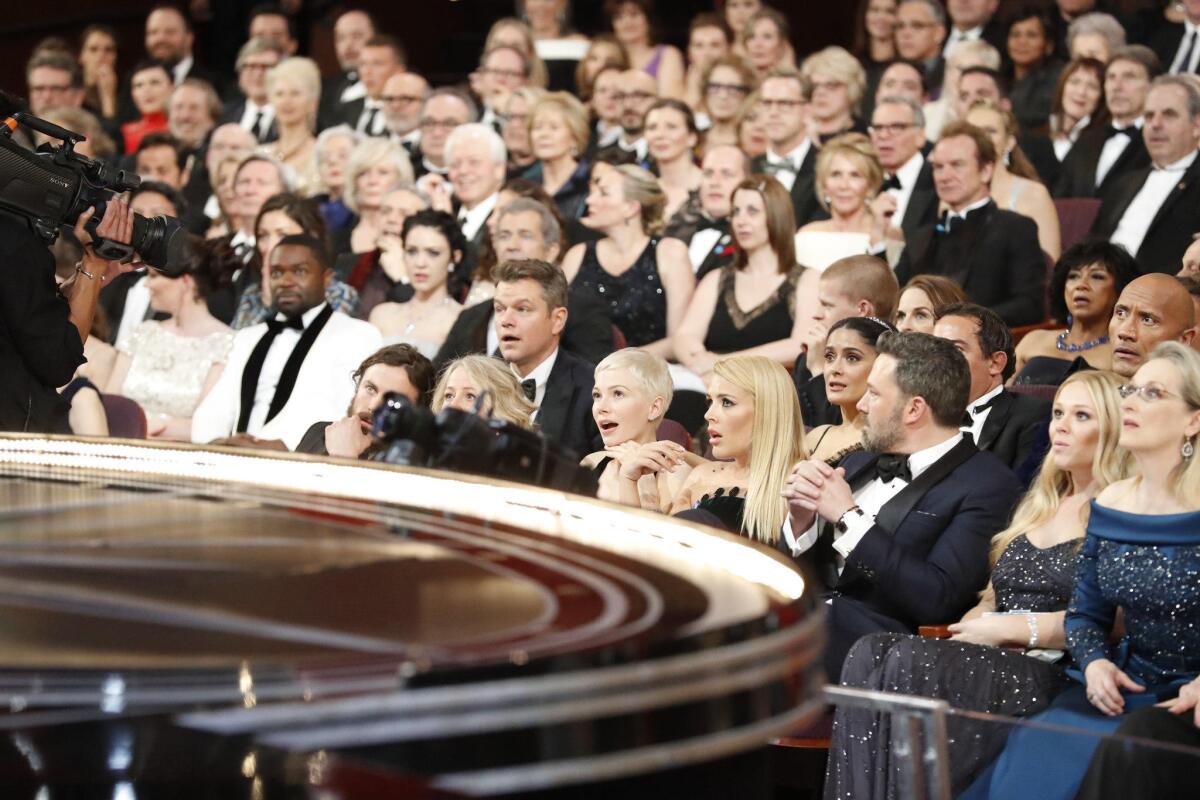
Following the epic Oscars best picture mix-up on Sunday, a few high-profile seat fillers shared what it was like witnessing the historic gaffe firsthand. The People’s eyebrow made an appearance at the Oscars, as did Busy Philipps.
Here’s what the stars in our viral reaction shot had to say:
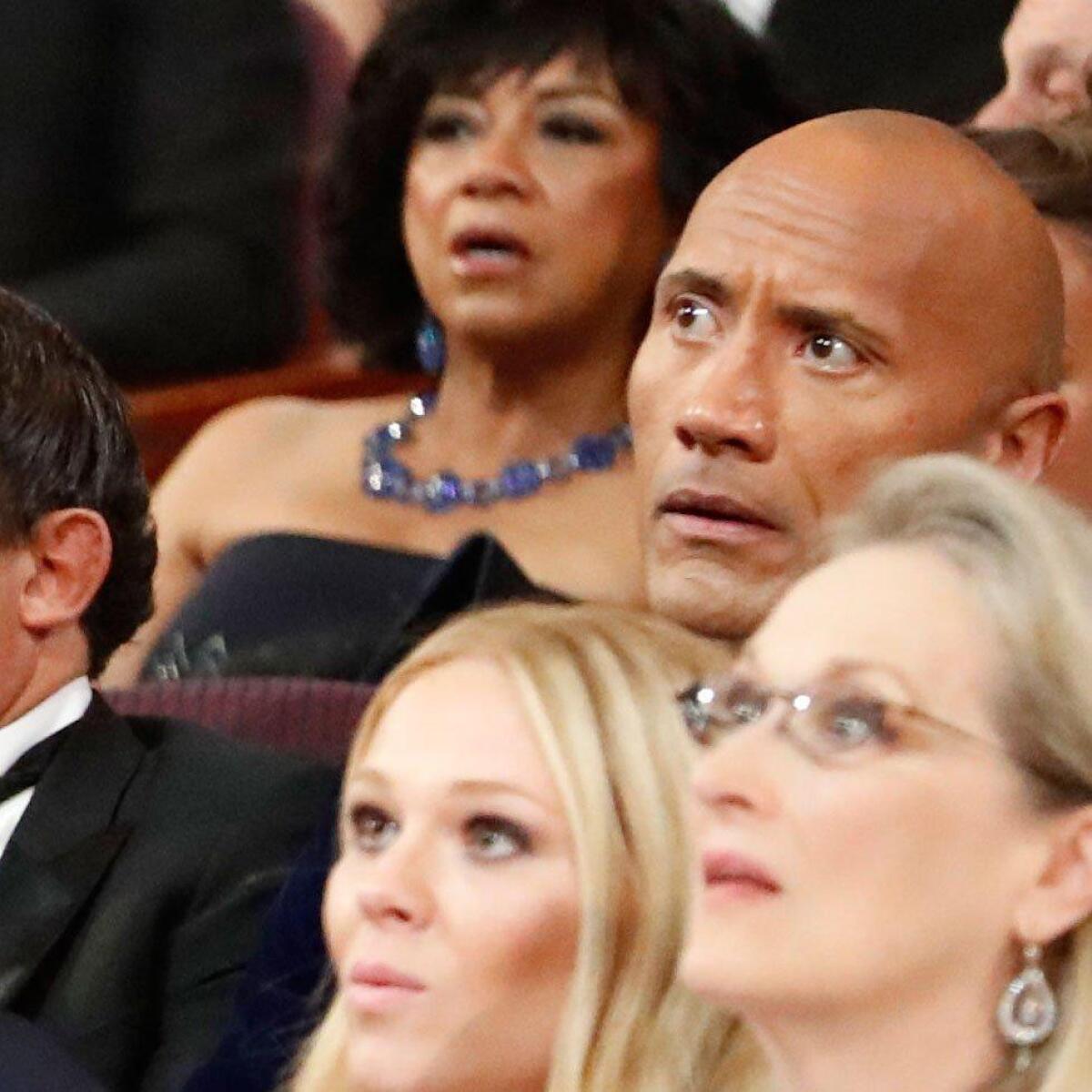
Dwayne Johnson (via Instagram):
“You can literally see my wheels spinnin’ on whether or not I should hit the stage and take down an Oscars producer who I thought went rogue and was trying to sabotage our final moment of the night as La La Land was accepting for Best Picture.”
“Seconds before this I saw out of the corner of my eye, the producer saying loudly, ‘NO IT’S MOONLIGHT, the winner is MOONLIGHT!’ as he walked up onto the stage. When he walked on stage, I remember sitting up and saying to [Lauren Hashian] ‘’What the ... he doing?’ She grabbed my arm and said, ‘Oh my God, they made a mistake.’ The rest was history.”
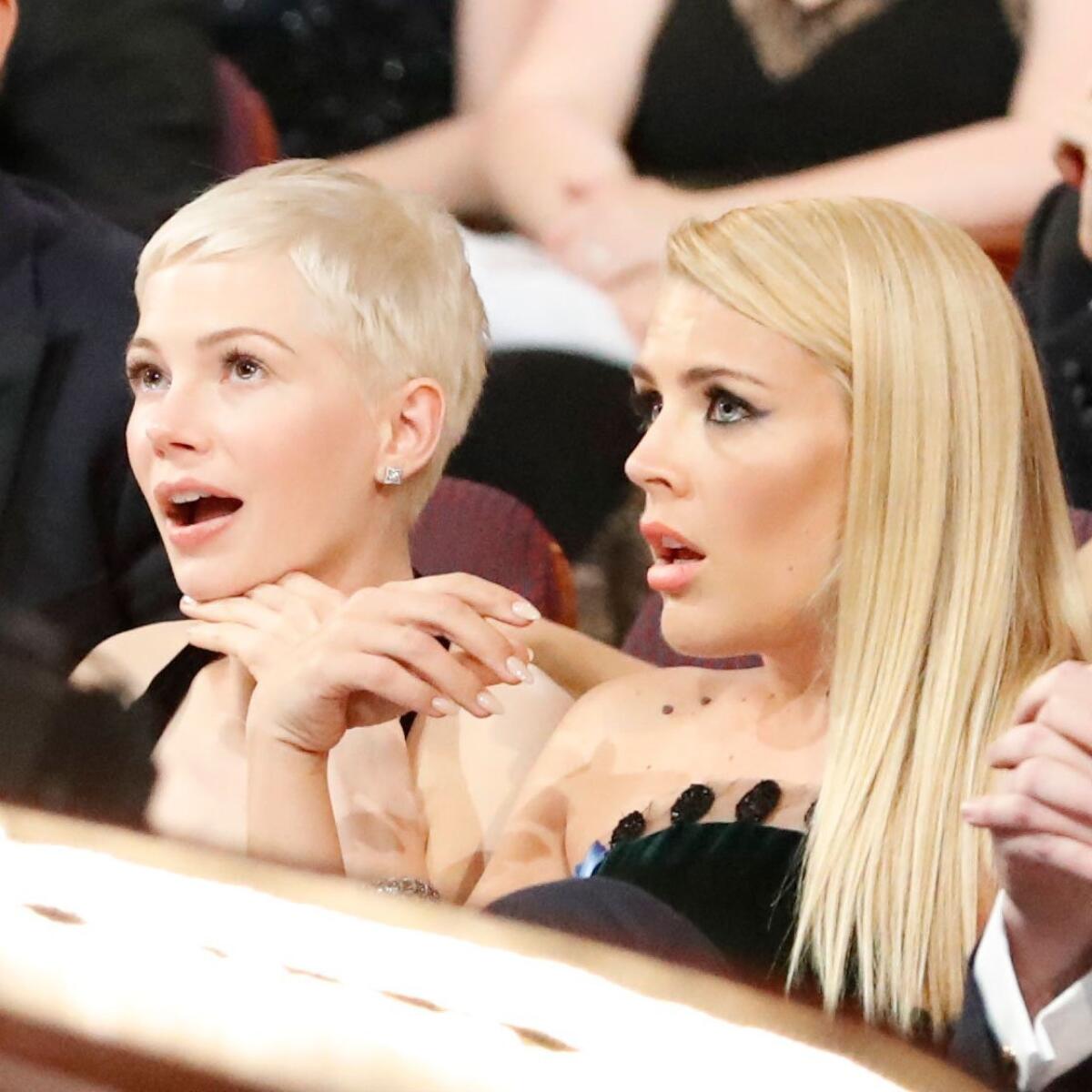
Actress Busy Philipps (via Instagram):
“Just woke up. 4000 of my closest friends have texted & emailed me about this picture. I’m so glad there’s visual evidence of what it was like to be sitting there in that moment. I MEAN!!!!”
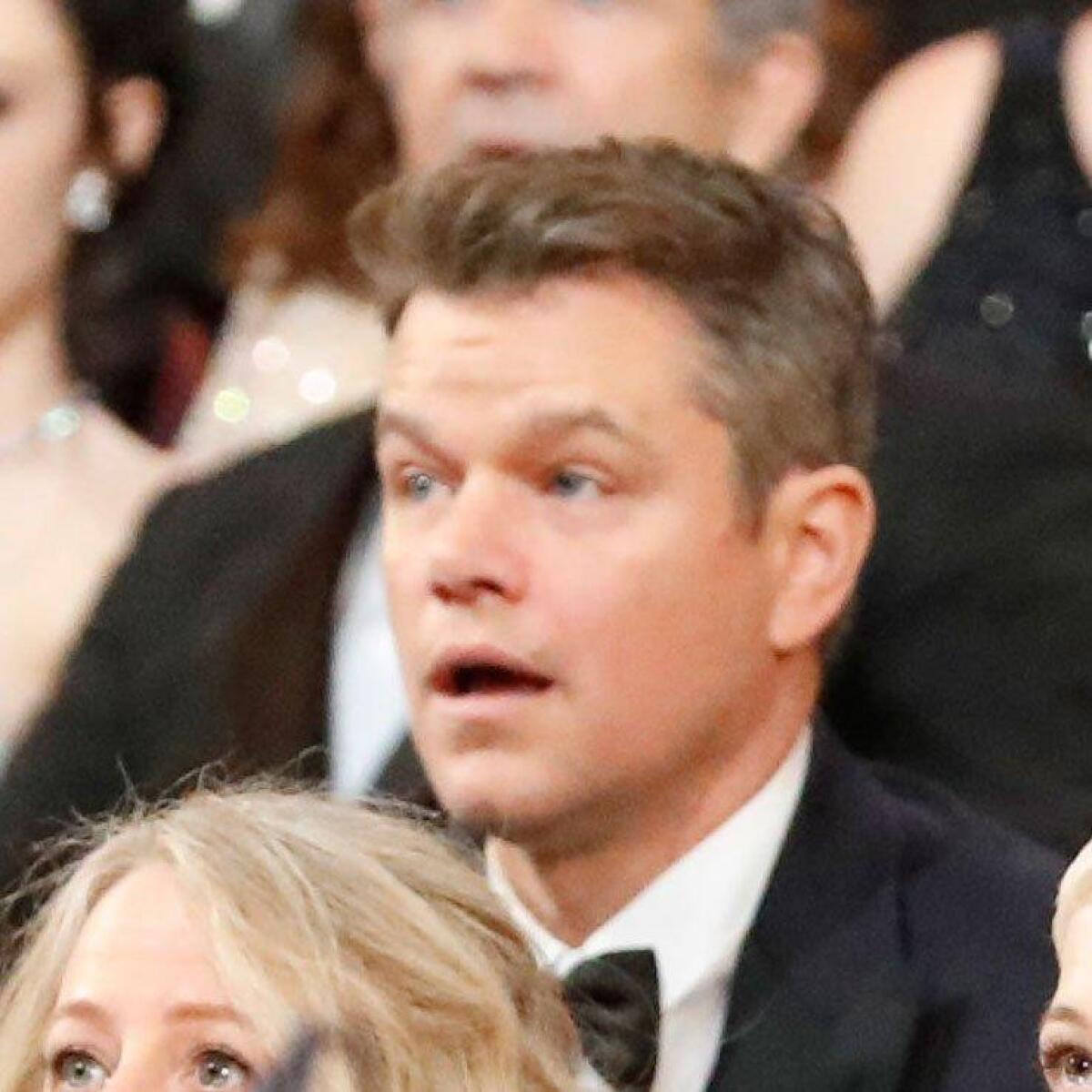
According to Oscars host Jimmy Kimmel, he settled down next to actor and rival Matt Damon (whose mouth is agape in the photo) at the end of the show and Damon turned to Kimmel and said, “I think I heard the stage manager say they got the winner wrong.”
Incidentally, Kimmel, a notorious prankster, was accused of masterminding the whole incident.
“I was like, ‘Hey, no, I didn’t! I did not pull a prank!’” Kimmel said Monday on his late-night show. “If I’d pulled a prank, I wouldn’t have just had the wrong winner’s name on the envelope. There would have been a Bed Bath & Beyond coupon in there.”
- Share via
Casey Affleck and Nate Parker: How Hollywood handles race, power and privilege
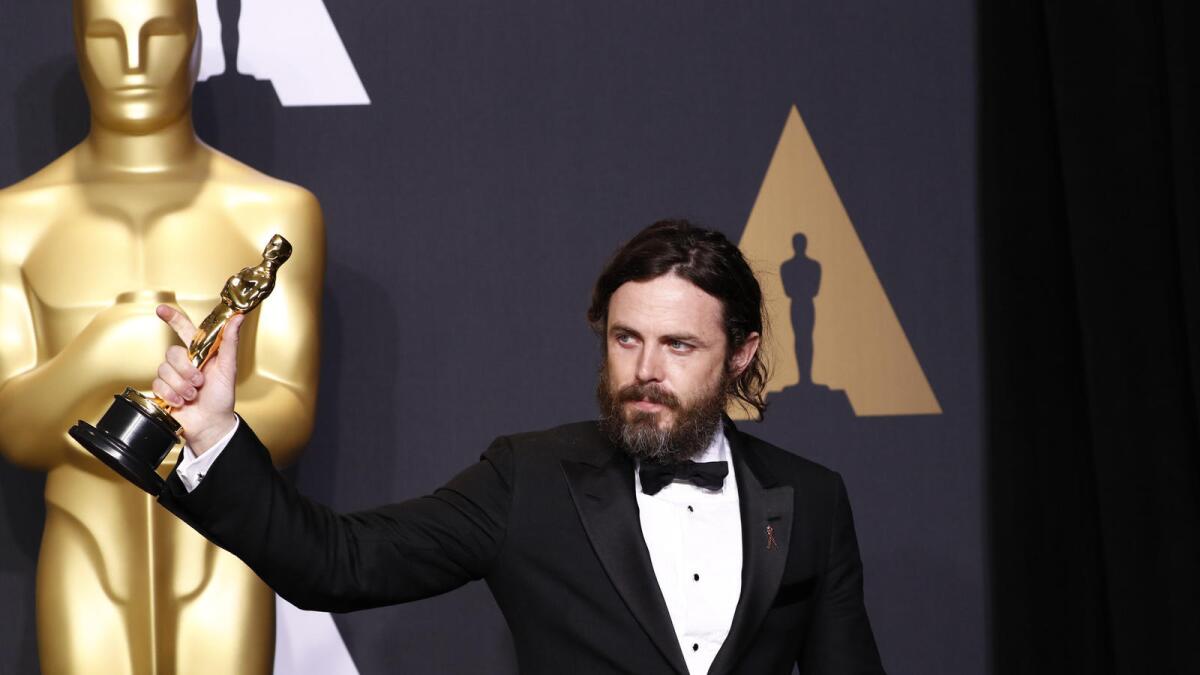
Brie Larson did not applaud, which sparked speculation that she wasn’t happy about Casey Affleck’s Oscar win for supporting actor.
The actress -- who won an Oscar last year for her portrayal of a survivor of rape -- stood unmoving as Affleck delivered his acceptance speech at Sunday’s Academy Awards.
Larson hugged him as she handed him the Oscar, but some interpreted her stance during his speech as a silent protest of sexual harassment. Affleck’s Oscar campaign had been dogged by two 2010 civil suits involving allegations of sexual harassment, both of which were later settled.
With Hollywood’s renewed embrace of Mel Gibson after his public fall from grace, there is a question of which accusations of wrongdoing are too big for a career to overcome and whether those standards are applied equally.
In 2016, the Oscar hopes of “The Birth of a Nation” director and star Nate Parker were derailed after college rape charges resurfaced, even though he was found to be innocent.
Where one man triumphed, another faltered. How does Hollywood handle allegations of impropriety and how much do race, power and a willingness to play the game matter?
Times reporter Tre’vell Anderson tackled the question in a commentary after Affleck’s Golden Globes victory in January.
For the record: A previous version of this story misstated that Affleck was accused of sexual assault. Affleck was accused of sexual misconduct and harassment in two settled civil suits.
- Share via
After two years of #OscarsSoWhite, what did Sunday night really tell us about the state of diversity in Hollywood?
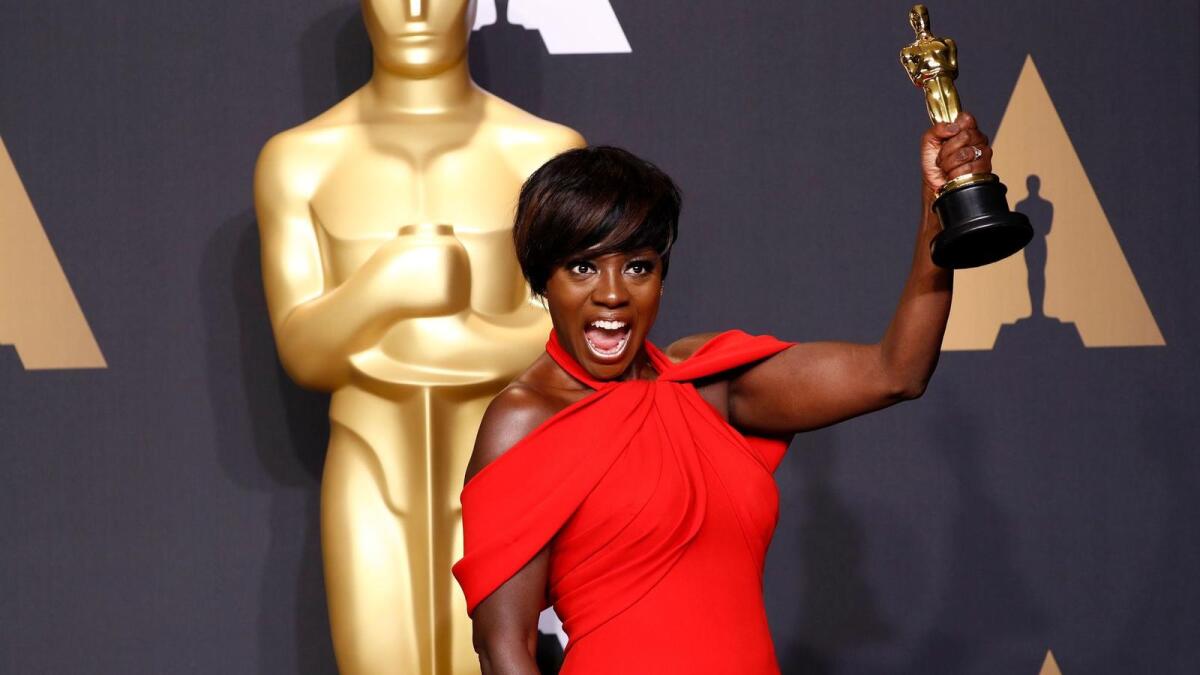
At Sunday night’s Academy Awards, a last-minute fumble overshadowed a much larger, and more significant, event.
While everyone scrambled to absorb, and then deconstruct, the mistaken announcement of “La La Land” as best picture when “Moonlight” had actually won, a thousand conversations about errant envelopes threatened to take the spotlight off the historic nature of the night’s winners.
After two years of blistering criticism over back-to-back slates of all-white nominees, the motion picture academy spent the better part of last year attempting to broaden its membership and its sense of what it stood for as the public face of the movie business. Stung by last year’s #OscarsSoWhite furor, the group headed into the 89th Academy Awards hoping to turn the page on the diversity debate — and perhaps find a moment of redemption.
And the best picture debacle notwithstanding, that’s just what it did.
- Share via
Did poor envelope design contribute to Oscar’s best picture disaster?
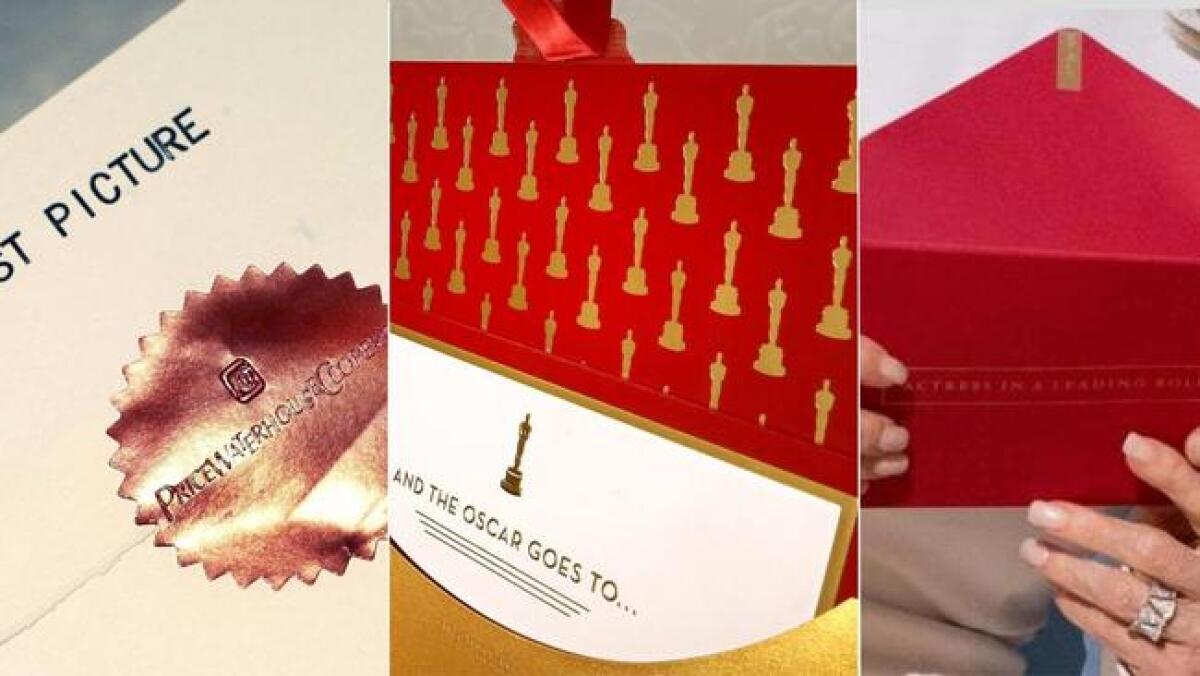
One of the most epic mix-ups in the history of the Academy Awards could have been the result of a faulty envelope design as much as bad backstage distribution.
Warren Beatty and Faye Dunaway were there to present the last award of the night, the Oscar for best picture. However, instead of the envelope for best picture, they were given a second envelope for lead actress, which was won by Emma Stone of “La La Land,” causing Dunaway to announce that “La La Land” had won best picture, instead of “Moonlight.”
A new envelope design — red with the category embossed on the front in gold lettering — could have been a factor.
This was the first year since 2011 that Marc Friedland Couture Communications of Los Angeles did not design and print the Oscar envelopes.
Read MoreSEE PHOTOS FROM INSIDE THE SHOW >>
- Share via
Watch all of the musical performances from the show
All of the original song nominees were performed during Sunday’s Academy Awards telecast, with Justin Timberlake performing “Can’t Stop the Feeling” from the movie “Trolls” kicking off the night.
During the show, Lin-Manuel Miranda set the stage for Auli’i Cravalho, introducing the “Moana” star with an original rap before she sang “How Far I’ll Go.”
John Legend pulled double-duty for “La La Land,” performing an arrangement of the film’s two nominated songs, “City of Stars” and “Audition,” and Sting took the stage for “The Empty Chair” from “Jim: The James Foley Story.”
Sara Bareilles performed a rendition of Joni Mitchell’s “Both Sides Now” during the Oscars’ “In Memorium” segment.
And if you’re still hungry for more Oscar music magic, you can see Timberlake’s performance here.
- Share via
Jimmy Kimmel explains how Denzel Washington saved ‘Moonlight’s’ Oscar speech
In his first opening monologue after the Oscars, Jimmy Kimmel used the time to clear up what happened at last night’s Academy Awards. What really happened when the wrong movie was announced as best picture winner -- instead of “Moonlight” -- and how did the celebrities react?
After a confused Warren Beatty and Faye Dunaway announced “La La Land” as the winner, the pick was shortly debunked. Kimmel, who was watching from the crowd next to Matt Damon, knew something was off.
“The audience is confused,” Kimmel said. “The people standing around me are confused. I assume everyone at home is confused, and I’m probably supposed to do something because no one’s doing anything.”
After the mix-up was fixed, it wasn’t a stage hand but Oscar winner (and nominee of the night) Denzel Washington who signaled to Kimmel to get out of the way and let “Moonlight” director Barry Jenkins take the stage for his thank-you speech. Good job, Denzel!
Kimmel also addressed the popular notion that the mix-up was a prank he had orchestrated. No, definitely not, he said, and if he had done such a prank, “there would’ve been a Bed Bath & Beyond coupon inside.”
SEE PHOTOS FROM INSIDE THE SHOW >>
- Share via
Motion picture academy issues apology for ‘mistakes that were made’ in stunning Oscar snafu
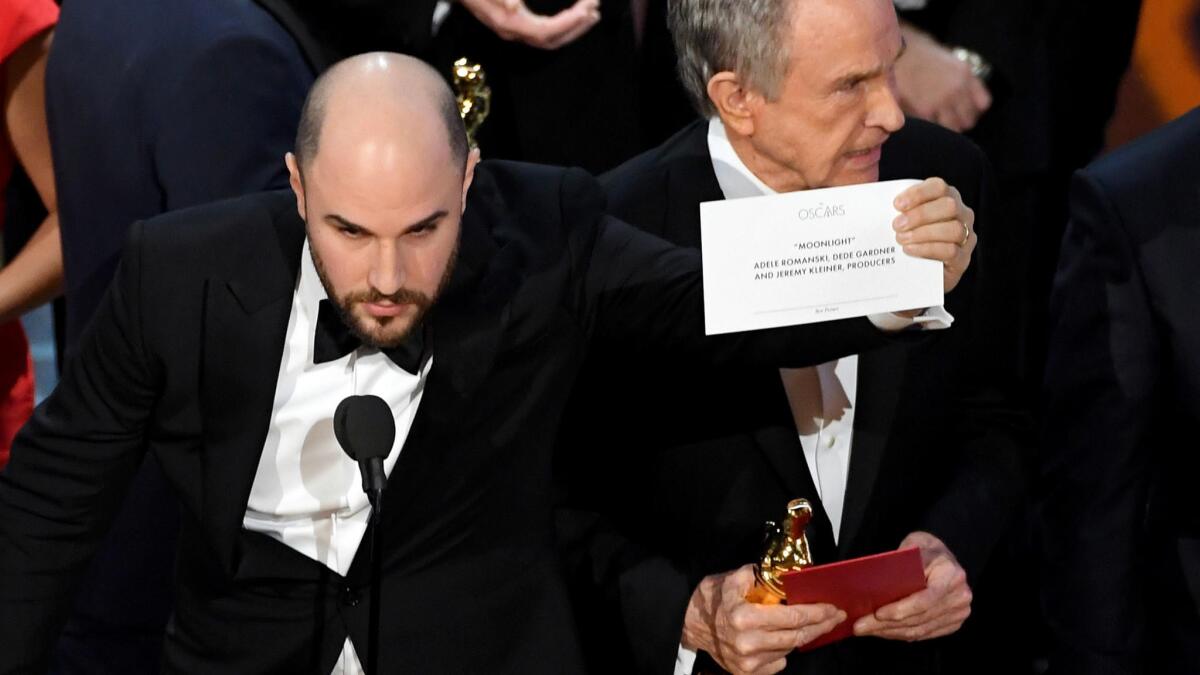
A day after one of the most genuinely shocking moments in Oscar history – the incorrect announcement of “La La Land” instead of “Moonlight” as this year’s best picture – the Academy of Motion Picture Arts and Sciences has released an official message apologizing to the filmmakers, presenters and viewers alike for the snafu.
The statement follows apologies by PricewaterhouseCoopers, the accounting firm responsible for handling the Oscars voting tabulation and winners’ envelopes, for its role in the fumble at the climax of Sunday night’s show.
Read the academy’s statement below:
“We deeply regret the mistakes that were made during the presentation of the Best Picture category during last night’s Oscar ceremony. We apologize to the entire cast and crew of ‘La La Land’ and ‘Moonlight’ whose experience was profoundly altered by this error. We salute the tremendous grace they displayed under the circumstances. To all involved — including our presenters Warren Beatty and Faye Dunaway, the filmmakers, and our fans watching worldwide — we apologize.
“For the last 83 years, the Academy has entrusted PwC to handle the critical tabulation process, including the accurate delivery of results. PwC has taken full responsibility for the breaches of established protocols that took place during the ceremony. We have spent last night and today investigating the circumstances, and will determine what actions are appropriate going forward. We are unwaveringly committed to upholding the integrity of the Oscars and the Academy of Motion Picture Arts and Sciences.”
- Share via
The many reactions when ‘Moonlight’ surprise won best picture at the Academy Awards
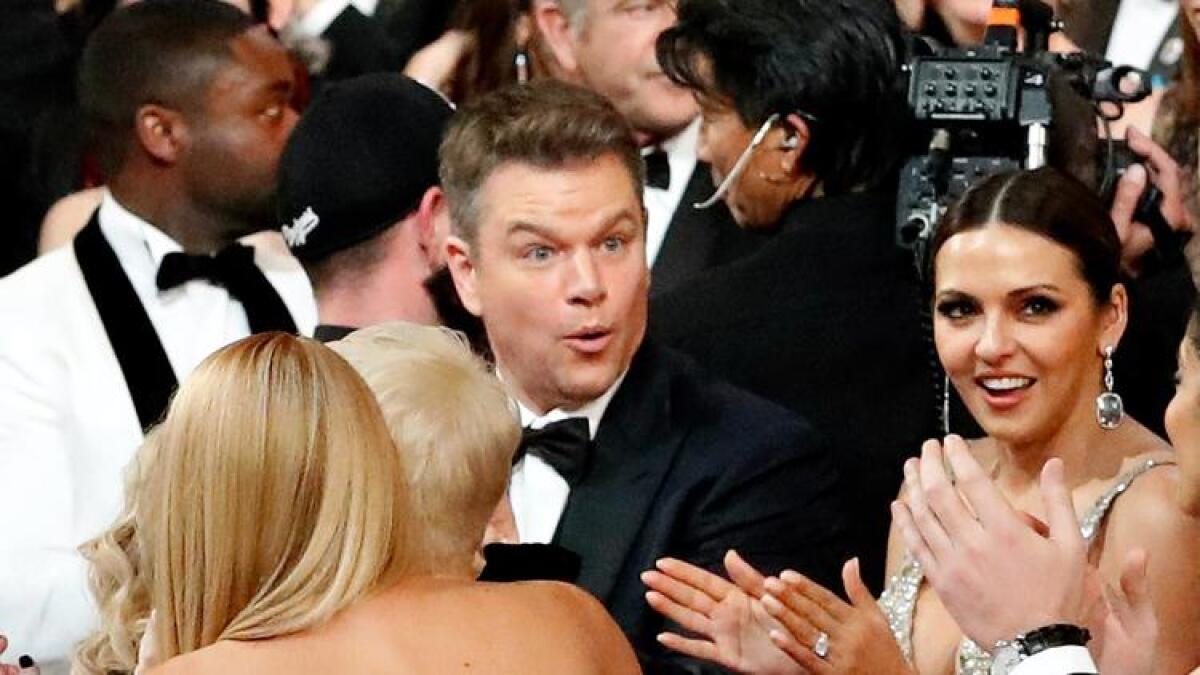
It was a wild night at the Oscars.
If this is your first time looking at the Internet since yesterday, here’s the short version of what you missed: Warren Beatty and Faye Dunaway were handed the wrong card and erroneously announced “La La Land” had won best picture when, in fact, “Moonlight” had won that honor. Here’s the long version of what happened.
The Times photographer Al Seib was backstage at the exact moment the crowd learned that there had been a mistake. This is what it looked like.
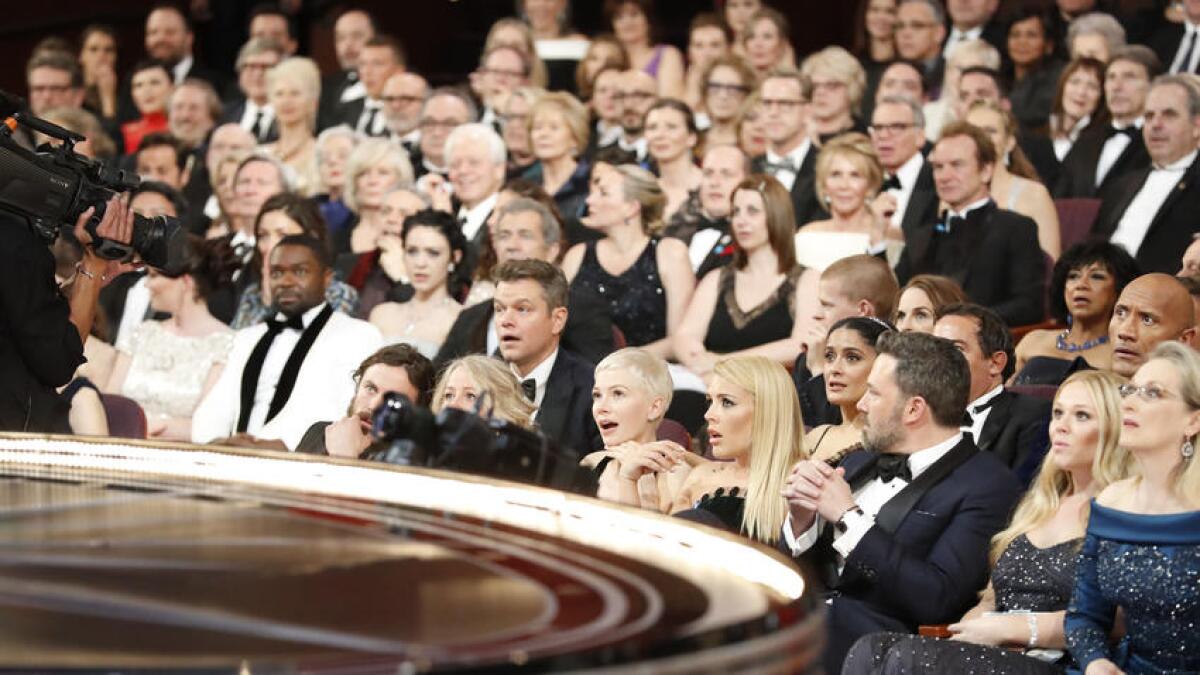
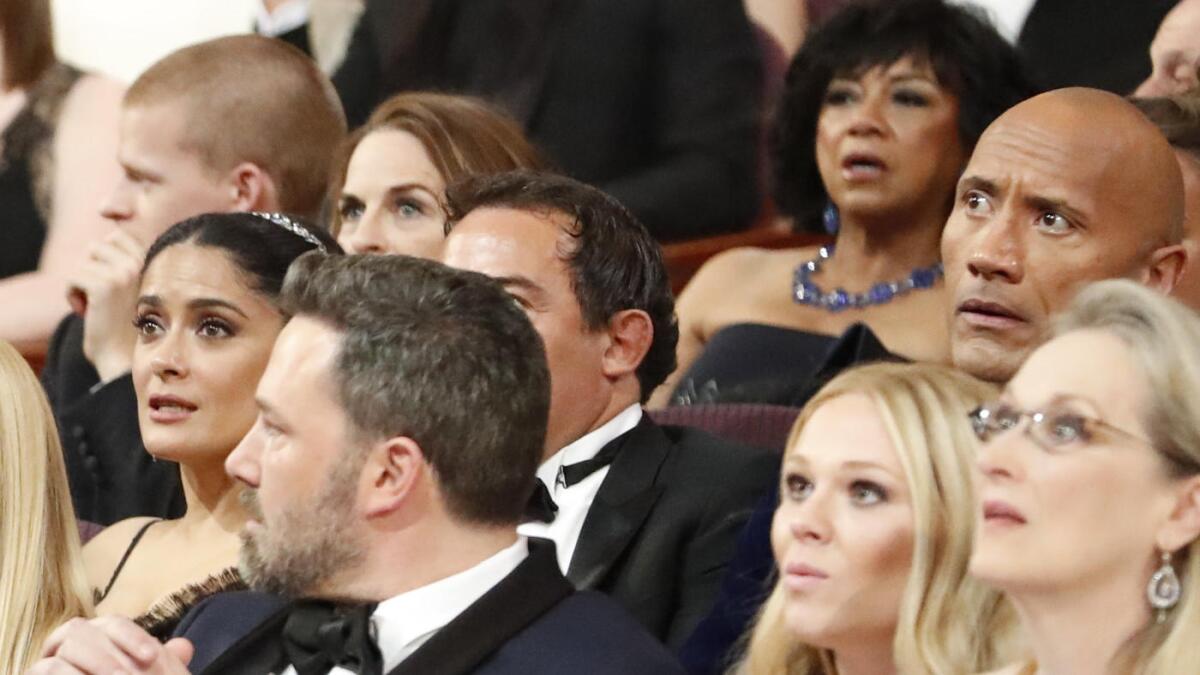
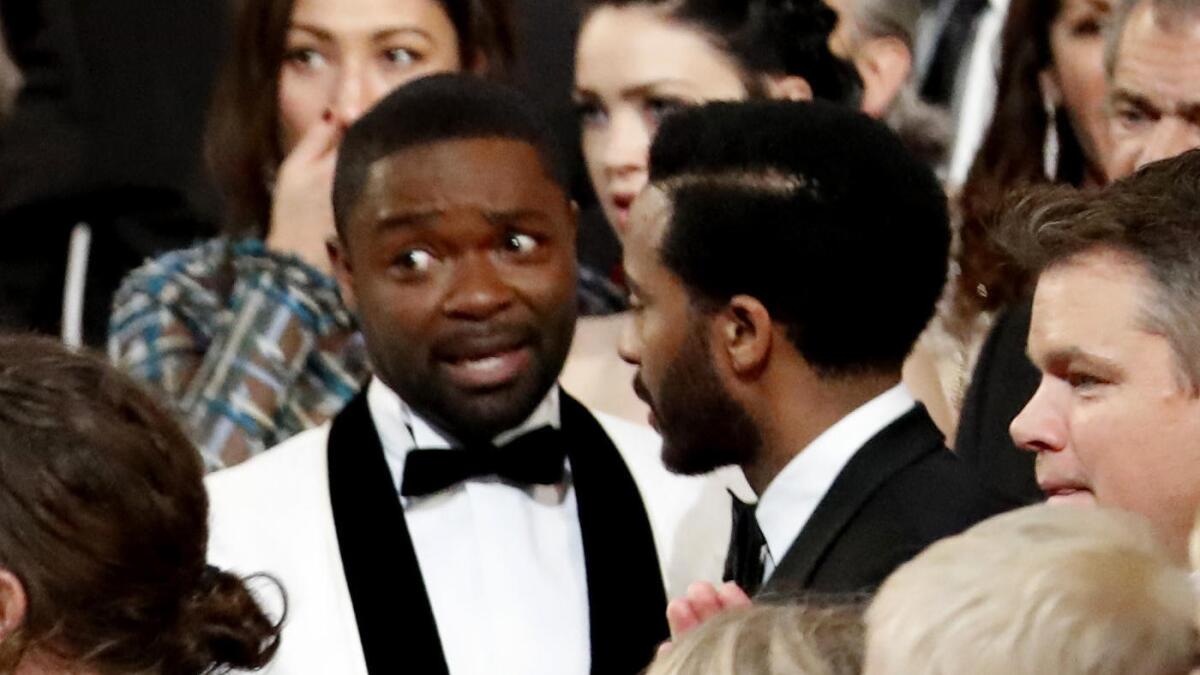
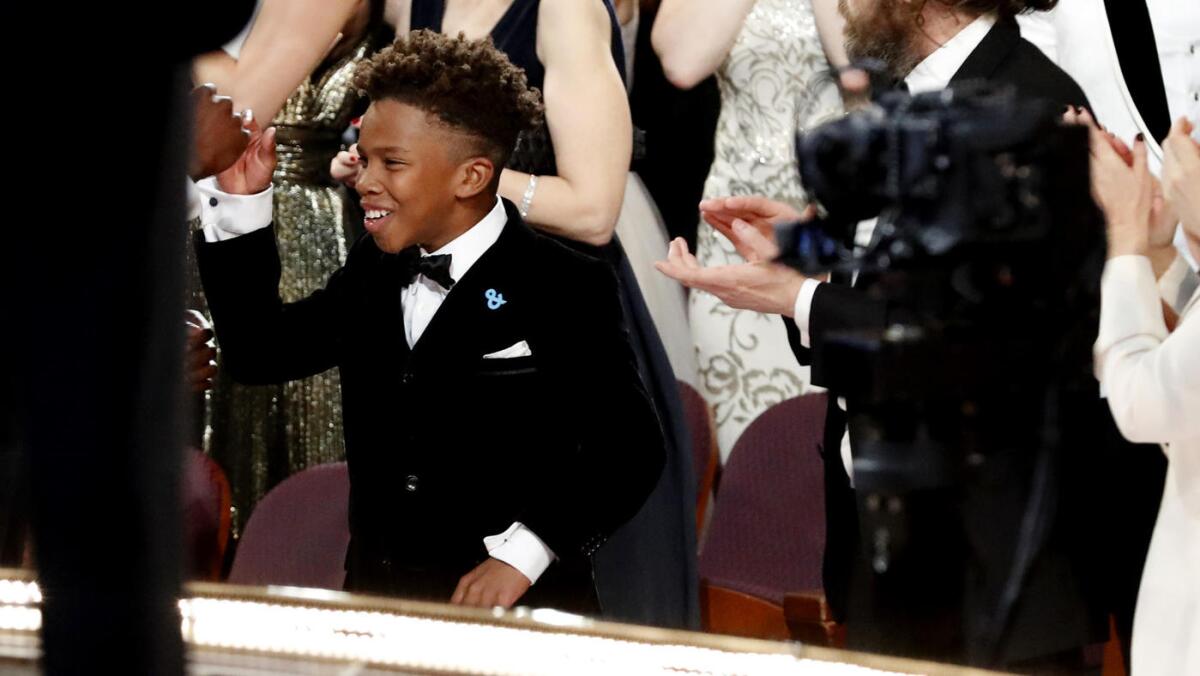
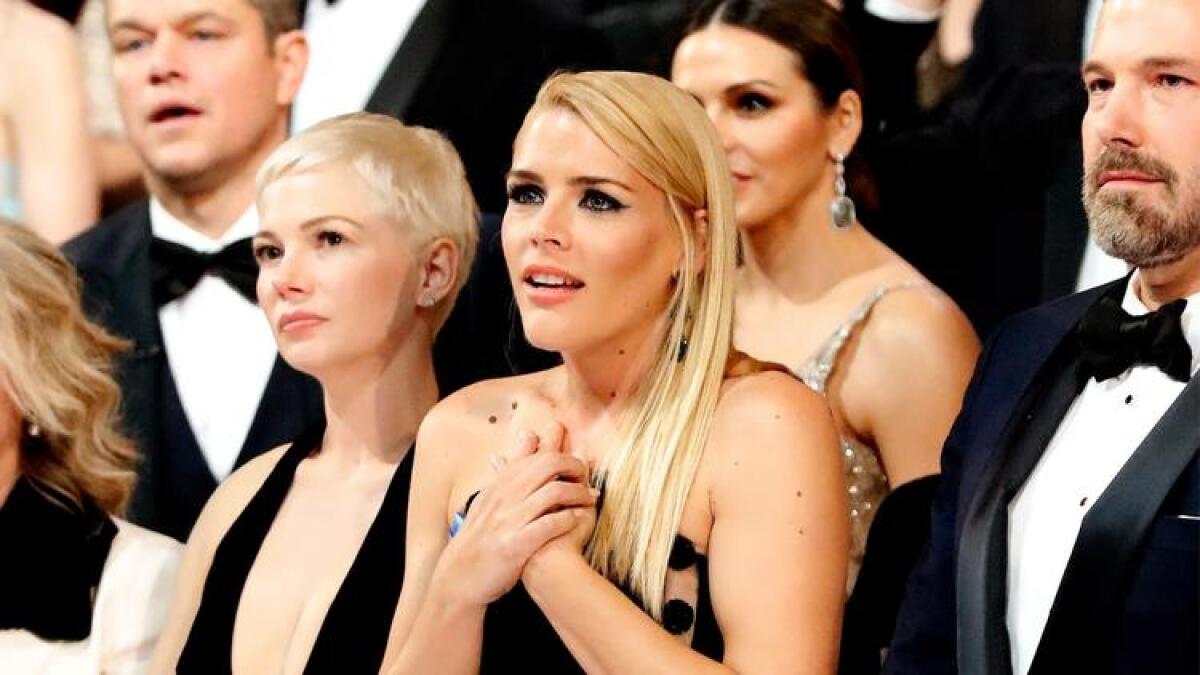
- Share via
Emma Stone, a deleted tweet and the failure of a failsafe: Tracking the Oscars’ best picture blunder
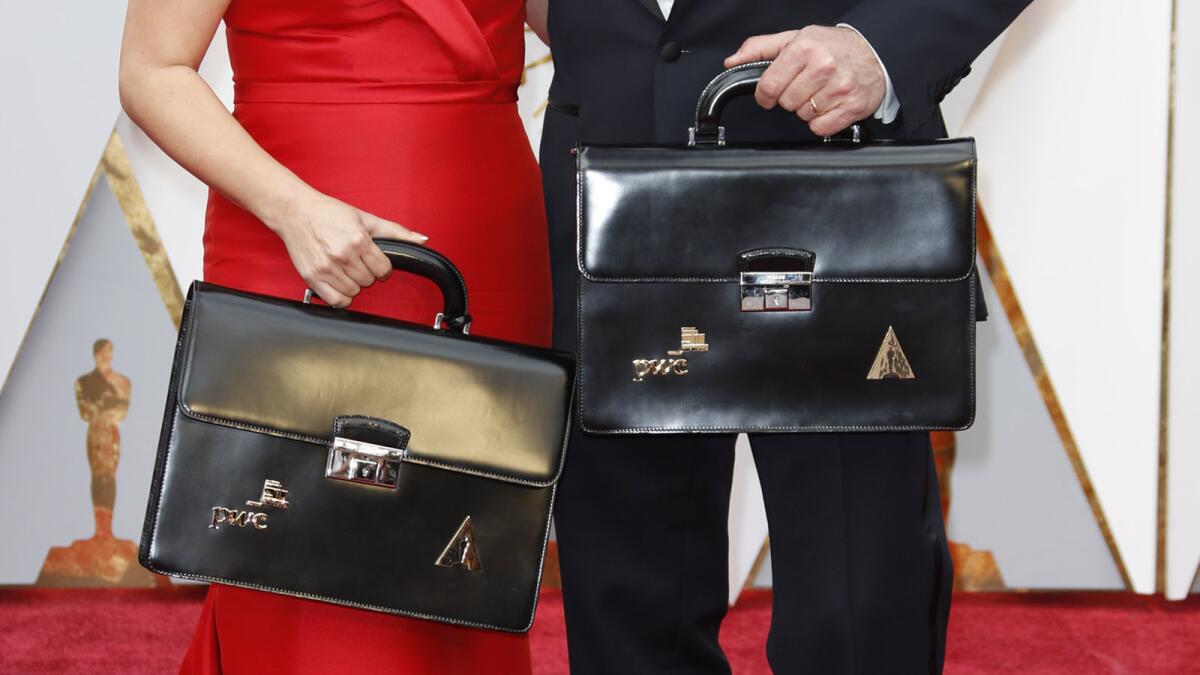
The envelope debacle that stole the spotlight from “Moonlight” at the end of the 89th Academy Awards ceremony sparked enough fury and fervor to cement the incident among the great Hollywood dramas of all time.
How did this happen? Who dropped the ball? What did the “La La Land” producers know and when did they know it? Was there a second set of envelopes from the grassy knoll? (Kind of.) Is this Hollywood’s Zapruder film and, if so, who is Babushka Lady?
We watched and rewatched, fast-forwarded, rewound and froze frames. We observed the players and talked to some people backstage before, during and after the slow-motion wreck. We look forward to the documentary, which will surely win an Emmy. (Or will it?)
- Share via
Dustin Lance Black responds to Tarell Alvin McCraney saying the Oscar-winning ‘Milk’ writer inspired him
In accepting his award (along with director Barry Jenkins) for best adapted screenplay for “Moonlight” on Sunday night, Tarell Alvin McCraney paid homage to another gay Oscar winner whose triumph inspired him the way he hoped his would inspire others.
“I remember sitting back somewhere watching Dustin Lance Black accept for ‘Milk’ and thinking maybe one day that can be me,” he said backstage, Oscar in hand. “And here I am.”
Black, who nabbed his Academy Award in 2009 for original screenplay and wrote the LGBTQ rights miniseries “When We Rise,” premiering tonight on ABC, responded Monday in a statement exclusively to The Times:
“‘Moonlight’s’ wins sent a message of inspiration and hope to so many last night, including me. I welled up every time it was honored. Every acknowledgement it received inspired me to work harder and to do better. So, if in some small way I helped encourage Tarell along his magnificent journey to create this masterpiece, well, that’s the compliment of a lifetime.”
The film, about a poor black boy growing up in the projects of Miami grappling with his sexuality, is the first LGBTQ tale to win the best picture Oscar. McCraney hopes its success will encourage Hollywood to tell more stories like it, he continued backstage.
“The hope that we have today about telling stories is that those people, the ones who we’re leaning on to make those stories, were watching and found a platform that they saw they could stand on,” he said. “I hope that the storytellers up here and their proud journey can imprint on someone out there watching that they too can stand here too, and also tell their stories daringly and as intimately as possible.”
More about Tarell Alvin McCraney and the play that became “Moonlight”
- Share via
Movies like ‘Moonlight’ don’t win the Oscar for best picture — until they do
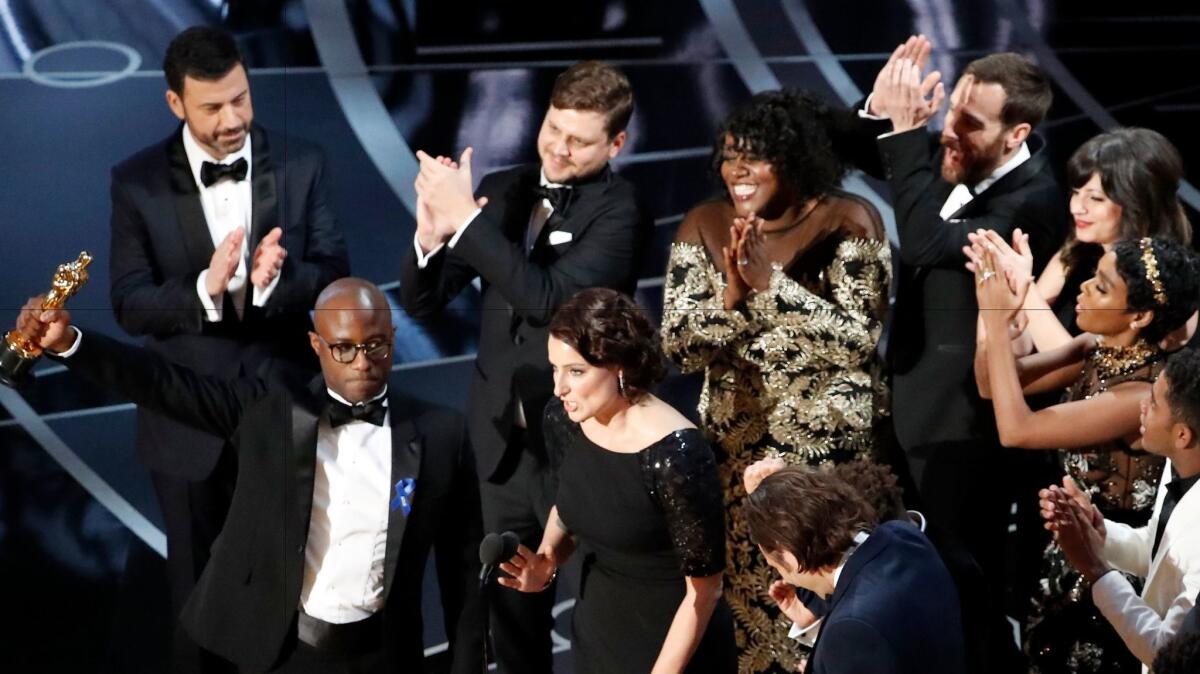
Movies like “Moonlight” don’t win the Oscar for best picture.
Movies about the conflicted desires of young gay men, captured with quiet tenderness and exquisite intimacy, don’t win the Oscar for best picture. (Just ask “Brokeback Mountain.”)
Movies that tell modest coming-of-age stories, light on dramatic incident but rich in emotional rewards, don’t win the Oscar for best picture. (Just ask “Boyhood.”)
Movies that subtly examine some of the social and psychological burdens that weigh heavily on too many African Americans today — poverty, parental abandonment, drug addiction and mass incarceration — don’t win the Oscar for best picture.
Movies about black life that are not overtly about slavery don’t win the Oscar for best picture.
It’s hard to overstate just how culturally, economically, institutionally and statistically improbable an outcome “Moonlight’s” best picture Oscar win represents.
- Share via
All the red carpet fashion you need, in two minutes
While award shows are obviously about the golden statues given to all the night’s honorees, the fashion is really all people care about. Because of course, no one wants to be on the dreaded worst-dressed list.
Check out a time-lapse of the Oscars’ red carpet to see your favorite celebrity working it... or not.
- Share via
#OscarsSoWhite creator: ‘The wins that happened last night were not because of #OscarsSoWhite’
After two years of consecutive #OscarsSoWhite controversies, does Sunday night’s best picture victory for “Moonlight,” among other wins for actors and filmmakers of color, represent a major breakthrough for the issue of diversity in Hollywood? Or could it ultimately prove to be just a blip?
We spoke to writer and activist April Reign, creator of the #OscarSoWhite hashtag, about what Sunday night’s Oscar show says — and doesn’t say — about the current state of inclusion in the film industry.
After two years of all-white nominees in the acting categories, what was your main takeaway from Sunday night?
April Reign: My main takeaway was that when quality films are made that reflect the diversity of experiences in this country, people will go to see them. They will receive critical acclaim and, in some cases, they will win what is considered the highest award in the film industry.
I think if one saw all nine nominees for best picture, it was clear that “Moonlight” deserved to be nominated — and for me personally, it was the best film that I saw in 2016. But I’m also incredibly encouraged about what happened in the lesser-known categories: adapted screenplay and best documentary and even the nominations that we had of black people in cinematography and editing.
All that said, it’s just one night out of 90 nights of lack of representation of marginalized communities and, even with all of the wins [Sunday] night for films that reflect the black experience, #OscarsSoWhite remains relevant because there are still so many stories from traditionally underrepresented communities that need to be told.
What went through your head when it was initially announced that “La La Land” had won best picture?
I was disappointed, just because “La La Land” didn’t stay with me the way “Moonlight” did. “Moonlight” was such a beautiful film, it almost could have been a silent film and you could have just watched it and still taken something away from it. “La La Land” was a return to nostalgia and it was sort of a self-congratulatory film for Hollywood. I think there’s a place for all different kinds of films in different genres, but it wasn’t one that I would say, “I need to see that a second or third time,” like I did with “Moonlight.”
Then we had the snafu and things changed and I was elated because what I thought was the best film actually won. You know, it’s all personal and subjective and people can make arguments about all nine of the films and I absolutely get that. But for me, just as a moviegoer, I thought it was the best film of the year.
Had “La La Land,” in fact, won best picture, what is your sense of what the social media reaction and the conversation around the diversity issue might have been Monday?
There was some of that. In those 30 seconds, I was watching it happen on Twitter and people were angry.
And we’re going to have that every year. I already have people in my mentions saying the win for “Moonlight” was just as “rigged” as the 2016 presidential election was, or “Moonlight” only won because of affirmative action.
That’s the difficult thing for me moving forward, that every time a person of color wins, there’s going to be someone — and unfortunately some publications, not just some random trolls — that ask whether this was just some quota thing or whether it was deserved. And I think that’s unfortunate because I think it really downplays all of the effort and the hard work and the talent that goes into all of these performances.
Nobody questioned whether Emma Stone should win an Oscar or whether Meryl Streep should win an Oscar. But people always question whether a person of color should, and that’s just unfair.
We’ll never know how the votes broke down, but do you think the steps that the academy took last year to invite its largest, most diverse class ever has somehow turned the tide, or could this year ultimately just be a kind of one-off?
I think it remains to be seen. I think the influx of 683 invitees was helpful for everyone, both those who were already members and for new members, to say, “Let’s look at this process and make sure that we’re doing the very best that we can.”
But it’s very important to me that we make sure to say that the wins that happened last night were not because of #OscarsSoWhite.
Viola Davis deserves every award ever, in every category. Mahershala Ali’s gripping, haunting performance was the best that I saw last year, so he was fully deserving. And all of the movies that were nominated and won were in production or pre-production for years before January 2015 when I created the hashtag.
So it really remains to be seen what happens, let’s say, three or four years from now, if Hollywood really is going to make a significant change in commitment to financing and distributing and supporting — because those three things are not always synonymous — films that represent all marginalized communities.
[Sunday] was a great night, but it was one night out of many.
- Share via
‘Moonlight’ director Barry Jenkins and ‘La La Land’ producer Jordan Horowitz: Mutual admiration society post-Oscars
In response to a question posed late last night, what do you say to someone who just won an Oscar you thought was yours, the answer is “congratulations.”
After “Moonlight” writer-director Barry Jenkins and “La La Land” producer Jordan Horowitz connected at the Governors Ball, Jenkins took to Twitter to share that he was still processing the extraordinary circumstances surrounding his film’s best picture win. Like many Oscar-watchers, the overwhelming feeling for Horowitz was of admiration.
SEE ALL OUR PHOTOS FROM INSIDE THE SHOW >>
And, with a tweet posted a few hours later, the feeling is mutual, which is encouraging given the two are bound to be linked in Oscar history forever.
- Share via
Why the Oscars still matter, from the Academy Awards’ red carpet
Ahead of Sunday night’s historic ceremony, The Times took to the red carpet to ask celebrities attending the over-the-top event about its importance -- especially with calls for greater diversity and inclusion still in the air. Everyone from “Moonlight” director, and now Oscar-winner, Barry Jenkins to “Elle’s” nominated lead Isabelle Huppert shared their thoughts:
“Everybody looks to the filmmaking community to reflect the role they live in. The Oscars, theoretically, is the best of that reflection.” - Barry Jenkins, “Moonlight”
“It celebrates creativity and it celebrates art, and that’s not exactly something lucrative when you start off in the beginning... So to celebrate people putting their heart and soul into something despite the odds against them, I think that is important.” - Allison Schroeder, “Hidden Figures”
“To celebrate this art form, which is so influential, is a good thing. It gives people an opportunity to maybe be aware of films that they otherwise wouldn’t.” - David Oyelowo, “A United Kingdom”
- Share via
Justin Timberlake, the Oscars’ photo-bomb extraordinaire
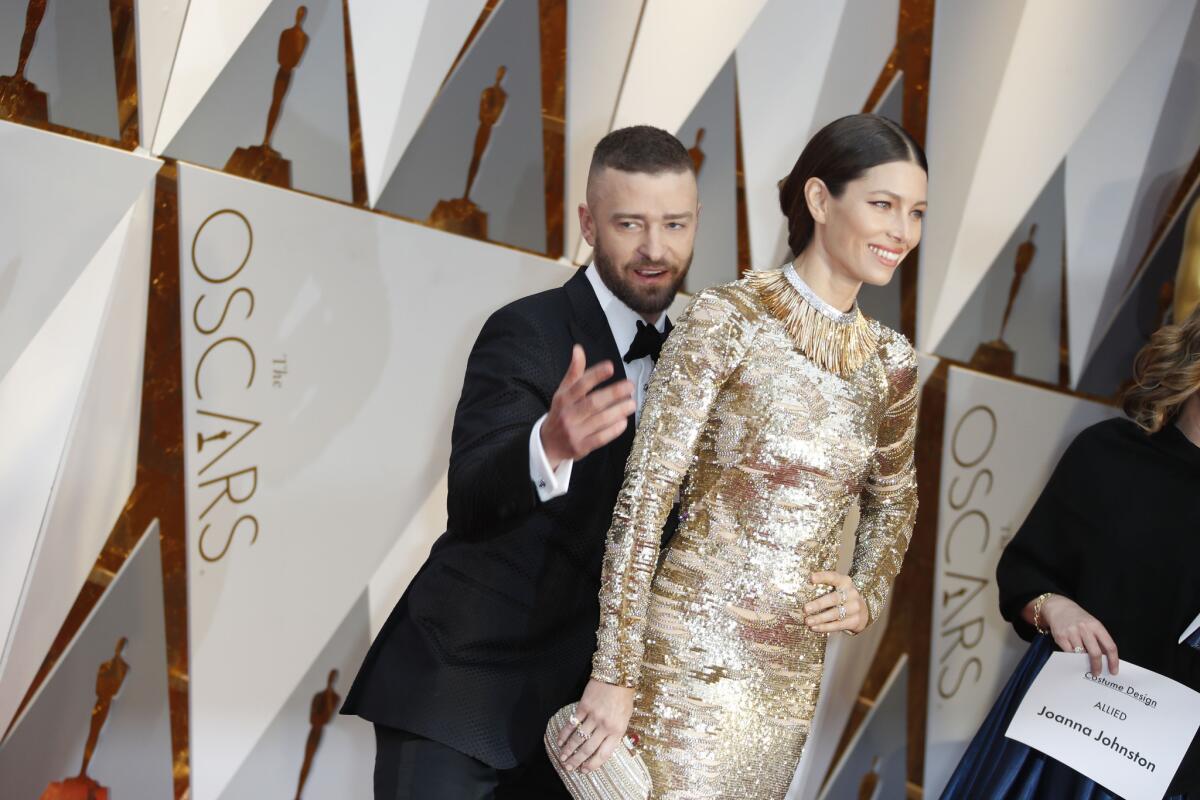
When he isn’t opening the Academy Awards ceremony or crooning for his fans, Justin Timberlake showcases his Jennifer Lawrence-caliber knack for photo-bombing.
On Sunday, the “Trolls” star memorably crashed — er, trolled — two key red carpet moments.
The former NSync frontman upstaged his wife, glittering Jessica Biel, during her red-carpet photo-op with a wacky stand-in behind her.
He also shoe-horned himself into his “Friends With Benefits” costar (and eventual Oscar winner) Emma Stone’s interview amid ABC’s live pre-show festivities with a face worthy of “The Shining.”
Having experienced it firsthand, Biel appeared to apologize for her husband’s behavior. Apparently, he can’t stop the feeling.
- Share via
The best picture twist ending was embarrassing for the academy but may be good for the Oscars
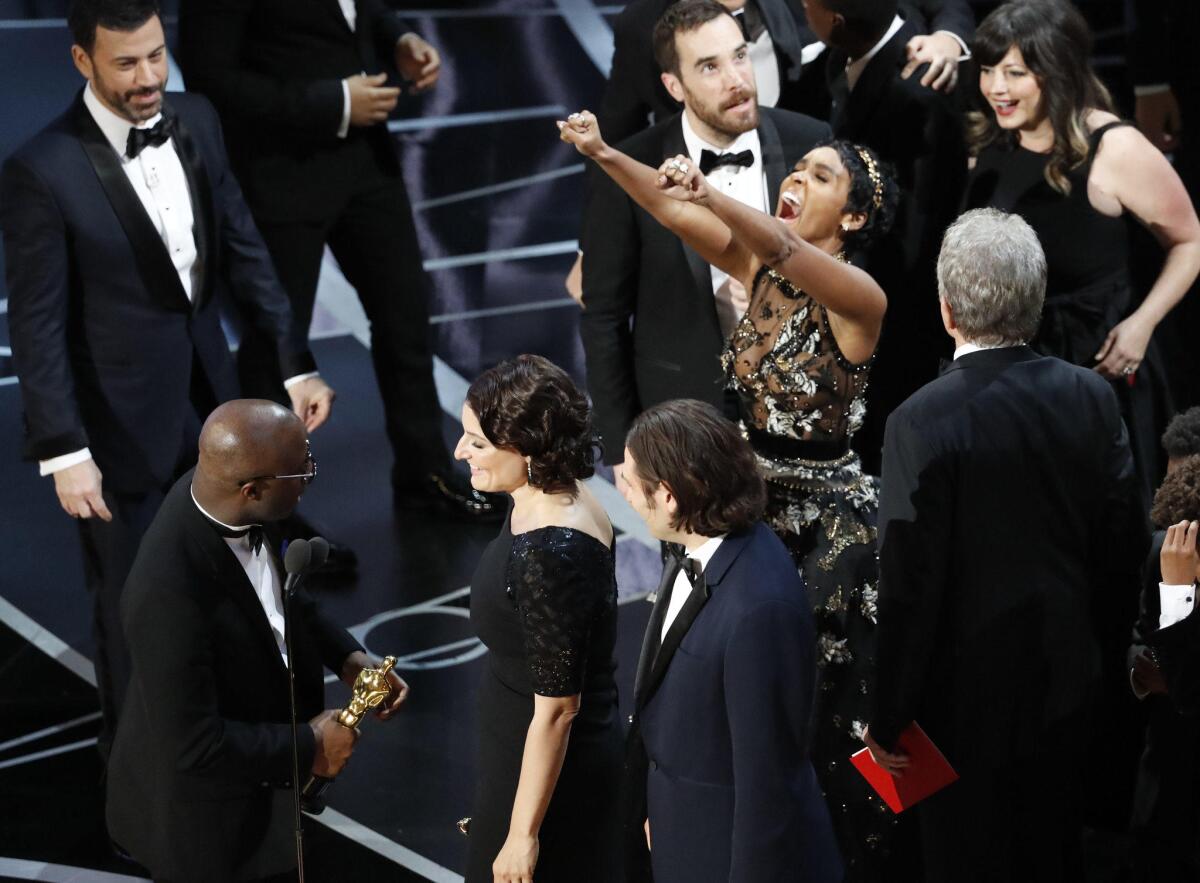
Not since a Chicago newspaper headlined “Dewey Defeats Truman” has there been a massive public screw-up on the order of what happened at the Oscars on Sunday night. But it’s an ill wind that blows nobody some good, and the huge embarrassment for Warren Beatty, Faye Dunaway and the Academy of Motion Picture Arts and Sciences may turn out to be a good thing for the Oscars.
For if having a debacle like presenters announcing the wrong winner before millions of viewers in 225 countries does nothing else, it proves the lasting watchability of live television.
Yes, even in this age of presumed digital safeguards, everyone got to see the “La La Land” entourage troop joyously on stage and then retreat in disarray in the face of the equally shocked “Moonlight” folks when the error was discovered. Truly, if surrealist Luis Buñuel had had a writing credit on the program, he could not have done it any better.
- Share via
Meryl Streep’s eyes say it all: Look at the Oscar crowd’s faces during the ‘Moonlight’ mix-up

Understandably, the unscripted best picture gaffe (there’s that word again) confounded home viewers. But it also flabbergasted the high-profile names inside the Dolby Theatre. Los Angeles Times backstage photographer Al Seib caught the moment on camera Sunday night.
Here’s the audience reacting to the reveal that “Moonlight” was indeed the best picture winner, not “La La Land.” Times photographer Seib, a veteran of the Oscars ceremony, captured the epic react shot. Below are some close-ups from his snapshot.
SEE ALL OUR PHOTOS FROM INSIDE THE SHOW >>
And yes, Matt Damon and Meryl Streep were all of us in that moment.

Michelle Williams, left, and Busy Philipps look stunned.

Dwayne Johnson raised an eyebrow. Meryl Streep raised both. That’s Academy President Cheryl Boone Isaacs over Johnson’s shoulder.

Here’s Matt Damon with his jaw dropping to the floor.
Catch up on all of The Times’ Oscar coverage here.
- Share via
The word ‘gaffe’ is having an Oscars moment
After the “La La Land”/”Moonlight” envelope mix-up at the Oscars, searches for the word “gaffe” spiked on the Merriam-Webster website, the company said Monday.
The term, in case last night’s brouhaha wasn’t explanation enough, means “a mistake made in a social situation” or “a noticeable mistake,” the dictionary company said.
Merriam-Webster said Steve Harvey’s Miss Universe blunder caused the same search term to soar in 2015.
The Times, incidentally, did not use the word on its front page the Monday after the Academy Awards, though it does appear in a couple of headlines online.
- Share via
Donald Trump Jr. trolls Hollywood over Oscars In Memoriam gaffe
Despite Jimmy Kimmel’s prediction that Donald Trump would tweet his reaction to the Oscars “in all caps during his 5 a.m. bowel movement,” the president has yet to serve up any reaction to the night’s many barbs aimed at him.
But one of his sons, Donald Trump Jr., has weighed in.
No doubt irritated by Hollywood’s repeated bashing of his father, the younger Trump issued a tweet Monday morning trolling the film industry over the Oscars In Memoriam gaffe, in which the wrong photo was used for the late costume designer Janet Patterson.
- Share via
Steve Harvey wonders whether Warren Beatty will need security, like he did after Miss Universe gaffe
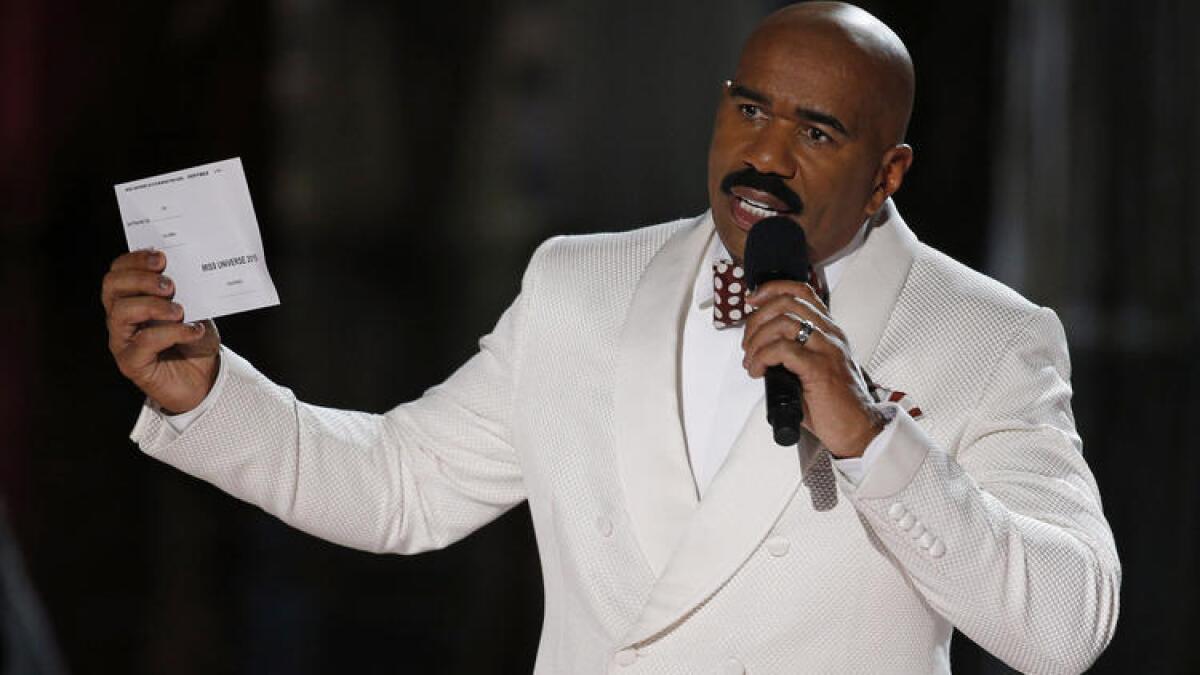
It’s a great day to be Steve Harvey — even if Jimmy Kimmel did blame him Sunday night for the Oscars’ huge best picture mistake.
Harvey, who infamously named the wrong winner for Miss Universe 2015 — it was Miss Philippines Pia Wurtzbach, not Miss Colombia Ariadna Gutiérrez — surrendered his televised-gaffe throne on Sunday night, and early Monday morning he was celebrating and dishing.
“Free at last! Free at last! Thank God almighty, I am free at last,” Harvey said on his KJLH-FM morning show after the wrong movie was announced as best picture at the Academy Awards on Sunday night.
The comic and TV host talked about the death threats he got after the Miss Universe show and mused at one point about whether Warren Beatty, who presented the award along with Faye Dunaway, would need security because of the error. Harvey did.
One difference between the two mistakes: Harvey couldn’t read what was on his card, which he said looked different than what he’d seen in rehearsal. Dunaway did read what was on the card Sunday night — but Beatty had been given the wrong one.
- Share via
Oscars In Memoriam tribute included image of an Australian producer who is still alive
Australian producer Jan Chapman says she was “devastated” when she saw her image used in the Oscars’ 2017 In Memoriam segment in place of a picture of her “friend and long-time collaborator” Janet Patterson, who died in October 2015.
“I had urged her agency to check any photograph which might be used and understand that they were told that the Academy had it covered,” Chapman told Variety in an overnight email.
“Janet was a great beauty and four-time Oscar nominee and it is very disappointing that the error was not picked up.”
Four-time Academy Award nominee Patterson’s name and profession — costume designer — were correct. Variety has a photo of both women with director Jane Campion.
The photo of Chapman that was used erroneously was taken at the Australian Film Institute’s 2010 Inside Film Awards in Sydney, where Patterson won best production design for “Bright Star.” A photo-service caption on that image incorrectly identified Chapman as Patterson, who had a production designer credit on that film as well as on “The Portrait of a Lady.”
Patterson didn’t do much press. “I’m not interested in schmoozing ...,” she told the New York Times in 2010. “Success for me is a personal thing. You could divide the world between people who need the outside to tell them and people who need their inner voice to speak. I’m for the latter.”
“She’s not here anymore, but she lives on through those beautiful clothes and images,” Nicole Kidman said after Patterson died. Kidman wore her fellow Aussie’s creations in “The Portrait of a Lady.”
In addition to that film, Patterson was nominated for Oscars for her work on “The Piano,” “Oscar and Lucinda” and “Bright Star.”
You can hear Patterson’s voice in an interview, below, that she did with Chapman around the release of “Bright Star.”
READ MORE: Oscar-nominated costume designer Janet Patterson dies>>
- Share via
‘Moonlight,’ first LGBTQ best picture, sends ‘strong message’ to film industry, GLAAD president says

“Moonlight” won the best picture Oscar after a botched announcement threw the ceremony into chaos.
“Moonlight” is the first LGBTQ film to win the Oscar for best picture, a fact that GLAAD President Sarah Kate Ellis pointed out on social media Sunday night in congratulating the movie on its achievement.
“This sends a strong message to the film industry that it needs to embrace inclusive stories if it wants to remain competitive and relevant,” Ellis said.
In his acceptance speech, “Moonlight” writer Tarell Alvin McCraney dedicated his adapted screenplay Oscar win -- he shared it with director Barry Jenkins -- “to all those black and brown boys and girls and non-gender-conforming who don’t see themselves” in film.
Continuing the theme of inclusivity, supporting actor winner Mahershala Ali became the first Muslim to win an Academy Award for acting.
GLAAD also provided the blue ampersand pins seen on the lapels of McCraney and others on the “Moonlight” team and in the audience.
In his October 2016 review of “Moonlight,” Los Angeles Times film critic Kenneth Turan wrote, “Its story of aching loneliness, sexual longing and the despair of blasted lives, the emphasis it puts on the great difficulty and the equally powerful necessity of intimate human connection, the way it persuasively insists on the shared humanity of marginalized communities, makes it feel like a film we’ve been waiting for for a very long time.”
- Share via
Yes, that Oscars ending really happened. And Jimmy Kimmel had some unforgettable moments too
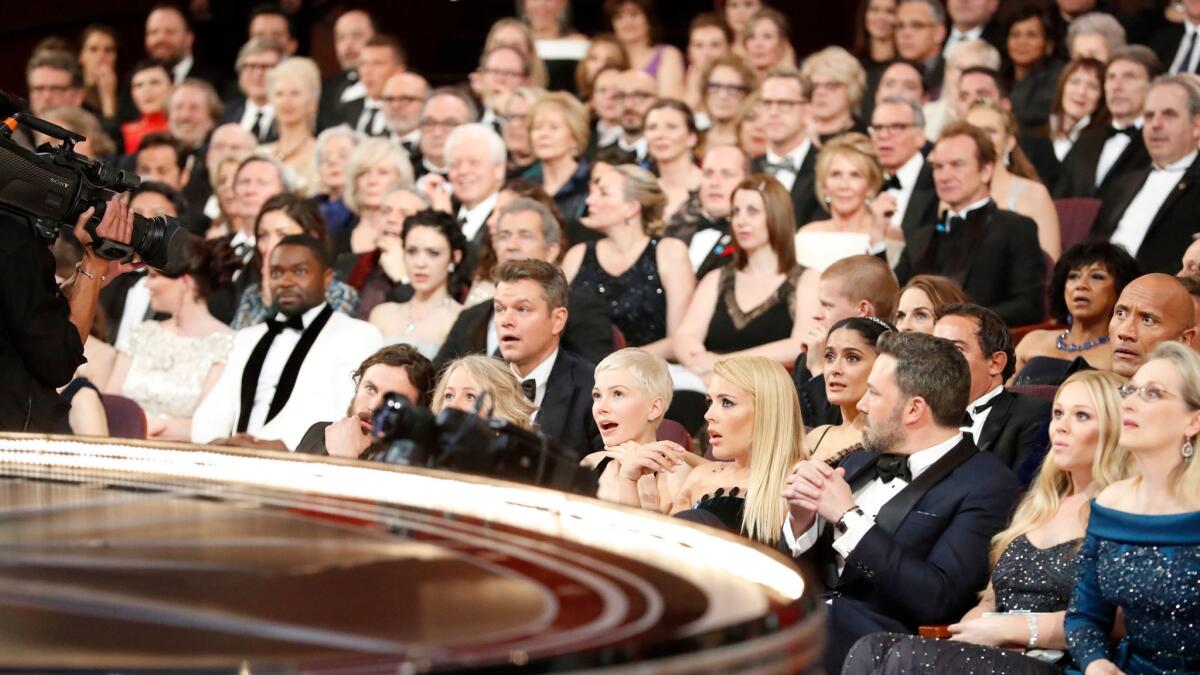
Of all the things we expected from the Oscars this year, making us feel better was not one of them.
The last few major awards shows, after all, were not only about handing out trophies but a chance for honorees and presenters to voice their white-hot anger toward President Trump’s travel ban, his plan for a wall along the border with Mexico, and a divisive America they no longer recognized.
Sunday, however, the academy appeared to take a step back and counterbalance the political tension of the last few months by refocusing on what Hollywood does best — entertain.
Some of the levity was delivered via intentional stunts, such as candy and snacks dropping out of the ceiling attached to parachutes, while other moments — presenters Warren Beatty and Faye Dunaway naming “La La Land” the winner for best picture when it was in fact “Moonlight” — were not.
In one of the top moments of the evening before the show’s surprise ending, host Jimmy Kimmel ushered a group of stunned tourists who’d just disembarked from a Starline bus on Hollywood Boulevard into the Dolby Theatre mid-ceremony. Dressed in cargo shorts, baseball hats and carrying selfie sticks, they were introduced to gown- and tux-clad luminaries such as Nicole Kidman, Denzel Washington and Meryl Streep.
“Who’s your favorite actor?” Kimmel asked one of the dazed tourists.
“That man right there,” said the woman, pointing at Washington. The “Fences” star got up and hugged her before performing a mock wedding ceremony for her and her fiancé.
- Share via
Steve Harvey tweets his first response to the Oscars best picture flub
If you thought Steve Harvey would stay quiet about the best picture mix-up at Sunday’s Oscars ceremony, you don’t know Steve Harvey. He sent out an early-morning tweet mock-innocently asking of the Oscars, “What I miss?”
And never one to miss a great promo, he’s promising to share his response to the Oscars fiasco with listeners who tune into his radio show Monday at 8 a.m. EST. Because, as he tweeted about the flub that mistakenly gave “La La Land” the prize over true winner “Moonlight, “You know I have something to say.”
- Share via
If the L.A. Times hadn’t broken an embargo in 1940, the Oscars envelope mix-up might have never happened
The 12th Academy Awards made history for a number of reasons.
The ceremony honored the films of 1939, a year considered by many to have produced some of the greatest movies of all time. Among the nominated works:
- “Wuthering Heights”
- “The Wizard of Oz”
- “Goodbye Mr. Chips”
- “Gone with the Wind
- “Mr. Smith Goes to Washington”
Hattie McDaniel became the first African American to win an acting award, for her role in “Gone with the Wind.” And Judy Garland was officially introduced to her Hollywood peers when she won the academy’s Juvenile Award for “The Wizard of Oz.”
It was also the last Oscars ceremony for which the names of winners were released to the press, or anyone for that matter, before the onstage announcement.
Why did they turn to a secret system?
You have the Los Angeles Times to thank for that. The academy’s official history lays blame on The Times for breaking an embargo and publishing the winners in the paper’s evening edition before the ceremony was underway. Think of it as the era’s equivalent of a tweet that scooped everyone else.
As the academy’s website says, the premature publication took place “much to the Academy’s dismay” and made the winners list “readily available to guests arriving for the event.”
Not much suspense there. And this is an industry that knows not to give away an ending.
The next year, the top-secret winners envelopes -- like the one that went awry at this year’s Oscars -- were put into action. The Times’ report on the new system (see the clip here) pronounced it pretentious.
“No vestige of an authoritative pre-release was vouchsafed while the roll call of honorees went on until the midnight hour,” the paper said.
The details about how “La La Land” won, then lost, the best picture award to “Moonlight,” are still being sorted. But the consensus is that it started when presenters Warren Beatty and Faye Dunaway were handed the wrong envelope.
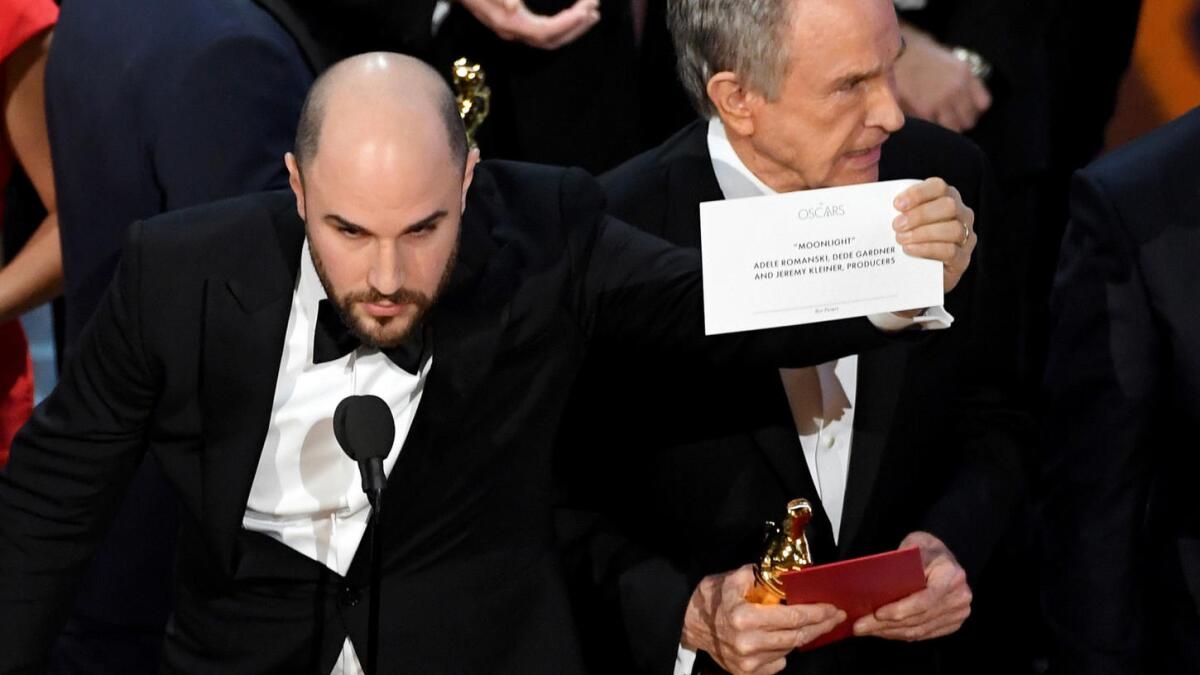
- Share via
Watch the moment when ‘La La Land’ is mistakenly announced best picture winner
- Share via
‘La La Land’ and ‘Moonlight’ filmmakers embrace each other, and the surrealism of the night
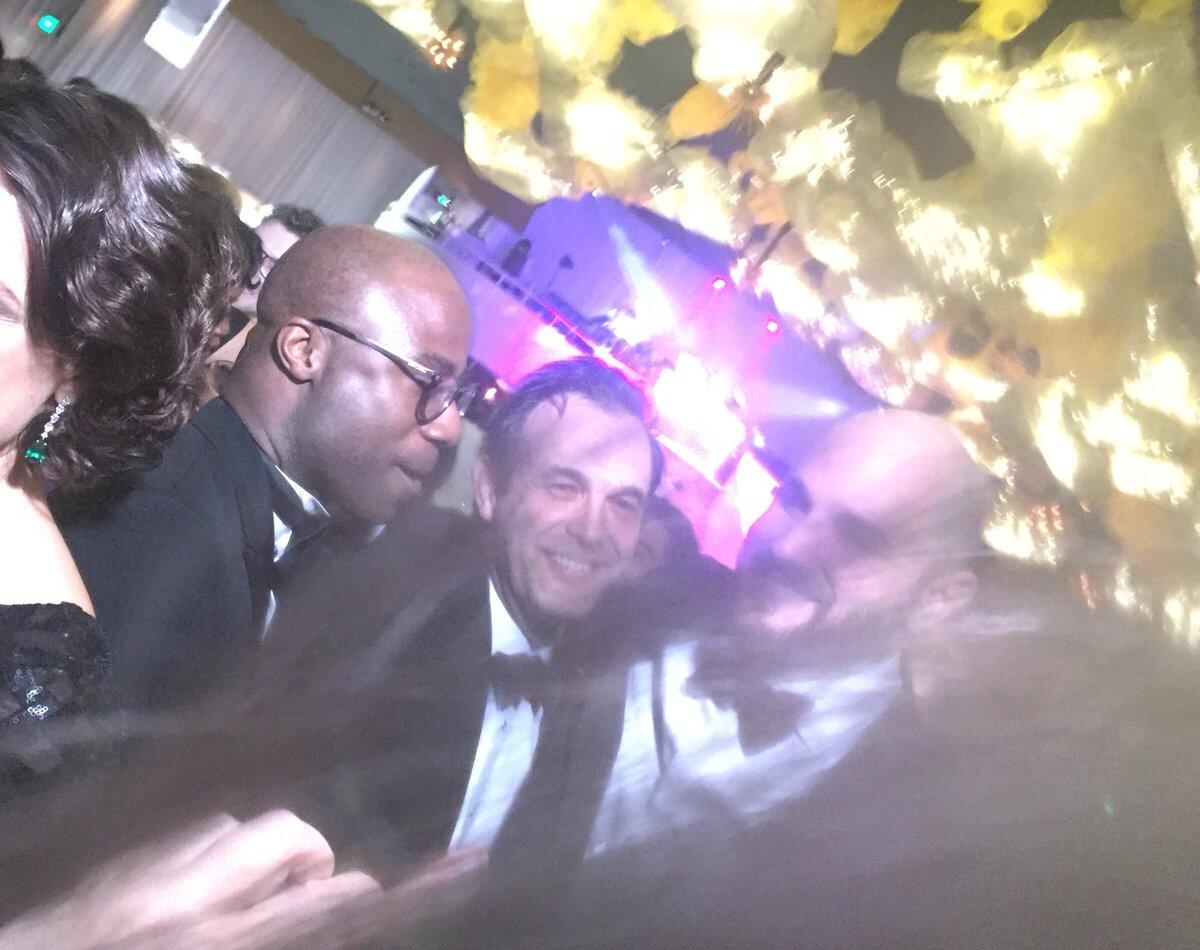
What do you say to someone who just won the Oscar you thought was yours?
That improbable scene played out just before midnight at the Governors Ball, where “La La Land” producer Jordan Horowitz, “Moonlight” director Barry Jenkins and “Moonlight” producer Jeremy Kleiner came together for the first time after their awkward stage moment several hours before.
“I feel so out-of-body right now,” Horowitz said.
Jenkins took out his phone and showed Horowitz a message pertaining to the envelope mix-up that led to all the confusion.
Then he snapped a selfie with Horowitz, the two men smiling. A genuine feeling of affection was apparent between them after all that had happened -- two movies, a juggernaut and an upstart, forever linked in Oscar history.
Jenkins shook his head in disbelief at the craziness of the evening, then gave a smile and a thank you to some well-wishers.
Kleiner, who had been talking to some people from his team nearby, turned to the pair and greeted them.
SEE PHOTOS OF THE BOTCHED ANNOUNCEMENT >>
“I wish you had your moment,” Horowitz said to the “Moonlight” producer, who barely managed a thank you in the Dolby Theatre confusion.
Kleiner then gave Horowitz a hug, which they held for a moment, the former offering Horowitz some encouragement in his ear.
“I love ‘La La’ and I love our film,” Kleiner told The Times a moment later. “Our film is about empathy and breaking barriers. Maybe the symbolism of that is a rebuke to what’s been happening in our country.”
Did tonight’s circumstances give him the same feeling as winning the traditional way? “It can’t,” he said with a shrug. “How can it?”
A few feet away, Horowitz continued to process the events. “I got to speak and I got to thank my wife.” he said, sounding as much like he was reassuring himself as anyone else. “I’d like to watch it and see what happened. I still don’t know if I can watch it,” he added ruefully.
He paused and took a deep breath.
“It’s an award. It’s just an award,” he said.
- Share via
There are 10,000 ranunculus in the over-the-top Governors Ball floral decorations

Mark Held has provided the floral decorations for the Governors Ball for 25 years.
This year’s Governors Ball is blanketed almost entirely in white with just a few pops of red and gold — mostly from the 10,000 ranunculus, double tulips and orchids supplied by celebrity florist Mark Held.
- Share via
PricewaterhouseCoopers issues statement after Oscars mistake robs ‘Moonlight’ of its moment
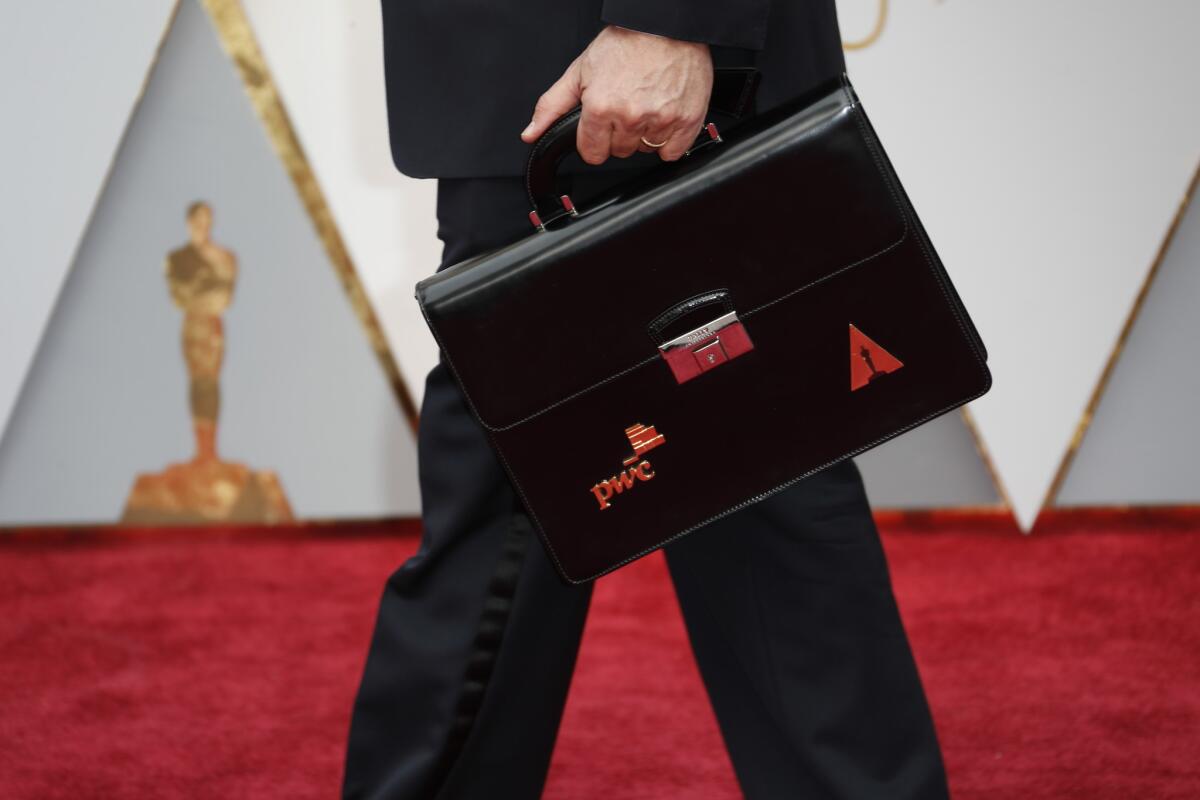
PricewaterhouseCoopers, the accounting firm responsible for the tabulation of the Oscar ballots and the envelopes announcing the winners, released a statement early Monday morning after a shocking mistake resulted in “La La Land” wrongly being announced as best picture:
“We sincerely apologize to ‘Moonlight,’ ‘La La Land,’ Warren Beatty, Faye Dunaway, and Oscar viewers for the error that was made during the award announcement for best picture. The presenters had mistakenly been given the wrong category envelope and when discovered, was immediately corrected. We are currently investigating how this could have happened, and deeply regret that this occurred.
“We appreciate the grace with which the nominees, the Academy, ABC, and Jimmy Kimmel handled the situation.”
A 2016 Los Angeles Times story explained that a set of envelopes containing the names of Oscar winners are kept on either side of the stage so that PricewaterhouseCoopers partners Brian Cullinan and Martha Ruiz can dispense them to presenters from whichever side they enter.
Meanwhile, at the Governors Ball...
- Share via
An unreal, amazing moment for ‘Moonlight’s’ young cast
No one was more stunned by the now infamous reversal of fortune at this year’s Oscars ceremony than “Moonlight’s” stars. They were stunned to hear that their film, not season-long awards juggernaut “La La Land,” was the best picture winner after all.
Jharrel Jerome, who plays teenage Kevin opposite Ashton Sanders as Chiron froze in his seat before running onstage to join his cast and crew mates in the “it’s no joke, you won” chaos.
“I was right next to Ashton and we were holding each other real tight,” Jerome said at the Governors Ball, where director Barry Jenkins and best supporting actor winner Mahershala Ali both made their way to “La La Land” producer Jordan Horowitz to thank him for his gracious onstage
moment.
“They said ‘La La Land’ -- and I respected every film tonight that got a nomination, so any win was a win to us. But it was a little crushing,” Jerome admitted.
He said he was as shocked as everyone else when Horowitz stepped up to the microphone and announced there had been a mistake.
“At first I thought he was just being nice,” Jerome said. When it was confirmed that “Moonlight” had won, “Steve Harvey popped up in my head,” he laughed.
“I was stuck in my chair. I just couldn’t move because my nerves locked up. Everything that I’d dreamed of happened in that moment. It was such an overwhelming feeling.”
“I got on the stage and lifted up Alex [Hibbert], and I didn’t stop crying for 20 minutes. He’s 12 and Jaden [Piner]is 13,” he added of the film’s youngest stars, who spent part of the Oscars afterparty scrolling through their social media feeds as adults clinked champagne glasses and schmoozed.
“We have 12- and 13-year-olds who are in the film that just won best picture. And it was really all of our first film,” Jerome smiled. “For it to be here is just unreal.”
- Share via
Director of ‘The White Helmets’ talks about shining a light on Syrian heroes
Netflix’s “The White Helmets,” about a group of first responders in Syria, is a film that pulses with meaning, said director Orlando von Einseidel backstage after snagging the Oscar for best documentary short.
“Right from the start this was about shining a very bright light on the heroes of our film, the White Helmets, Syrian rescue workers,” said Von Einsiedel, who previously won best documentary for 2014’s “Virunga.” “We [hope to] continue to magnify their voices.”
On the film’s absent cinematographer, Khaled Khateeb, who was denied entry into the U.S. due to what she said was “derogatory information,” producer Joanna Natasegara said they’d just spoken to Khateeb in the lobby.
SEE PHOTOS FROM INSIDE THE SHOW >>
“It’s been ameliorated because of the win. He’s thrilled because he, like us, wants the world to know about the White Helmets.”
On President Trump’s travel ban in general, she added: “We as filmmakers travel across the world and we don’t believe in building anything but compassion between people, and we’d never support something like the ban.”
When asked why the leader of the White Helmets wasn’t in attendance, Von Einsiedel said:
“He couldn’t come in the end because the violence in Syria has escalated. He does lifesaving work and he decided his time was better [spent] by staying there.”
- Share via
Emma Stone still has a lot of thank-yous to do
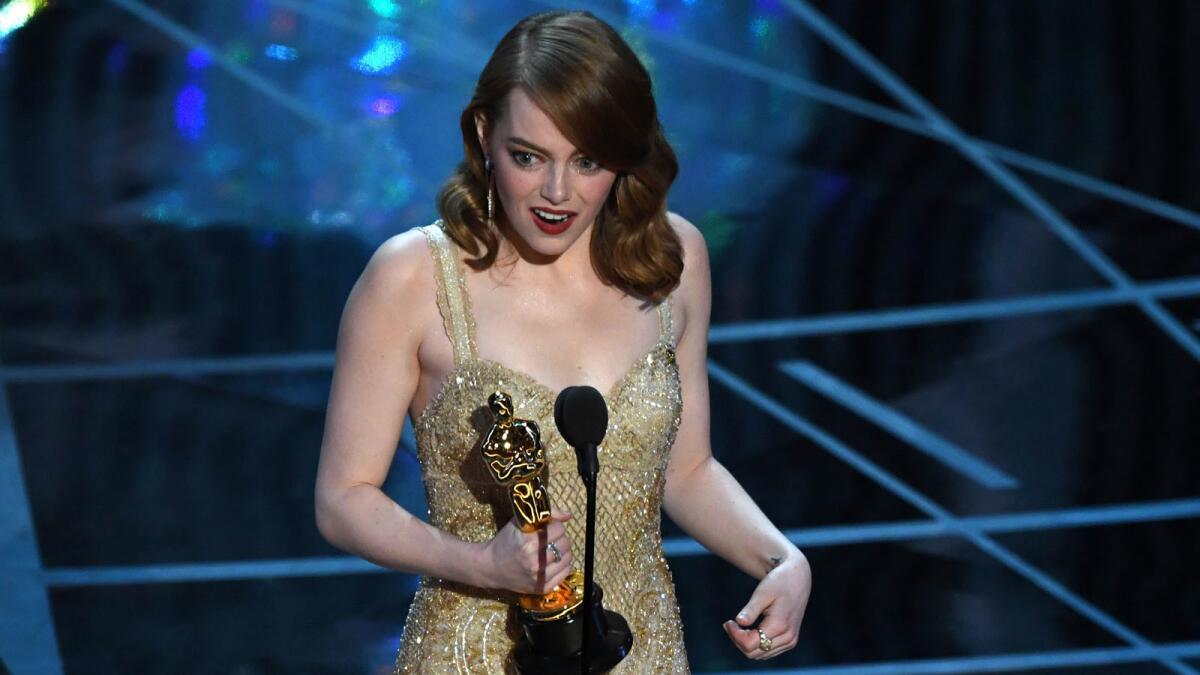
To everyone who put their hearts and souls into this film, I’m going to find you all individually and I’m going to thank you, along with my friends, who I love so much, I’m going to hug the hell out of you when the feeling reenters my bod.
— ‘La La Land’ star Emma Stone, accepting the best actress Oscar
- Share via
‘Moonlight’ actor Trevante Rhodes reacts to film’s ‘unique’ win: ‘I’m equally pissed off and happy’
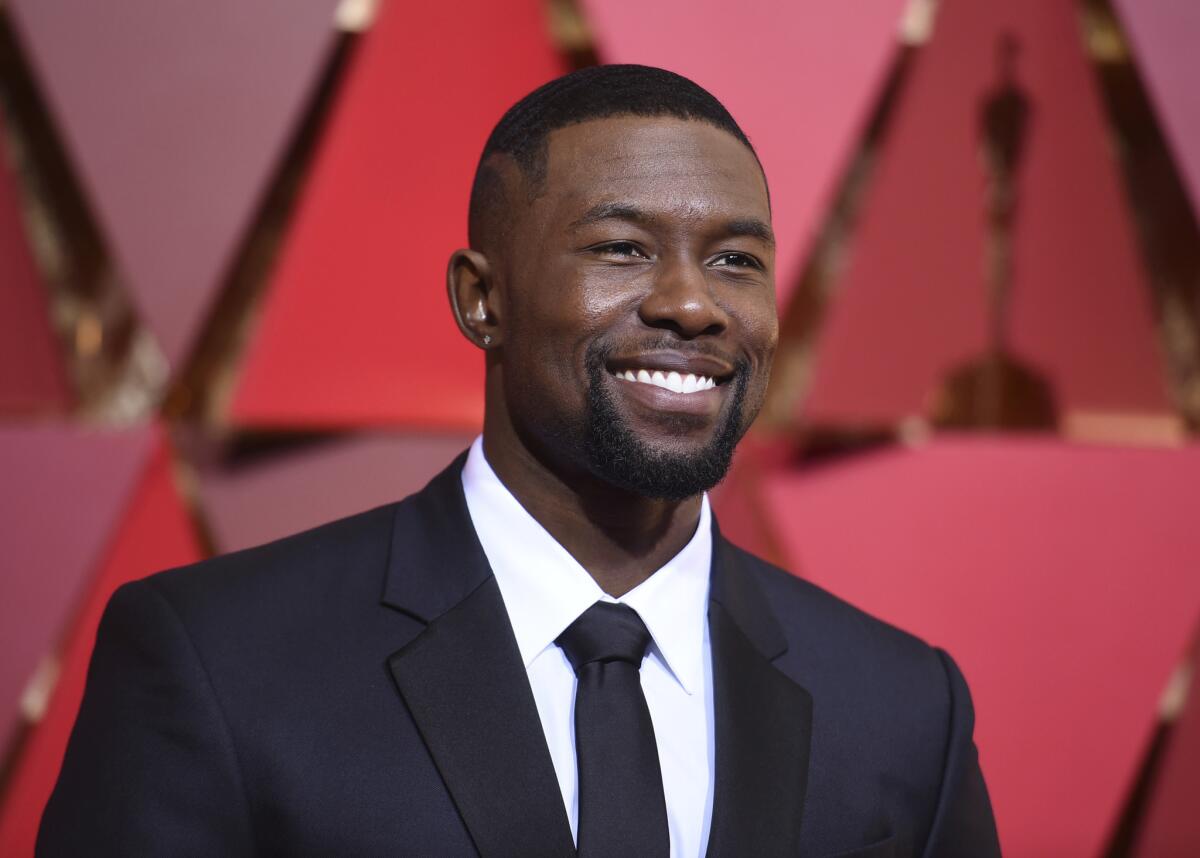
It’s weird. I’m equally pissed off and happy. This is the Oscars. How can they mess that up? But still, it’s a win. Everyone was happy. It’s just very unique.
— ‘Moonlight’ actor Trevante Rhodes
SEE ALL OUR PHOTOS FROM THE OSCARS RED CARPET >>
- Share via
Steve Harvey can now relax: He is no longer the biggest award show flubber
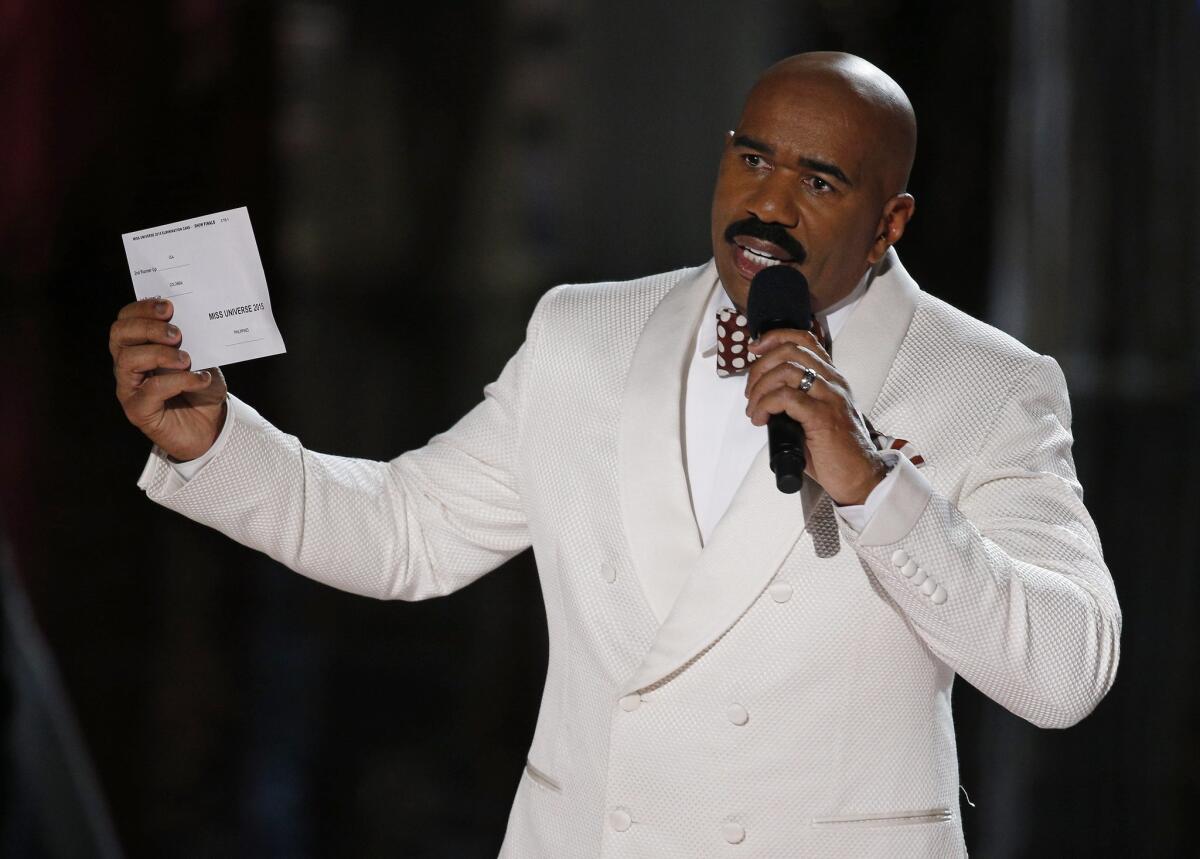
Move over, Steve Harvey: Faye Dunaway and Warren Beatty now hold the “world’s biggest awards show snafu” award.
The “Bonnie and Clyde” costars were the unfortunate presenters who, reading from an incorrect card, mistakenly awarded “La La Land” the Oscar for best picture when “Moonlight” had won.
“This is very unfortunate what happened,” host Jimmy Kimmel said, attempting to contain the situation. “Personally, I blame Steve Harvey for this.”
And indeed, it seemed a reprise of the 2015 Miss Universe pageant, when Harvey, the host, erroneously announced the winner as Miss Colombia, Ariadna Gutierrez, over the pageant’s true winner, Miss Philippines, Pia Wurtzbach.
Social media reaction was swift, with even the Miss Universe organization chiming in.
Unfortunately, unlike the Miss Universe pageant, the Academy Awards ceremony draws the biggest live audience in the U.S. after the Super Bowl. Dunaway and Beatty’s gaffe was seen live by tens of millions of viewers, and heaven knows how many others via online videos and, of course, Twitter.
- Share via
‘Manchester by the Sea’ Oscar winners after best picture confusion: ‘Turns out, we actually won best picture’
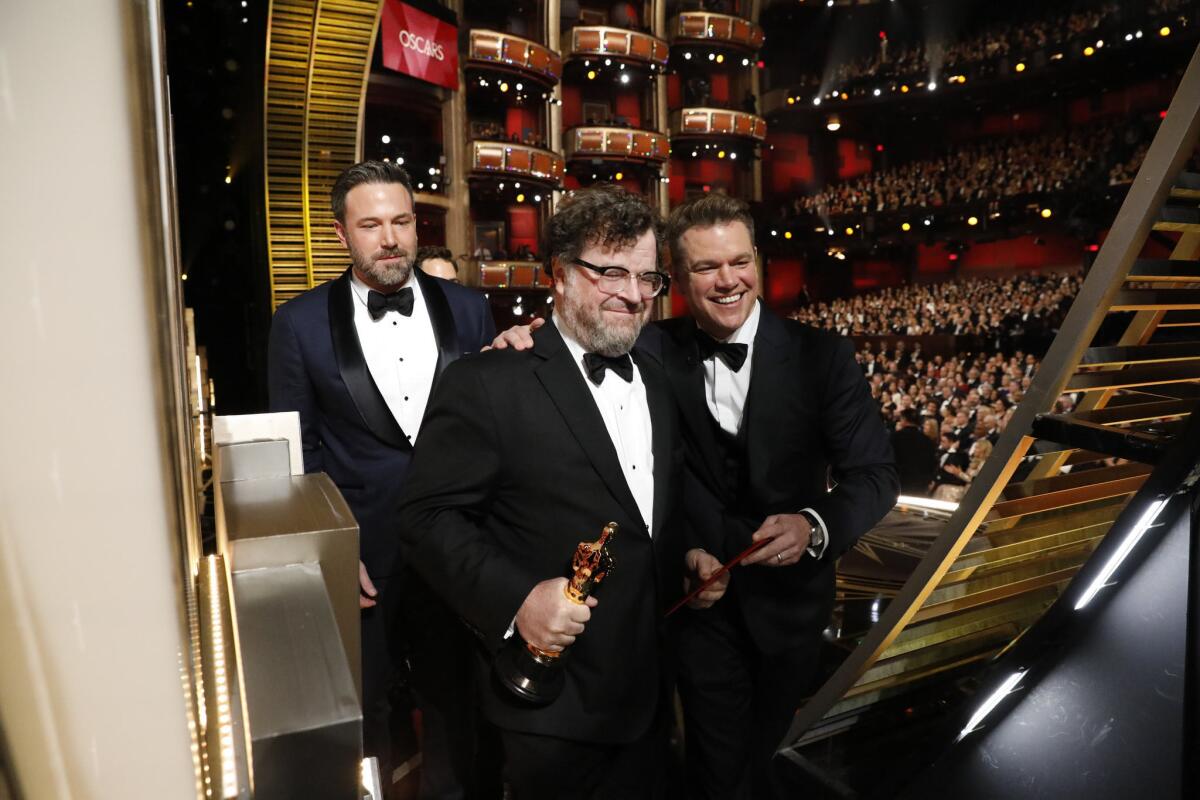
“Manchester by the Sea’s” writer-director and its star -- Kenneth Lonergan and Casey Affleck -- took the stage in the press room, and for a moment there was a ripple of confusion that echoed the night’s earlier guffaw in revealing the best picture winner. The uncertainty surrounded who the first question was going to come from.
While the press room emcee sorted that out, Lonergan addressed the crowd.
“While we’re waiting, you guys, it turns out, we actually won best picture!”
Laughs all around.
On what it was like for Affleck -- who won the Oscar for best actor -- to return to Boston for filming, he said: “Well, I like to work there because I know it so well and it feels like home, so that’s a bonus. There’s a familiarity that helps the work.”
Then he added: “But Kenny writes with such authenticity … it was already on the page.”
When Lonergan, who won the Oscar for original screenplay, was asked about his thoughts on the Writers Guild of America talks and a possible strike, he said a strike “would be premature.”
“I’d like to see more negotiations for creative control for screenwriters,” Lonergan said. “The creative-control issue is still at the bottom for the screenwriter and it would be great if one day that could change.”
Affleck was asked about the evening’s Oscar speeches -- why there weren’t more political comments. “There were a few people who said things about the current global political situation and from the point of view of artists,” he said. “But I don’t know why more people didn’t -- it doesn’t entirely seem like an inappropriate place, given the current [climate].”
“Personally,” Affleck added, “I didn’t say anything because my head was completely blank from the shock of winning the award. But then I didn’t thank my children, and that’s something I’ll never, ever live down.”
“My daughter, who is 15, was extremely irritated that I mentioned her at all!” Lonergan joked. “You can’t win either way.”
- Share via
Viola Davis: ‘At 51, I’m loving me’
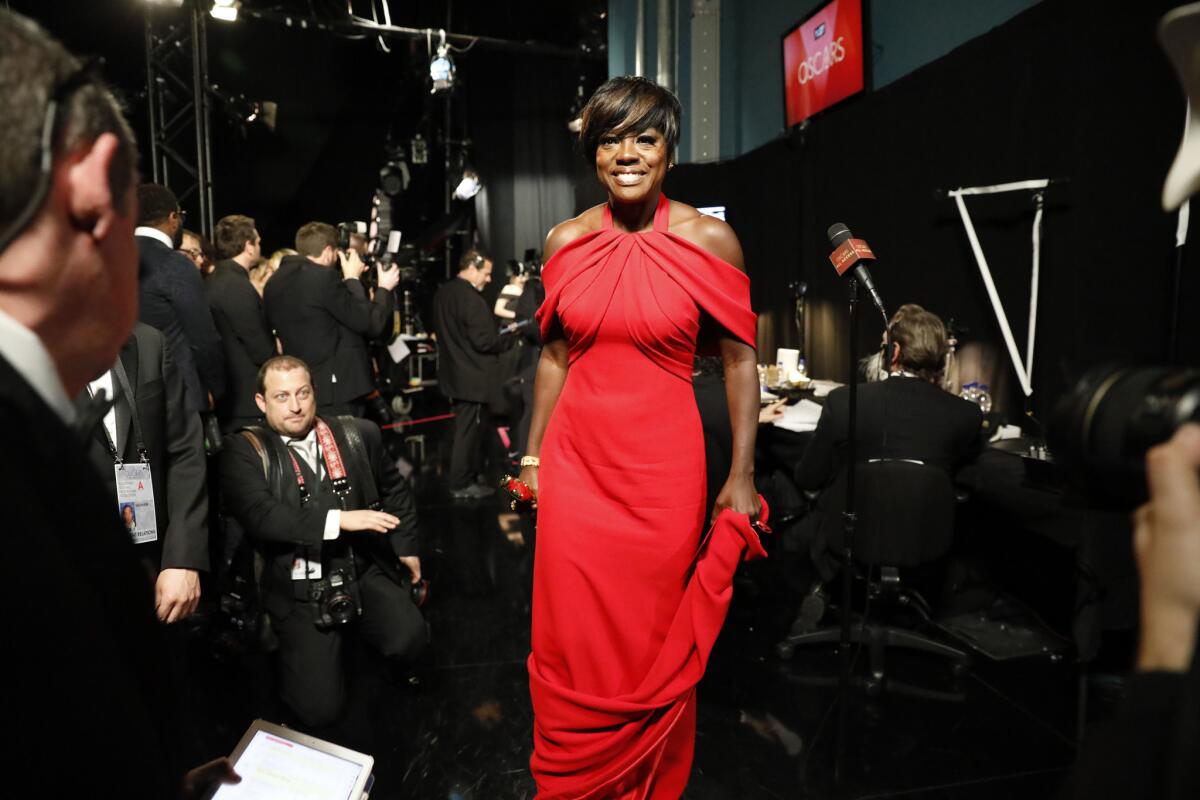
Viola Davis, who is now one “G” from EGOT-ing, won an Oscar for her role in “Fences.”
Backstage at the Academy Awards, Davis shared her thoughts on winning big and maybe having a celebratory vodka.
What would Annalise Keating [her character from “How to Get Away with Murder”] say about your win?
Viola Davis: She would most definitely say I deserved this. And then she would have some vodka, and in that we are very similar.
How do you feel in this moment?
Davis: It’s not my style to wake up and go ‘I’m an Oscar winner. Let me go for a run.’ I’m good with it. I’ll have some mac ‘n’ cheese and go back to washing my daughter’s hair tomorrow night.
This is the first day in my life that I step back and I can’t believe my life. I grew up in poverty. [Tears up]. I grew up in apartments that were condemned and rat-infested. I just wanted to be good at something. So, this is sort of the miracle of God, of dreaming big and hoping that it sticks and lands. And it did. I’m overwhelmed.
What do you love about being a black woman?
Davis: Everything. I love my history, the fact that I can go back and look at so many stories of women who’ve gone before me that seemingly should not have survived, but they did. I love my skin, my voice. Sometimes I don’t love being the spokesperson all the time, but so be it. That’s the way that goes sometimes. At 51, I’m loving me.
- Share via
Mahershala Ali on his historic win as the first Muslim to earn an Oscar for acting
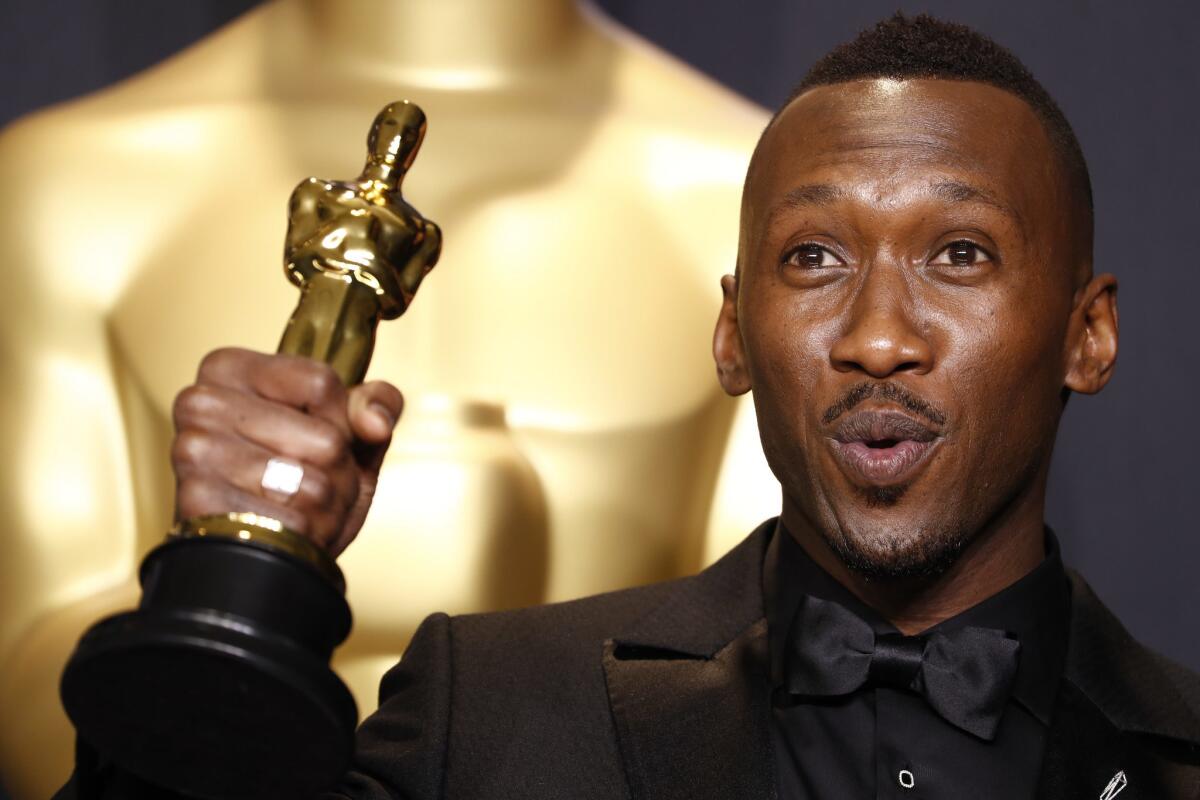
The Times caught up with Mahershala Ali after his historic night as the first Muslim actor to win an Oscar.
“Regardless of theology, or however you see life, or relate to worshipping God -- as an artist, my job is to tell the truth and then try to connect with these characters and people as honestly and deeply as possible,” Ali said.
While Ali said that any specific spiritual practice is irrelevant, it can be a doorway to “more empathy for these people you have to advocate for.”
“I’m proud to own [being Muslim] and I embrace that. I just feel blessed to have had the opportunities that I have had.”
SEE PHOTOS FROM INSIDE THE SHOW >>
As for the onstage mix-up for “Moonlight,” Ali has a lot of respect for the musical that almost stole their light. “‘La La Land’ has done so well and resonated with so many people, especially in this time when people need a sense of buoyancy in their life and need some hope and light. That film has really affected people in a very different way than ‘Moonlight.’”
“When their name was read, I wasn’t surprised. I was really happy for them,” he said. “Then, when I saw security and people coming onstage and their moment was being disrupted, I got really worried. When they said ‘Moonlight’ had won, it threw me a bit. Well... it threw me more than a bit. I didn’t want to go up there and take it from somebody. It’s very hard to feel joy in a moment like that.”
However, in the end Ali can see the silver lining. “I feel very fortunate for us all to have walked away with best picture. It’s pretty remarkable.”
As for landing his Oscar-winning character in “Moonlight,” Ali jokes, “I’m glad Idris [Elba] and David Oyelowo left me a job.”
- Share via
Naomie Harris, a star of Oscar-winning ‘Moonlight,’ thought she was the victim of a practical joke
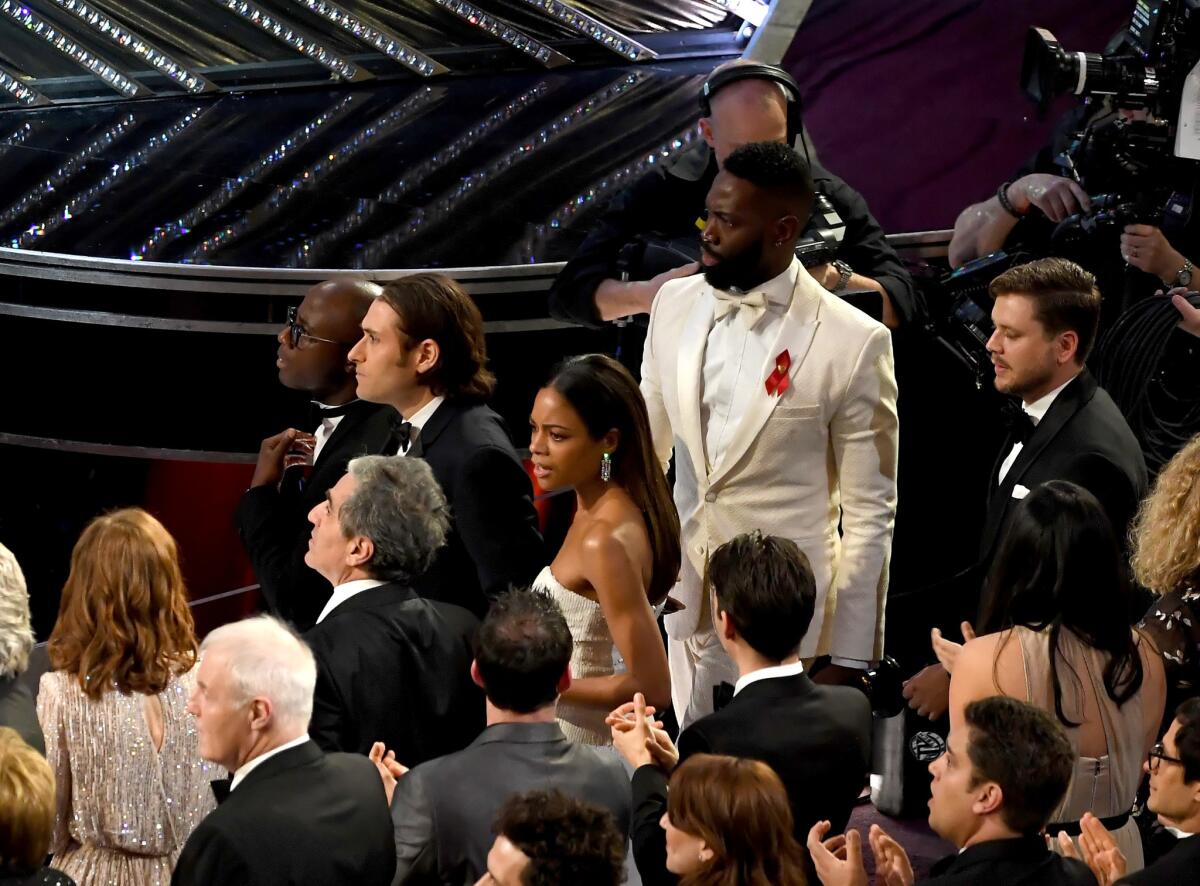
Naomie Harris was sitting in the Dolby Theatre near her “Moonlight” costars when the confusion surrounding Warren Beatty, Faye Dunaway and the best picture winner broke out Sunday night. She had the same reaction as many of us did.
“I thought it was a practical joke,” she told The Times as she waited to enter the Governors Ball. “When I walked onstage I had an expression of -- well, I have no idea what kind of expression I had. Like a what-just-happened expression. I’m not sure I want to look at it.”
SEE PHOTOS FROM INSIDE THE SHOW >>
When stage managers came to the podium, it led to a moment of chaos -- and then a quick “Moonlight” acceptance speech that was overshadowed by the drama after “La La Land” was mistakenly announced as the winner.
Does the reversal make the victory sweeter? Or did the circus surrounding the moment somehow diminish it?
“I’m not gonna say I think it’s a great thing we won this way,” Harris said. “I think it would have been great to have a [typical] moment.
“But let’s not forget what happened: This tiny, $1.5-million movie won best picture. And the night turned out to be incredibly varied with the winners. That’s all a good thing.”
- Share via
Emma Stone would thank you to not blame the Oscars’ best picture mix-up on her
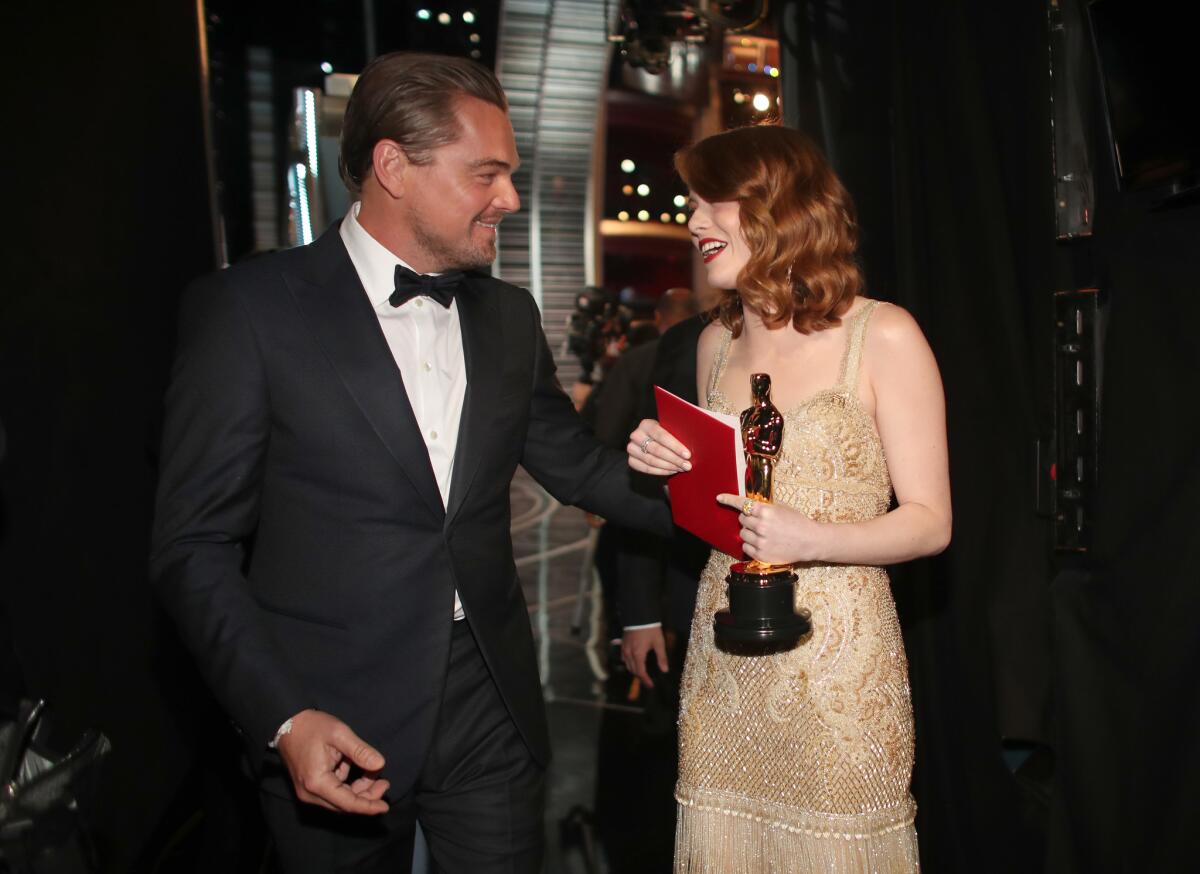
Emma Stone waltzed backstage with wide eyes and a sly smile after her win for best actress in “La La Land,” which came moments before a historic Oscar malfunction that led to the mistaken reading of that film for best picture instead of the rightful winner, “Moonlight.”
“Whoo, did you guys see that?” she asked as the press roared.
She said the now-notorious mix-up was incredibly surreal and added to the general dreamlike feeling she was already experiencing after her win.
“I was on such a buzzy plane backstage that I already felt like I was on another planet,” she said. “It was an incredible outcome, but a very strange happening for Oscar history.”
Then she grinned.
“Is that the craziest Oscar moment of all time? Cool, we made history. Craziest moment.” she said.
Stone also made it very clear that she and her co-collaborators on “La La Land” were thrilled for “Moonlight” and Barry Jenkins.
“I ... love ‘Moonlight.’ God, I love ‘Moonlight’ so much. I’m so excited for ‘Moonlight’ — we are so excited for ‘Moonlight.’ I think it’s one of the best pictures of all time,” she gushed.
Adding a note of intrigue to the confusion surrounding just what exactly led to the best picture debacle, Stone said, “I also was holding my best actress in a leading role card, so I’m not sure what that was. Whatever story you’re hearing.”
- Share via
Jimmy Kimmel talks Damon and doughnuts in aftermath of Oscars ‘nuttiness’
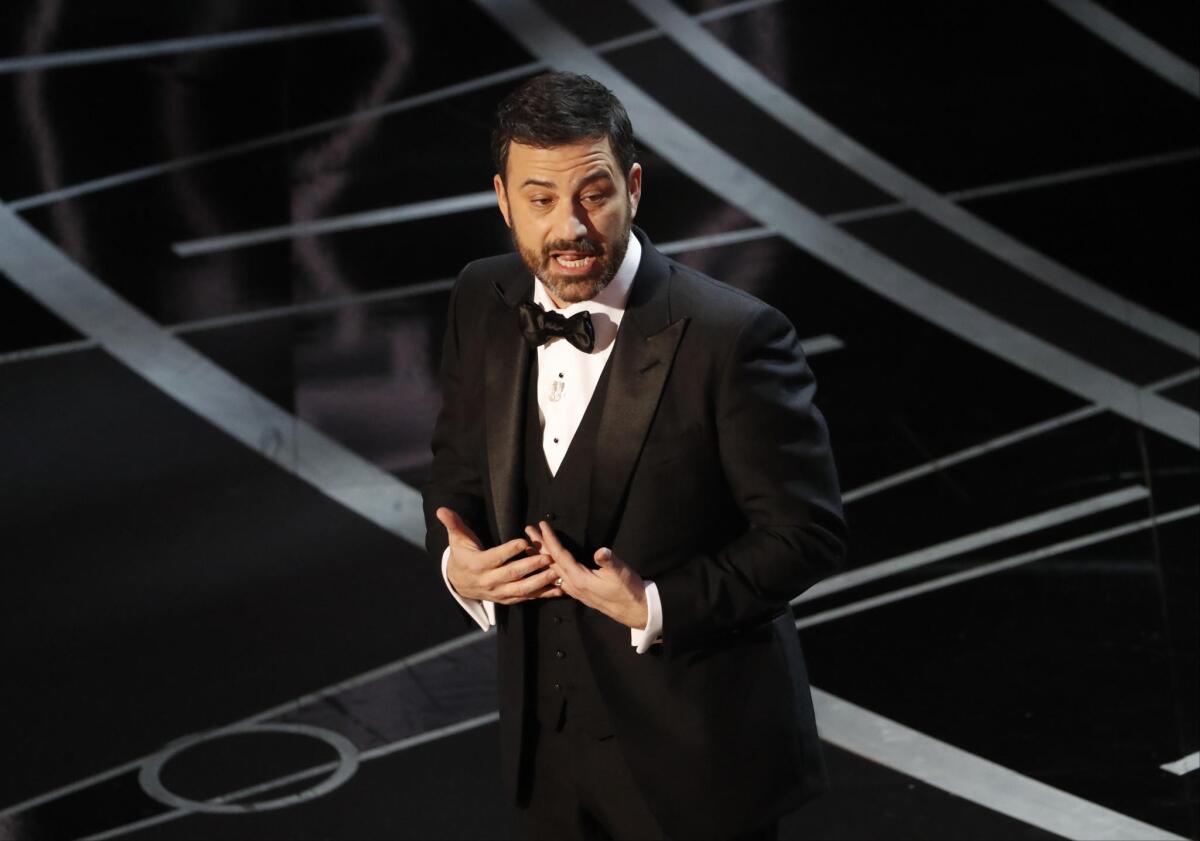
Jimmy Kimmel spoke to The Times backstage about what happened when the Oscars broadcast suddenly went off the rails with an unprecedented mistake.
“I saw something online... it was a screen grab that showed the best actress envelope. It’s funny, I was about to go on stage and do a bit with Matt Damon and a doughnut, but I said, ‘I think I have to go on stage,’ because otherwise our stage manager Gary [Natoli] was going to have to finesse it,” Kimmel said.
“There was a lot of nuttiness. It was kind of like a dispute over a boxing match. You didn’t know who won. You didn’t know who the winner was. But I have to say the producers of ‘La La Land’ were very gracious,” Kimmel remarked of the individuals who very suddenly learned they had not won best picture.
“Listen, it’s a TV show,” Kimmel concluded.
- Share via
Barry Jenkins explains what happened onstage during the best picture ‘Moonlight’ mix-up
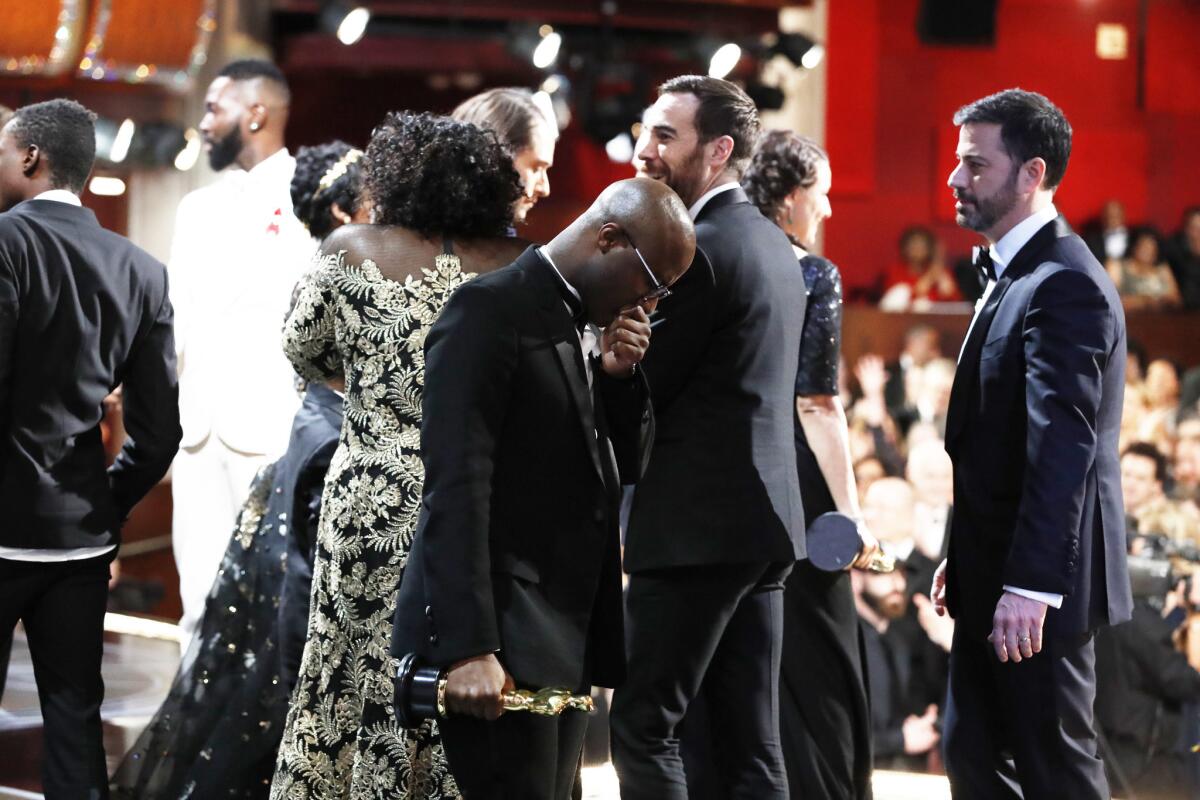
After the chaos of the Oscars best picture mix-up, The Times caught up with “Moonlight” director Barry Jenkins.
Did the Academy offer him any explanation?
“No explanation,” Jenkins said. “I will say that I saw two cards and so things just happened. I wanted to see the card to see the card.”
In an odd twist, the best picture presenter, Warren Beatty, refused to show anyone the card before showing it directly to Jenkins. “Everybody was asking and he was like ‘No, Barry Jenkins has to see the card; I need him to know.’”
After Jenkins saw the official card with “Moonlight” printed on the paper, the director felt better about what happened.
“I will say that the folks from ‘La La Land’ were so gracious,” Jenkins admitted. “I can’t imagine being in their position and having to do that. I wasn’t speechless because we won. I was speechless because it was so gracious of them to do that. The card said: ‘Best Picture: Moonlight.’”
Jenkins refuses to be too negative about the confusion: “It’s unfortunate that things happened the way they did, but hot damn, we won best picture.”
- Share via
How could the best picture mix-up happen? Duplicate cards await on both sides of the stage

After the Oscars’ big best picture mix-up Sunday, Emma Stone said backstage that she was holding her lead actress card when “La La Land” was incorrectly announced as best picture.
So how could Warren Beatty and Faye Dunaway have been looking at that very same card, as the actor explained to the audience?
Turns out that for each category, there are two cards waiting in the wings, one on each side, as explained in a 2016 Los Angeles Times story by Valli Herman:
“In an undisclosed location, the partners tabulate votes and stuff two sets of winning envelopes, partly as another security measure and also to aid the show’s flow. Stationed with their signature briefcases on opposite sides of the stage, either [PricewaterhouseCoopers partners, Brian] Cullinan or [Martha] Ruiz can dispense envelopes to presenters. At the end of the evening, each accountant will have given out about half of the envelopes.
“And the third set? ‘There is no third “set” sitting somewhere that has the winning cards in the winning envelopes,’ Cullinan said. However, the remaining, unstuffed envelopes and nominee cards are shipped to a second secret location, just in case some disaster prevents access to the completed sets. After the ceremony, unused cards and envelopes are destroyed by an industrial document-destruction company.”
- Share via
Warren Beatty makes his case in best picture mix-up
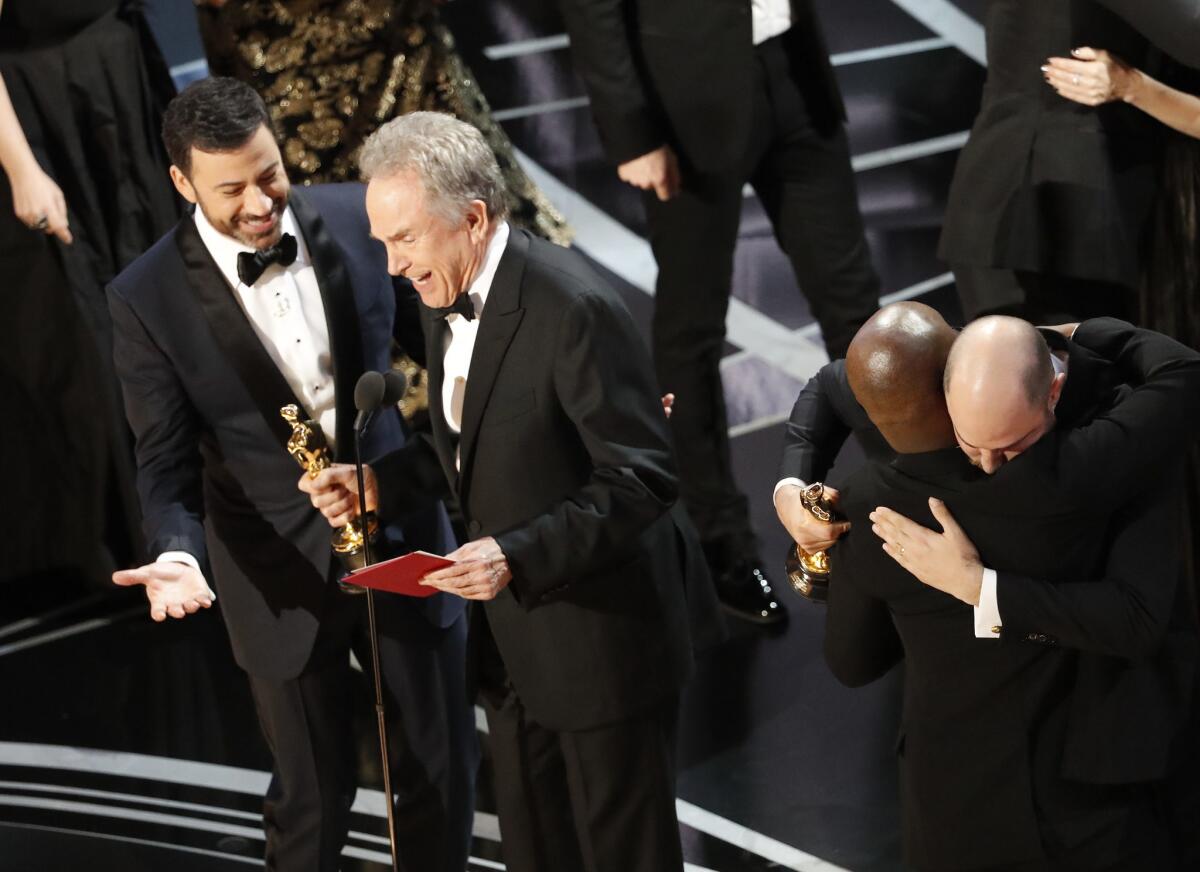
The Times exclusively spoke to best picture presenter Warren Beatty backstage after the history-making mistake that briefly awarded “La La Land” the honor instead of rightful winner “Moonlight” and the legendary director explained what happened onstage.
I looked down at the card and thought, ‘This is very strange, because it says best actress.’ Maybe there was a misprint. I don’t know what happened. And that’s all I have to say on the subject.
— Warren Beatty
- Share via
Oscar shocker: ‘Moonlight’ wins best picture, but only after ‘La La Land’ crew to the stage
In a moment that will go down as one of the strangest and most shocking in Oscar history, “Moonlight” was named Oscar winner for best picture only after “La La Land” was announced first.
The room was in disarray as they sorted out the error.
Here’s how it went down:
Co-presenters Warren Beatty and Faye Dunaway were on stage to present the award. After listing the nominated films. Beatty opened the envelope and then paused for longer than usual. He looked around and over at Dunaway, who then announced “La La Land” had won.
Producers and cast members from “La La Land,” the candy-colored big-screen romantic musical about two artists striving to fulfill their dreams, made their way to the stage to celebrate. They had begun their thank yous when the mistake was caught.
SEE PHOTOS FROM INSIDE THE SHOW >>
“La La Land” producer Jordan Horowitz interrupted the celebration, calling attention to the discrepancy on the winners card in his hand.
At that point, Horowitz showed the card to the camera, which clearly indicated “Moonlight” had won. As the “Moonlight” crew made their way to the stage, Beatty stepped to the mic.
He explained that the reason it had taken him so long to read the card was because he was looking at something that said Emma Stone had won. At that point, he showed it to Dunaway, who announced “La La Land.” Beatty assured viewers that the error was unintentional and he wasn’t trying to turn the biggest award into a joke.
Beatty later elaborated on what happened on stage.
“I looked down at the card and thought, this is very strange, because it says best actress,” he told The Times. “Maybe there was a misprint. I don’t know what happened. And that’s all I have I have to say on the subject.”
Michael De Luca, one of the Oscar ceremony producers, was walking down backstage hallway towards the Governor’s Ball when he stopped to greet someone.
Asked if everything was OK, he responded: “It’s OK for some, but not OK for others. It’s not OK for the Academy. But it was great live television.”
In his review of “Moonlight,” L.A. Times film critic Kenneth Turan wrote, “So intimate you feel like you’re trespassing on its characters’ souls, so transcendent it’s made visual and emotional poetry out of intensely painful experience, it’s a film that manages to be both achingly familiar and unlike anything we’ve seen before.”
Both a salute to Hollywood and a love letter to Los Angeles, “La La Land” came into the Oscars with a record-tying 14 nominations. The film starts with a traffic jam that turns into an improbable song-and-dance sequence and goes on to follow its young stars as they meet amid disappointing professional moments.
In his review of the film, L.A. Times critic Justin Chang said, “The result is, by any reasonable measure, one of the loveliest things you will experience in a theater this year.”
Those onstage to celebrate what they thought was “La La Land’s” win were gracious as they learned they had not taken home the honor.
The other nominees were:
“Arrival”
“Fences”
“Hacksaw Ridge”
“Hell or High Water”
“Hidden Figures”
“Lion”
“Manchester by the Sea”
Here’s a complete list of winners and losers.
SEE ALL OUR PHOTOS FROM THE OSCARS RED CARPET >>
Update: This article was originally published at 9:09 p.m. and has been updated numerous times.
- Share via
‘Oh my god, he got the wrong envelope’ -- backstage during the Oscars’ best picture chaos

“Moonlight” won the best picture Oscar after a botched announcement threw the ceremony into chaos.
As the “La La Land” cast was taking the stage to celebrate, a stagehand in the wings said, “Oh ... Oh my god, he got the wrong envelope.” They walked back and forth repeating it.
Stagehands, actors, production crew and journalists were stunned. Oscars producer Michael De Luca was peering into his monitor, trying to figure it out. Champagne glasses sat on the table next to him. They had been poured moments earlier to celebrate a good show.
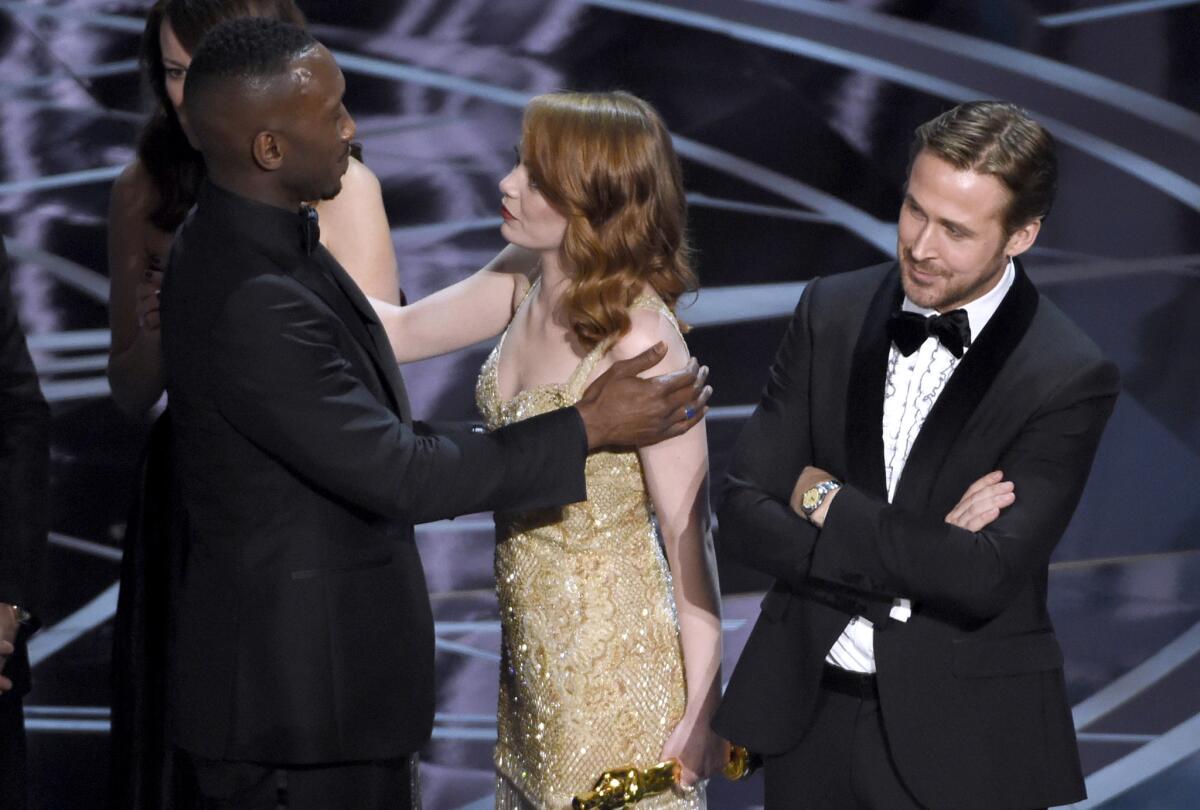
The academy doesn’t know what went wrong. Stage manager Gary Natoli came running past just now saying, “Warren is holding on to the envelope. He will not release it.”
SEE PHOTOS FROM INSIDE THE SHOW >>
When host Jimmy Kimmel returned from off stage, De Luca told the show host, “Thanks for covering, man.” And Kimmel responded, “Yeah, but no one is going to remember that now. I don’t know what happened. We will analyze every bit of it.”
Meanwhile John Legend mused, “One wishes it was the right card. One wishes.”
- Share via
Memo to hairstylists: Keep it short. Short hair and pixie cuts are big style winners at the Oscars
Michelle Williams has made it her signature, but the controlled pixie cut has made a comeback as the high-glam short-hair look that makes the most of cheekbones and dazzling earrings.
At the Academy Awards on Sunday, Viola Davis wore hers with elegant-but-casual side-swept bangs, while Janelle Monáe kept her short hair looking regal with a headband, and Ginnifer Goodwin gave her hair edge with super-sharp, super-short bangs.
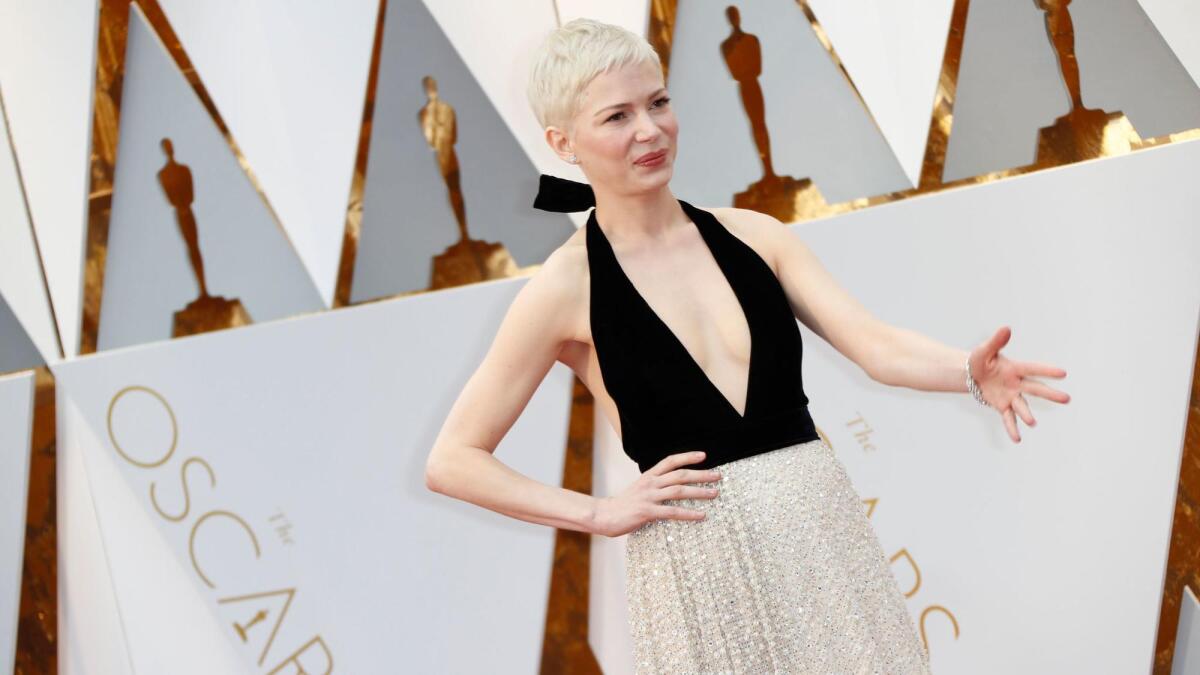
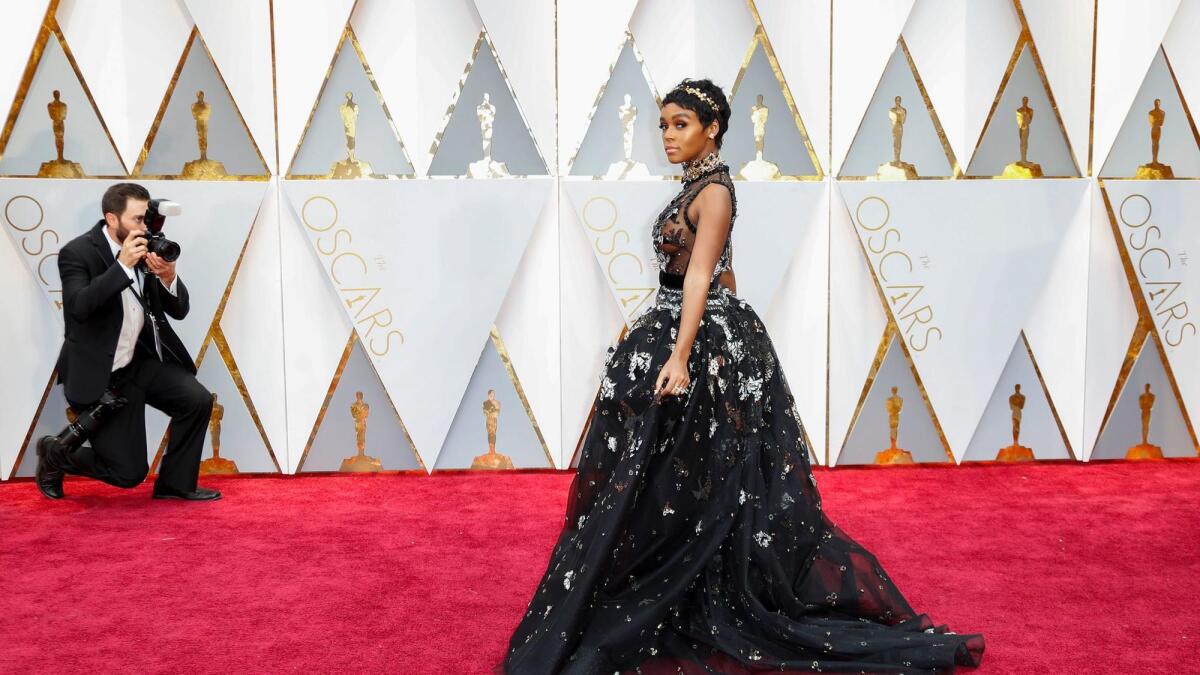
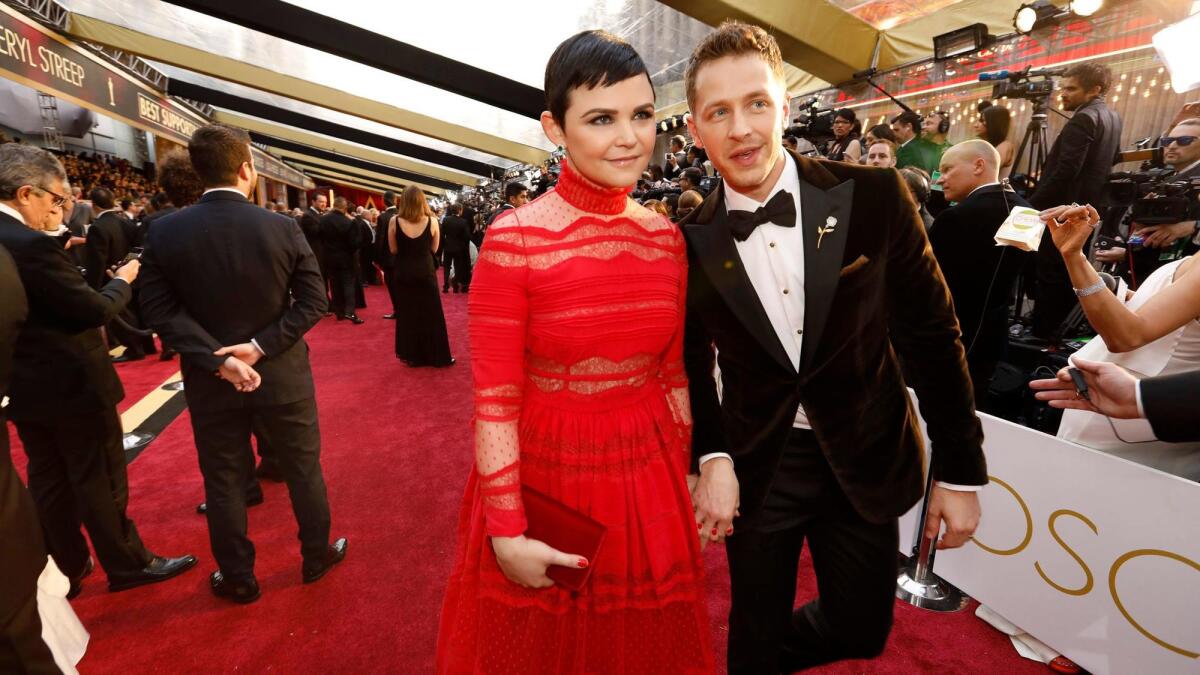
- Share via
Agents for Casey Affleck, Denzel Washington good-naturedly trash talk each other and consult psychics
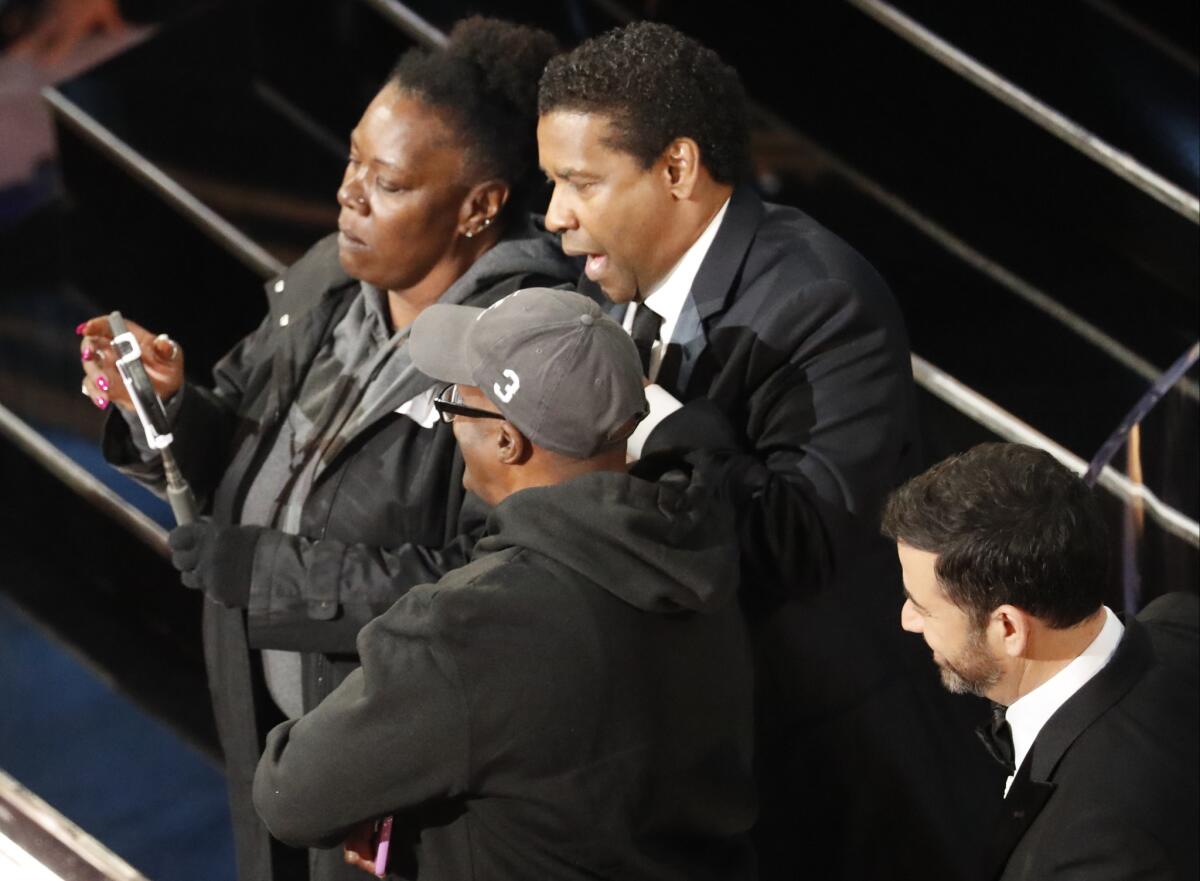
One of the most competitive races of the night is Casey Affleck versus Denzel Washington for lead actor. The “Manchester by the Sea” and “Fences” stars were considered neck-and-neck heading into the Oscars ceremony, with their respective campaigners waging a fierce battle.
Not so their agents, who are close friends at WME Entertainment, where the competitiveness and, occasionally, trash talk, on behalf of their clients flows freely.
“One of us will go out and have a great night,” said Boomer Malkin, Affleck’s agent, as he stood near the bar of the Dolby Theatre during the ceremony about an hour before the award was to be announced.
“And will be forced into consoling” the other agent, said Andre Finkelstein, Washington’s representative.
Malkin admitted that relations have gotten a little heated around the office, but mostly have stayed civil. “I think everyone knows there’s no loser,” he said.
“Easy for you to say, since you’re winning [by a large margin]” Finkelstein said, alluding to Affleck’s victory on a number of major awards but not the SAG. He later added, “But we have the one that really matters coming into tonight.”
“Well, you do have Google on your side,” Malkin said.
Um, what?
“My wife asked Google who will win and it said Denzel. Apparently his performance is more ‘electric,’” said Malkin, referring to a Google Assistant bot she had jokingly queried.
Finkelstein parried back. “Yeah, but you have the psychic on your side.”
“Oh, that’s right,” said Malkin, noting a medium who told him at a party Saturday that Affleck would take the prize.
“So, he might win,” said Finkelstein of Malkin. “But he goes to psychics.
- Share via
Elton John: ‘I’m glad we didn’t have Warren Beatty do the live auction’
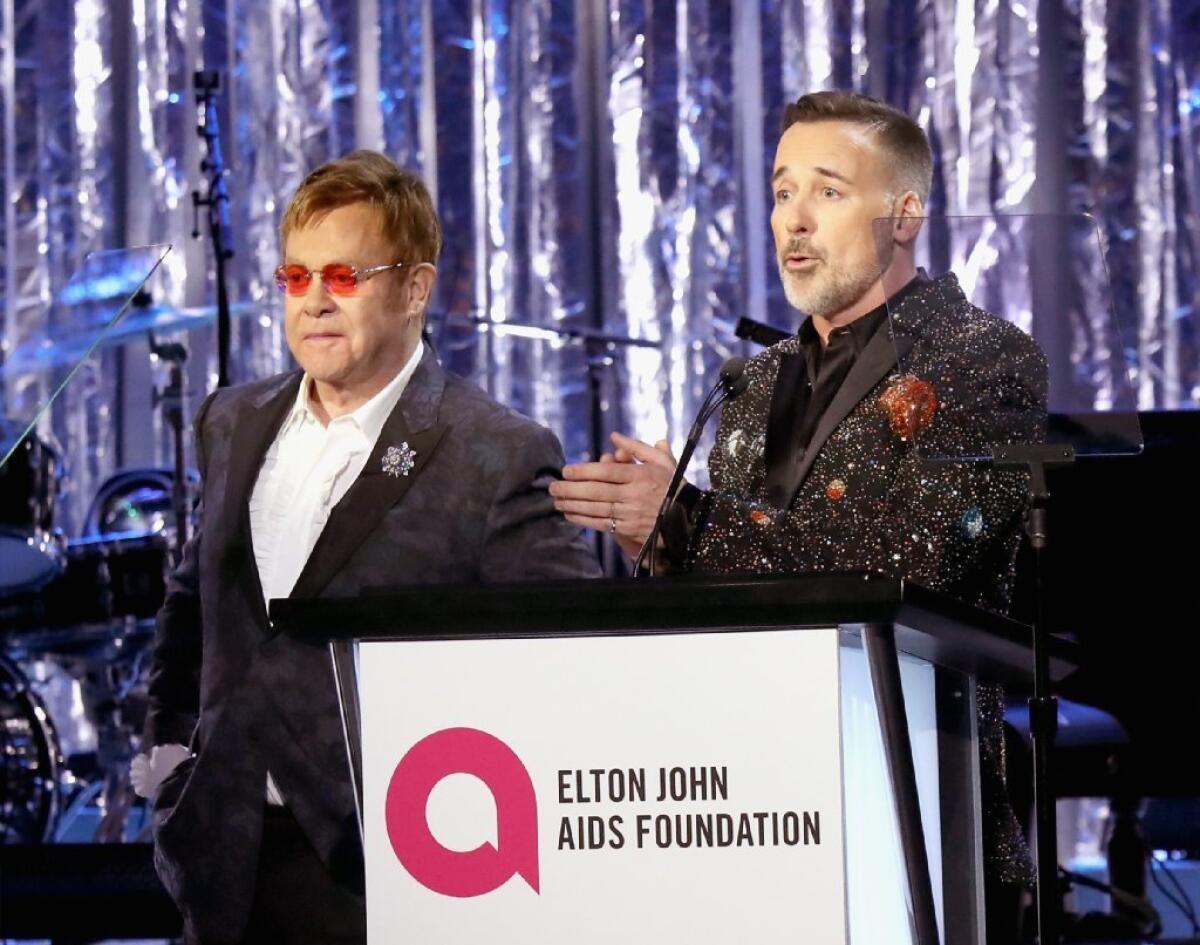
Immediately after the climactic snafu for the announcement of this year’s best picture winner, “Moonlight,” Elton John took the stage at his 25th Academy Awards viewing party and fundraiser in West Hollywood for the Elton John AIDS Foundation.
“Wow!” the veteran English rocker said. “I’m glad we didn’t have Warren Beatty do the live auction.”
- Share via
Barry Jenkins on ‘Moonlight’s’ surprise win: ‘To hell with dreams! I’m done with it because this is true’
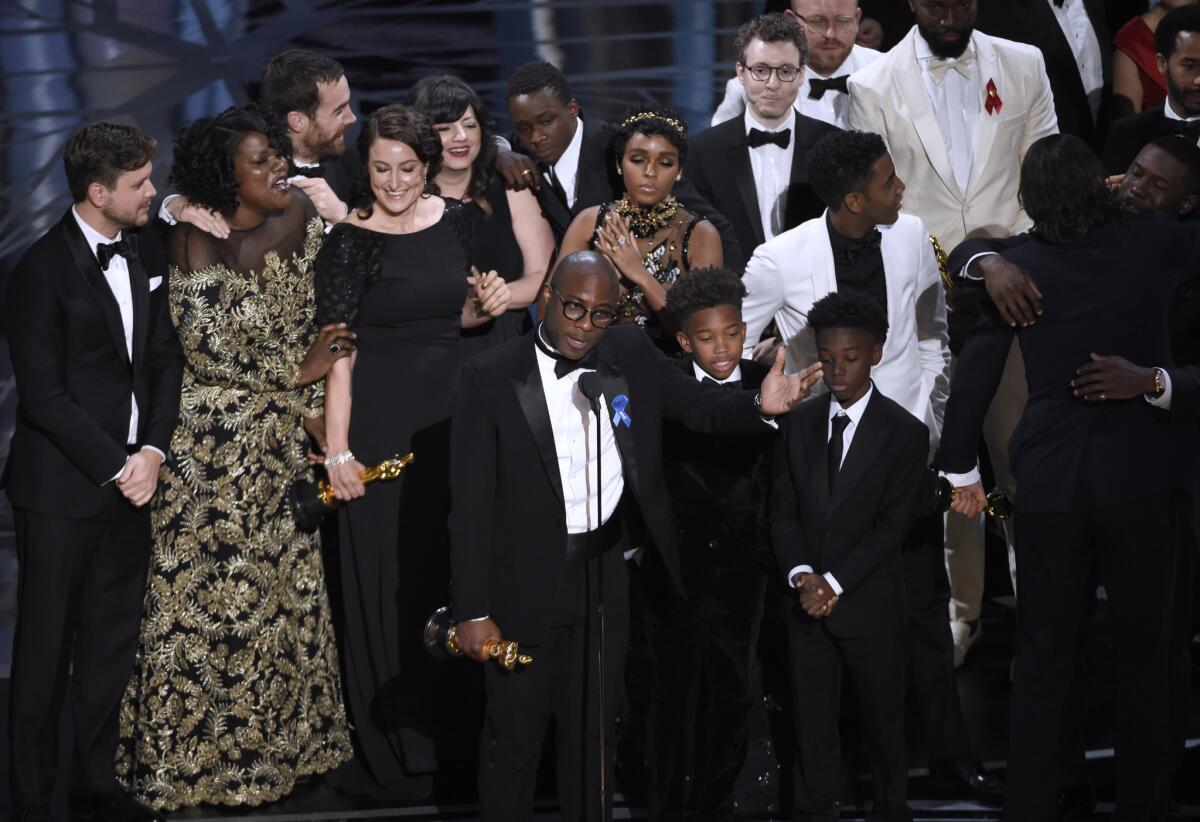
Very clearly, even in my dreams this could not be true, but to hell with dreams! I’m done with it because this is true. Oh, my goodness. I have to say it is true, it’s not fake. We’ve been on the [awards show circuit] with these guys for so long and that was so gracious, so generous of them. My love to “La La Land,” my love to everybody. Man.
— Barry Jenkins, on “Moonlight” best picture win
- Share via
Jimmy Kimmel reacts to the best picture mix-up
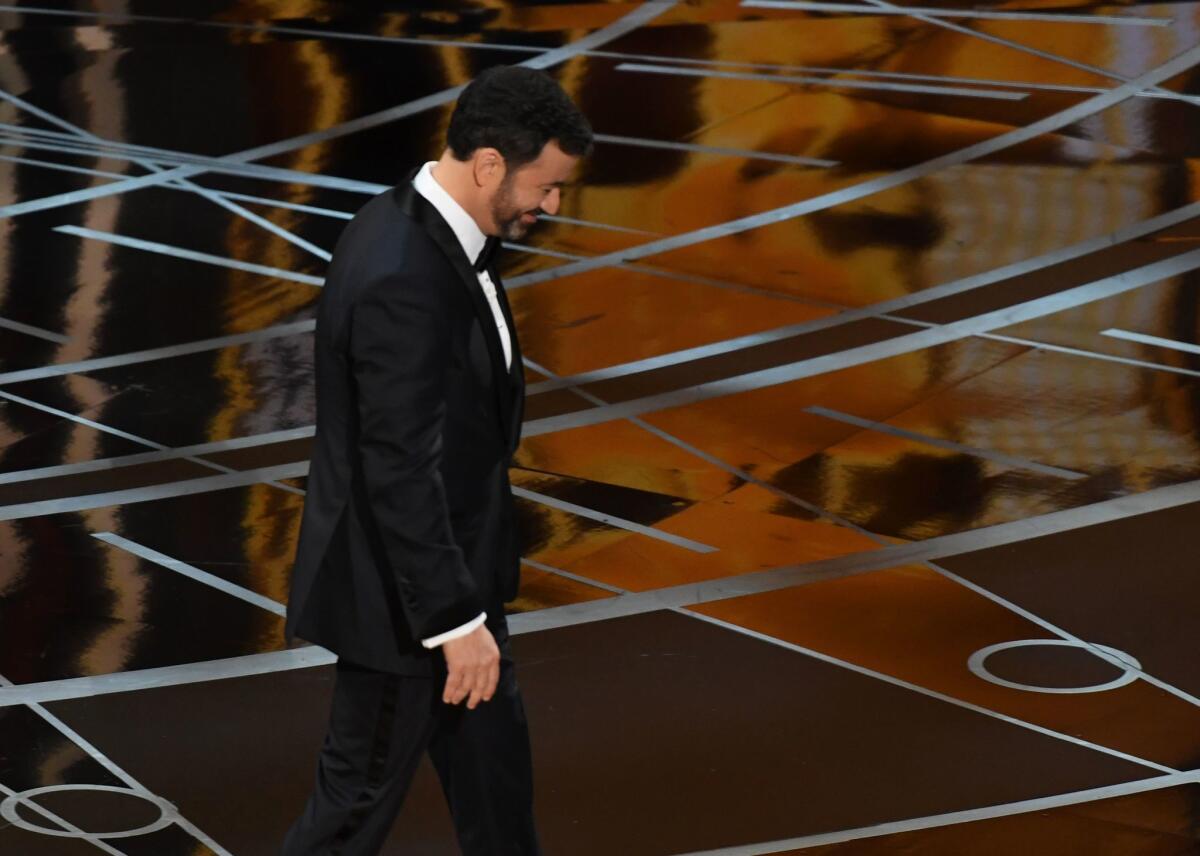
In an unscripted surprise, “Moonlight” was awarded the Academy Award for best picture after “La La Land” was erroneously announced as the winner.
Oscar host Jimmy Kimmel seemed regretful and a bit self-deprecating as the telecast wrapped up.
I knew I would screw this show up. I really did.
— Jimmy Kimmel
- Share via
Warren Beatty explains how they incorrectly announced ‘La La Land’ as best picture

I want to tell you what happened. I opened the envelope and it said Emma Stone, ‘La La Land.’ That’s why I took such a long look at Faye [Dunaway] and at you. I wasn’t trying to be funny.”
— Warren Beatty, explaining how the wrong movie was announced as best picture
- Share via
The ‘Moonlight’-’La La Land’ mix-up just broke the Internet
In perhaps the most unbelievable ending to an Oscar ceremony, “La La Land” was awarded the Academy Award for best picture, a mistake that was eventually corrected to honor the actual winner, “Moonlight.”
After Warren Beatty apologized for the mix-up, the Internet lost its collective mind. Here are just a few bewildered reactions to the news.
- Share via
‘White Helmets’ creators on ‘shining a very bright light’ on Syrian rescue workers
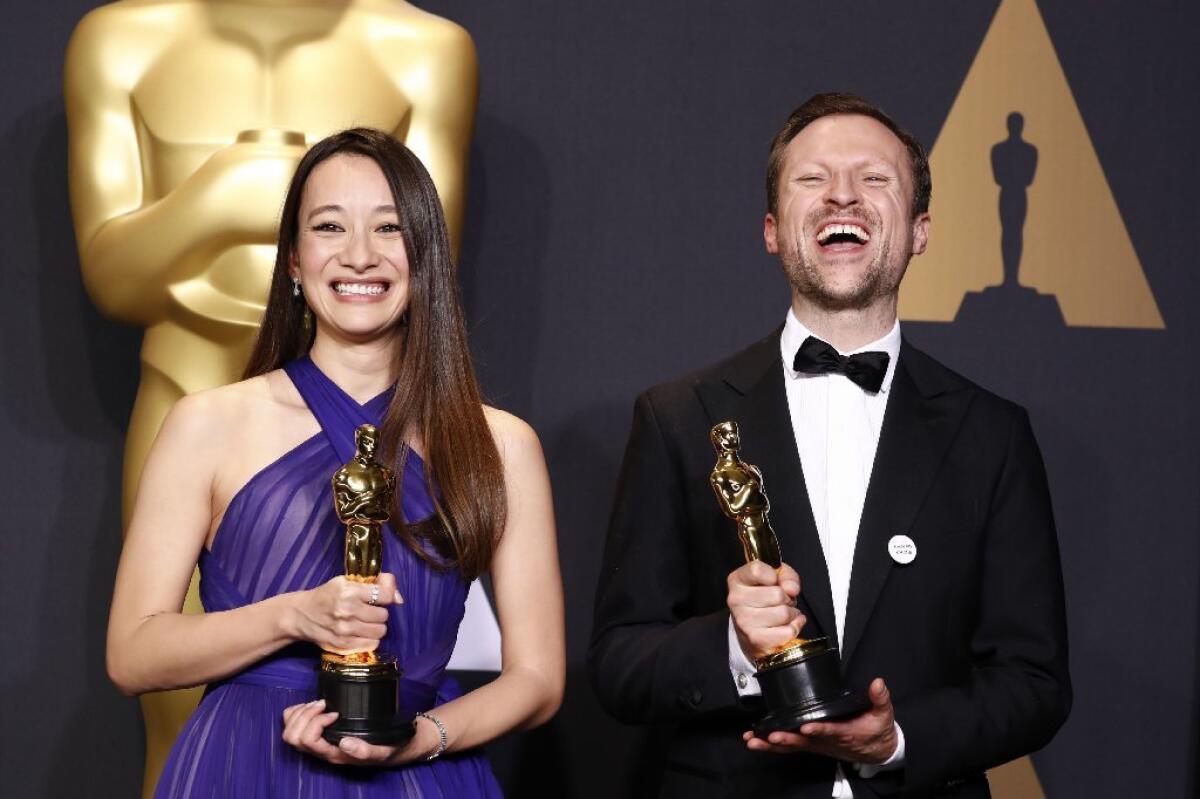
Netflix’s “The White Helmets,” about a group of first responders in Syria, is a film pulsing with meaning, said director Orlando von Einsiedel backstage after snagging the Oscar for best documentary short.
“Right from the start this was about shining a very bright light on the heroes of our film, the white helmets, Syrian rescue workers,” said Von Einsiedel, who previously won best documentary for 2014’s “Virunga.” “We [hope to] continue to magnify their voices.”
On the film’s cinematographer, Khaled Khateeb, who was denied entry into the U.S. due to “derogatory information” and therefore couldn’t attend the Oscars, producer Joanna Natasegara said they had just spoken to Khateeb.
“It’s been ameliorated because of the win. He’s thrilled because he, like us, wants the world to know about the white helmets,” she said.
On President Trump’s travel ban, in general, she added: “We as filmmakers travel across the world and we don’t believe in building anything but compassion between people, and we’d never support something like the ban.”
When asked why the leader of the white helmets wasn’t in attendance, Von Einsiedel said:
“He couldn’t come in the end because the violence in Syria has escalated,” he said. “He does life-saving work, and he decided his time was better [spent] by staying there.”
- Share via
Academy Award winner Colleen Atwood has designs on Edith Head’s record
With her win for “Fantastic Beasts and Where to Find Them,” costume designer Colleen Atwood is making new records in Academy Award history.
With four Oscars for her film work, Atwood now is tied with Milena Canonero for most wins in the post-Edith Head era. Head had eight wins and -- a record that will likely never be broken -- 35 nominations (partly because nominations in Head’s day were given for color and black-and-white films).
With 12 costume design Oscar nominations, Atwood is ahead of Sandy Powell with 11 nominations and behind the late Irene Sharaff, who earned 15.
- Share via
The card that changed everything at the 89th Oscars

“La La Land” producer Jordan Horowitz holds up the winner’s card to the audience, revealing that it was “Moonlight” and not the mistakenly announced “La La Land.”
“This is not a joke, ‘Moonlight’ has won best picture, “ Horowitz said. “‘Moonlight.’ Best picture.”
As the confusion took hold of the stage the producer continued, “I’m going to be really proud to hand this to my friends from “‘Moonlight.’”
- Share via
Shine on, Charlize Theron
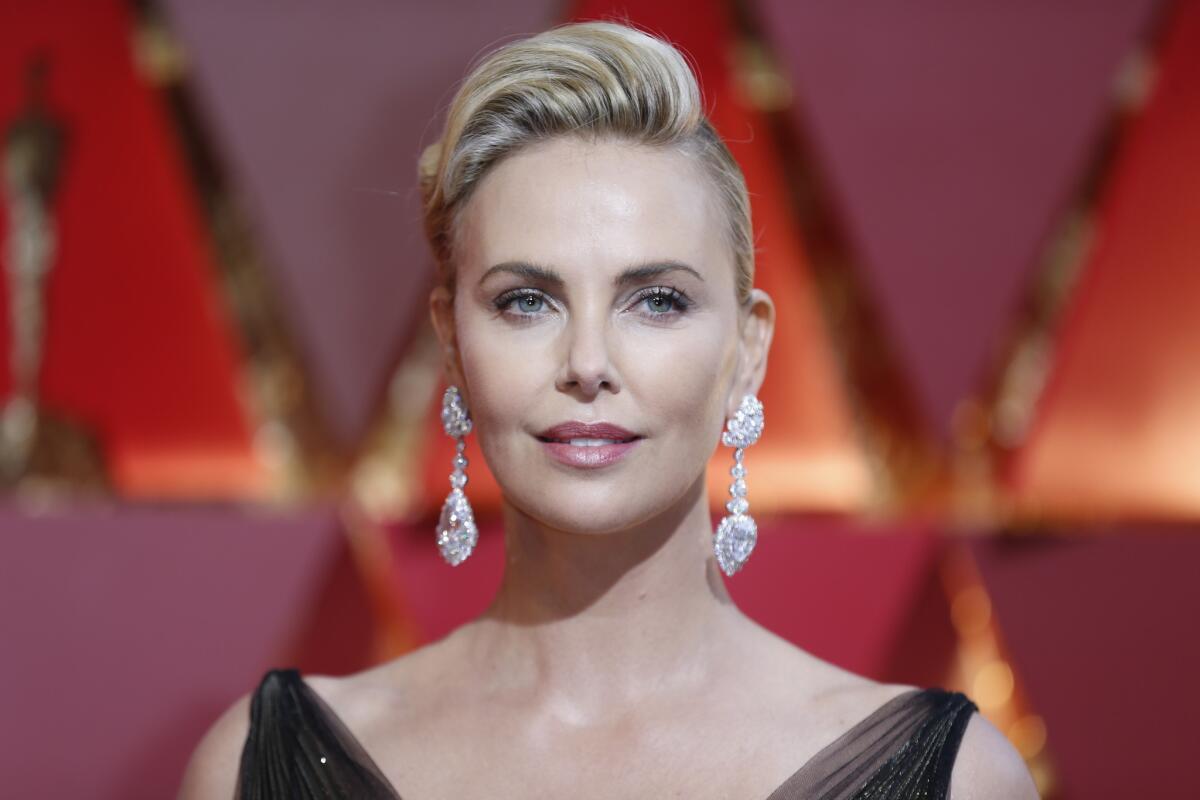
In case you were wondering, jewelry certainly matters, especially at the Oscars.
With Furiosa-worthy earrings, Charlize Theron shows she’s so tough, even her earlobes can support a mine’s worth of diamonds.
Chopard supplied the gems, featuring a 25-carat pear-shaped D-flawless diamond and 26-carat heart-shaped D-flawless diamond, plus 4.55 carats of pear-shaped diamonds and 4.35 carats of brilliant-cut diamonds set in 18-karat white gold from the Garden of Kalahari Collection.
PHOTO GALLERY: OSCARS BEST AND WORST RED CARPET LOOKS >>
- Share via
OMG, Emma Stone looks so beautiful
Memes aside, Emma Stone does look really great tonight.
- Share via
Watch Jimmy Kimmel’s Oscars edition of ‘Mean Tweets’
Oscars nominees and past winners are not exempt from the wrath of the Twitterverse. Host Jimmy Kimmel demonstrates.
- Share via
Oscar winner on how ‘La La Land’s’ cinematography so perfectly captured Los Angeles
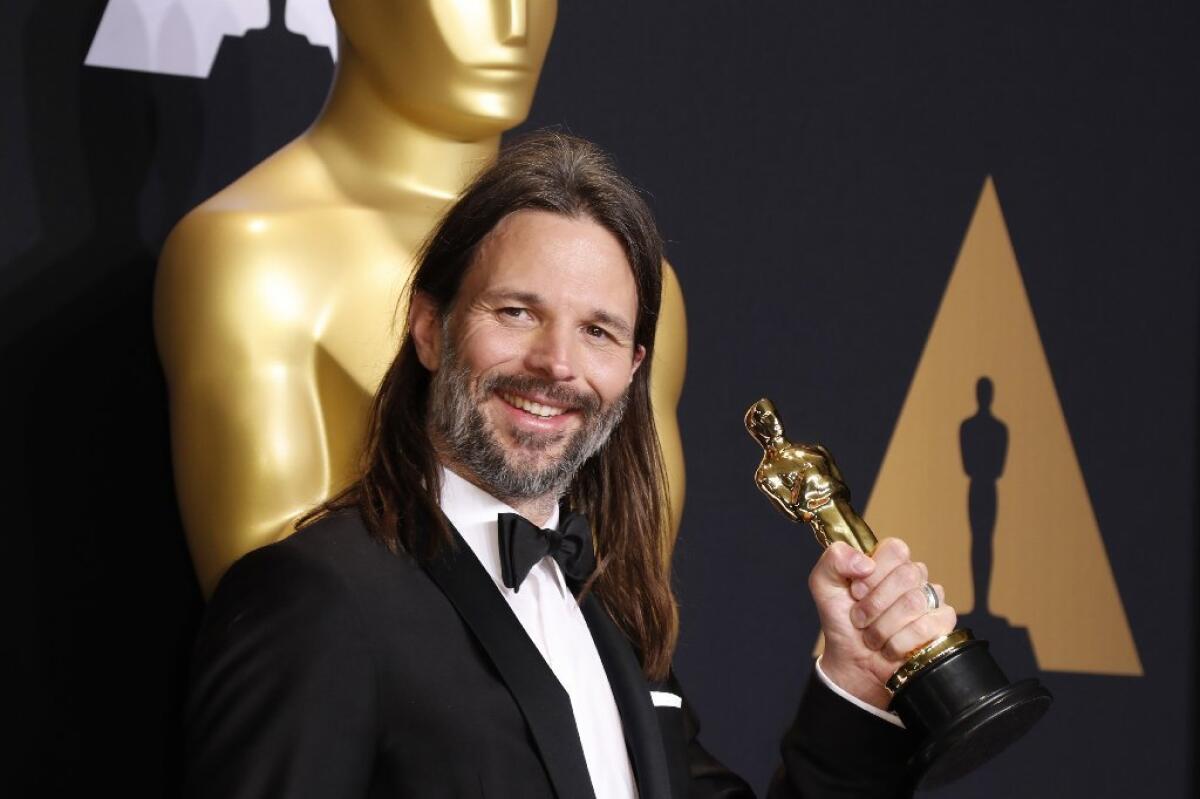
Linus Sandgren, who marked the first big win of the night for “La La Land,” for cinematography, talked about the innate and unexpected charm of Los Angeles during a quick stop backstage with his statue.
“I think it’s a really beautiful, interesting mix of the urban gritty city and the beauty of nature,” he said. “It’s an incredible mix. Sometimes I drive home on Santa Monica Boulevard in Hollywood, and there are lots of telephone poles, but against this lovely sky and sunset. It’s remarkable.”
His favorite scene in the film is Emma Stone’s dream-like audition.
“It’s so simple — no colors, a bit dim, but it was quite complicated to do,” he said. “It can be more interesting to do simple scenes, and in this film, which is so bold all the time, that scene is so intimate.”
- Share via
A year after #Oscarssowhite, a record-breaking night for black filmmakers and actors
A year after the #Oscarssowhite outrage dominated awards season, a record-breaking number of African Americans -- six in five categories -- left the Dolby Theatre with statuary. The previous record was three at the shows in 2010 and 2014.
Viola Davis won tonight for supporting actress in “Fences.” Mahershala Ali took home the statue for supporting actor in “Moonlight,” setting another record: the first Muslim actor to win an Oscar. Ezra Edelman, who is biracial, won best documentary for “O.J. Simpson: Made in America,” and Barry Jenkins and Tarell Alvin McCraney won for adapted screenplay for “Moonlight.”
UPDATE: One more win: After a false start with “La La Land,” “Moonlight” took home best picture.
- Share via
‘Animated films don’t have to be just for kids,’ say ‘Zootopia’ creators after Oscar win
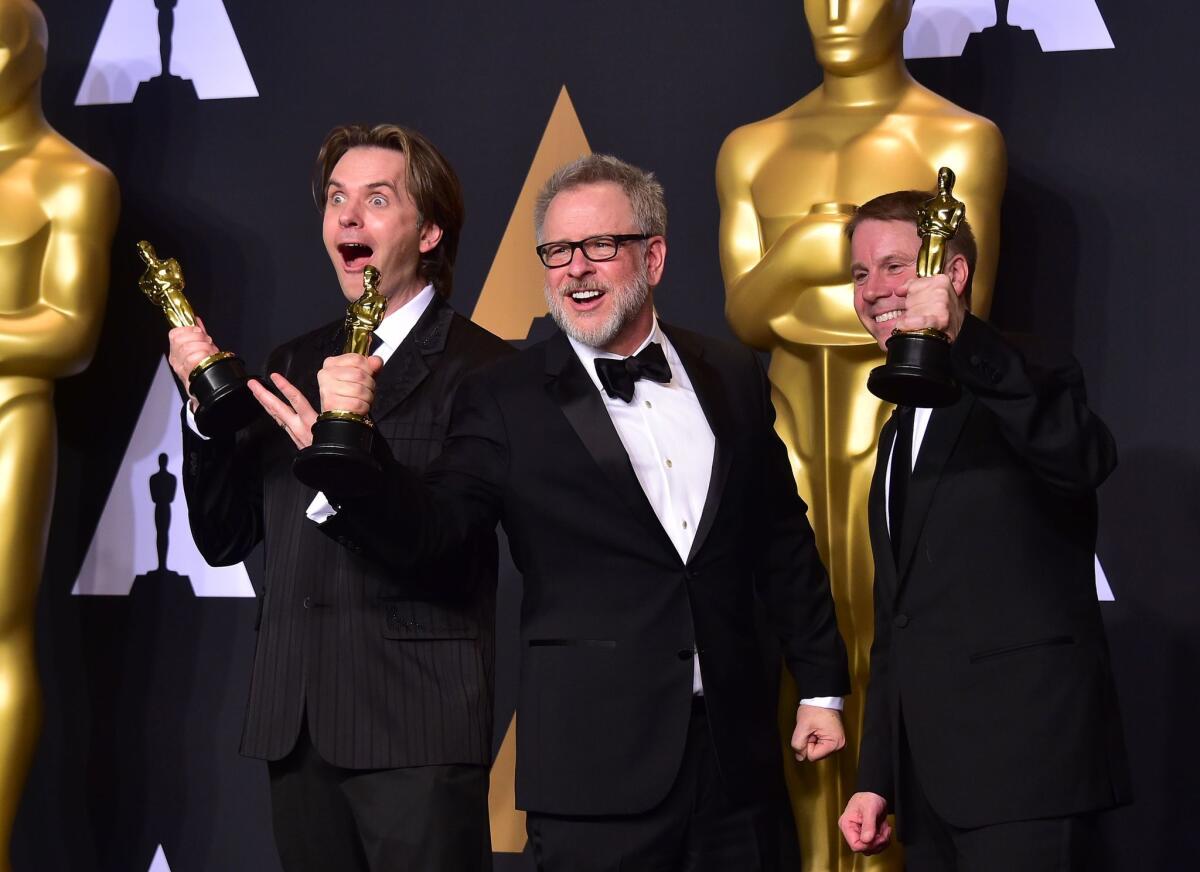
“Zootopia” co-directors Byron Howard and Rich Moore were bursting with pride backstage at the Oscars.
“With this film we got the idea to talk about bias with talking animals — we wanted animals to serve for stand-ins for all of us,” said Howard, adding, “we were surprised how timely the film became as the world started to blow up.”
Howard and Moore said the film turned increasingly political after the fraught presidential election.
Both were aware of the impact the film could have and worked with an expert on bias for two years. Thirteen versions of the film were made before it was finalized.
“When I watched movies and heard stories as a kid, I thought stories just entertained us, but as I got older I realized we were giving back,” said Moore.
“Animated films don’t have to be just for kids,” said Howard.
The win marked Disney’s fifth straight one in the category.
“Our studio employs artists from all over the world,” Moore said. “There’s no way we could make these movies without the talent of international artists.”
- Share via
Emma Stone wins for ‘La La Land’
Emma Stone’s turn as an aspiring actress working in a coffee shop and going on humiliating auditions won her the lead actress Oscar.
Stone, whose character Mia shares an apartment with three other women and falls in love with a jazz pianist played by Ryan Gosling, was the one to beat. She had won most major awards and was considered a near lock in the category.
Other nominees included:
Natalie Portman, “Jackie”
Ruth Negga, “Loving”
Meryl Streep, “Florence Foster Jenkins”
Isabelle Huppert, “Elle”
- Share via
‘Moonlight’ writer Tarell Alvin McCraney dedicates his Oscar win to those ‘who don’t see themselves ‘
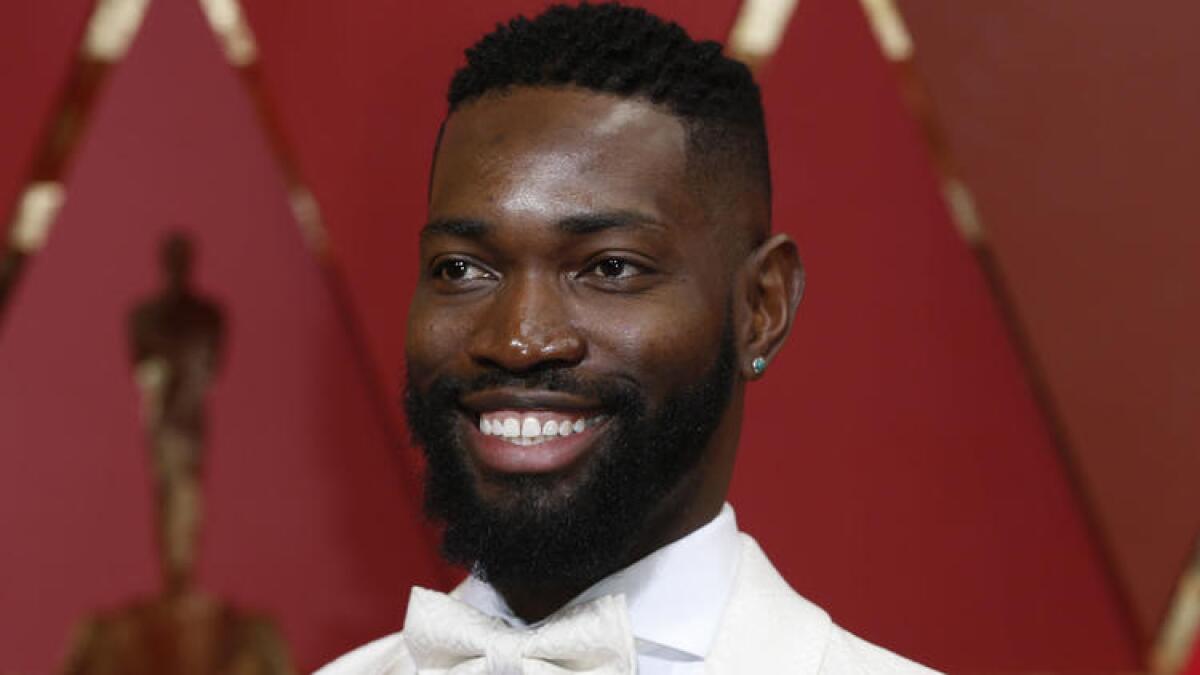
This goes out to all those black and brown boys and girls and non-gender-conforming who don’t see themselves. We’re trying to show you you and us. So thank you, thank you, this is for you.
— Tarell Alvin McCraney, accepting the adapted screenplay Oscar with Barry Jenkins
- Share via
Casey Affleck wins for ‘Manchester by the Sea’
Casey Affleck won the lead actor Oscar for his role in “Manchester by the Sea” playing a man overwhelmed by grief and guilt.
Affleck was the critics’ favorite who steamrolled through the early part of the awards season but then lost the Screen Actors Guild award to Denzel Washington.
In “Manchester,” Affleck’s character is named the guardian of his teenage nephew, Patrick (Lucas Hedges, in a breakout performance and a supporting actor nominee), after his brother’s sudden death. He emerges, if briefly, from his self-imposed sentence of solitary confinement and struggles to stick around a world with too many memories.
Other nominees include:
Denzel Washington, “Fences”
Andrew Garfield, “Hacksaw Ridge”
Ryan Gosling, “La La Land”
Viggo Mortensen, “Captain Fantastic”
- Share via
Jimmy Kimmel plays off Matt Damon and it’s one of the best moments of the night
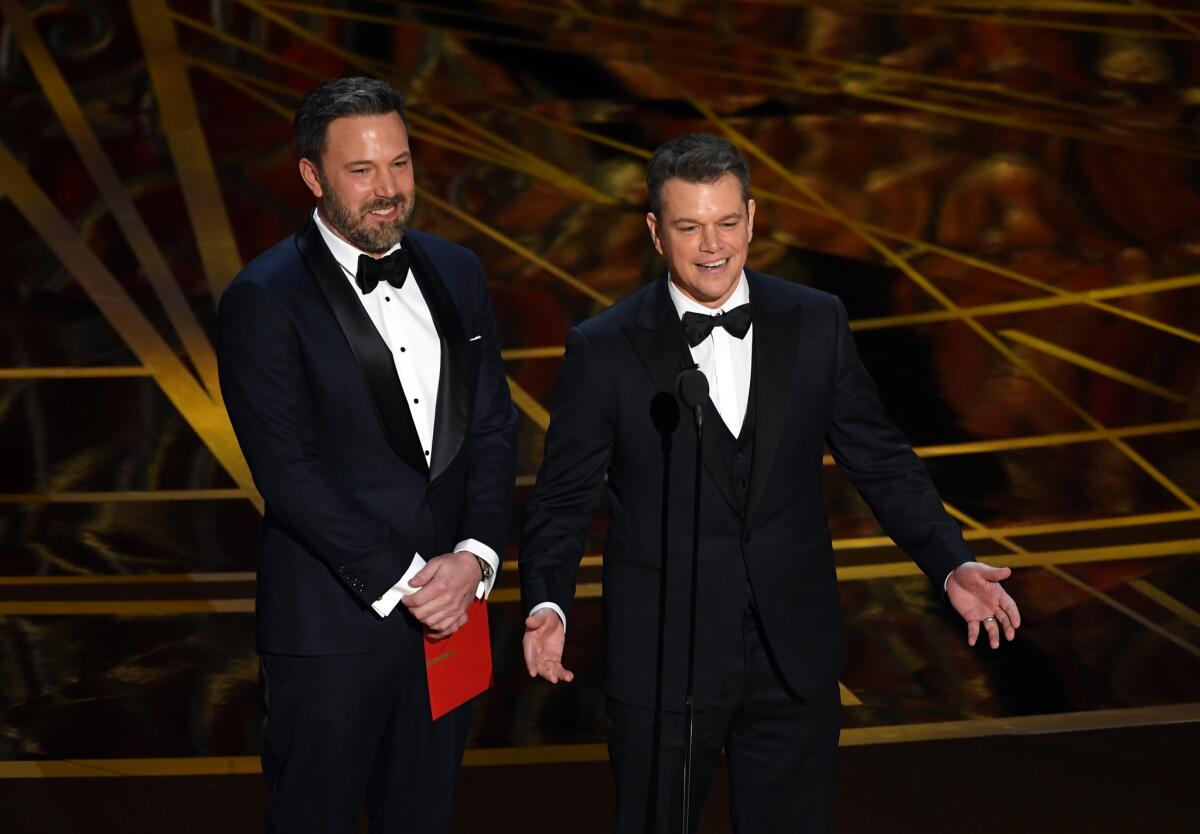
The escalating rivalry between Jimmy Kimmel and actor Matt Damon was expected to heat up on Sunday and Kimmel did not disappoint.
The Oscars host capitalized on several opportunities to burn his arch-rival, who is attending this year’s ceremony as a producer for best picture nominee “Manchester by the Sea.” Kimmel took aim at Damon during his opening monologue, ribbing Damon’s massive flop “The Great Wall.”
“When I first met Matt, I was the fat one,” Kimmel said, before calling Damon “unselfish” for casting childhood friend Casey Affleck in “Manchester” instead of himself.
“Then he made a Chinese ponytail movie instead,” Kimmel quipped. “And that movie, ‘The Great Wall,’ went on to lose $80 million. Smooth move, dumbass.”
Another bit, featuring Kimmel walking the aisles, the host pretended that Damon tripped him.
But the best barb came after the “In Memoriam” segment and featured Kimmel reflecting on Damon’s 2011 film “We Bought a Zoo,” doting on his “effortful” performance.
When Damon and collaborator Ben Affleck were set to present the award for original screenplay, Kimmel introduced them as “Two-time Academy Award winner Ben Affleck and guest.”
As soon as Damon started speaking, the orchestra started cutting him off.
“I’m presenting, you can’t play me off,” Damon cried.
Then the camera cut to the pit where Kimmel was conducting the orchestra.
“Wrap it up. We want to go home,” the host insisted.
- Share via
‘Gary from Chicago’ gets off a tour bus and steals the show
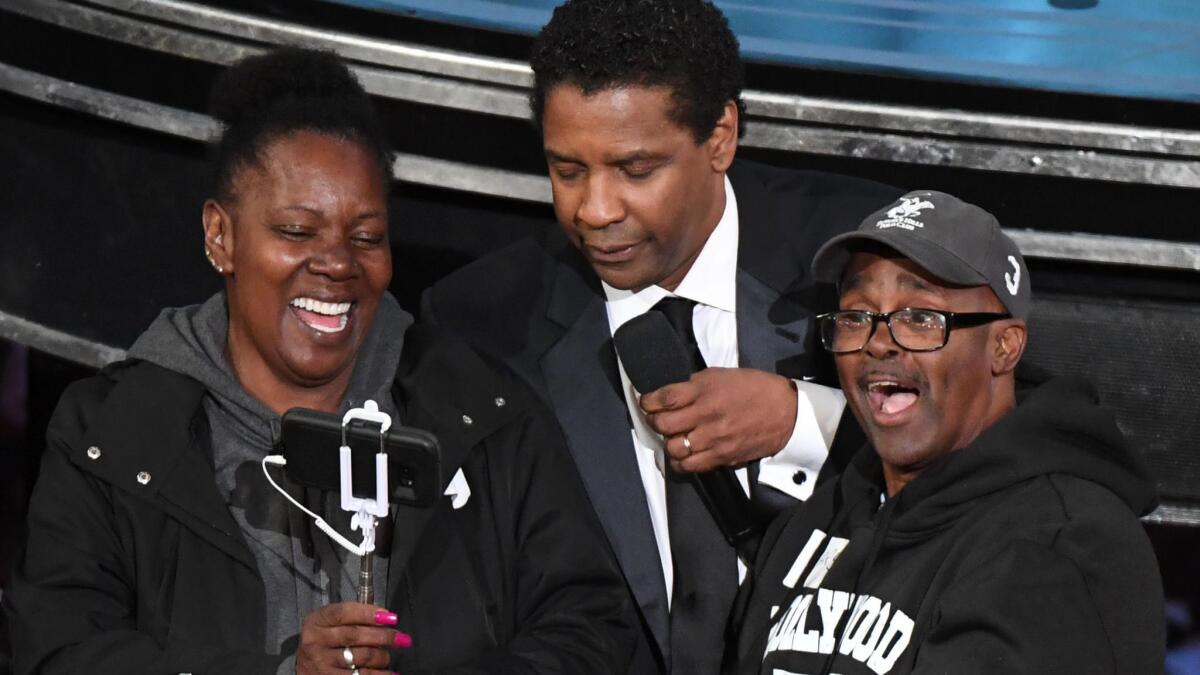
A group of tourists got the surprise of their lives when they ended up in the center of Hollywood’s biggest night.
Believing they were going to an exhibit, the tour-goers instead walked straight into the Dolby Theatre in the middle of the Academy Awards. Phones and selfie sticks in hand, the group shook hands with Oscar nominees, snapped photos with some of their favorite actors, and even touched Mahershala Ali’s Oscar.
Reactions to the segment were mixed on social media. Some viewers complained that it felt like Kimmel was mocking the working class. Others winced at how awkward some of it came across. But “Gary from Chicago” was a hit. He even got an invitation from his hometown team, the Chicago Bulls, for tickets to a home basketball game.
As Kimmel introduced Gary to the household-name entertainers near the front, the host quipped: “I feel like you’re ignoring the white celebrities.”
“I am, though,” Gary quipped.
Check out some of the reactions:
- Share via
Halle Berry is still the only woman of color to win the lead actress Oscar
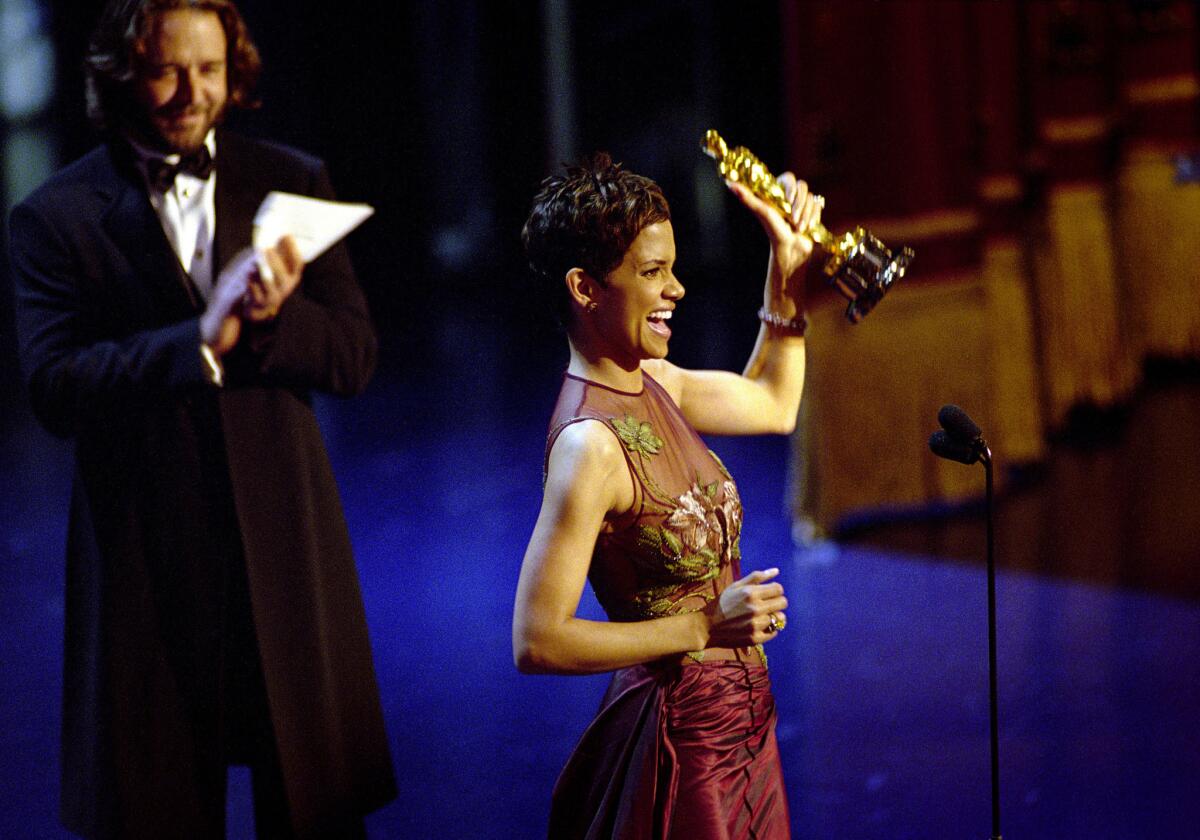
In 2002, Halle Berry made history. She was the first black woman to win the lead actress Oscar for her role in Marc Forster’s “Monster’s Ball.” In her acceptance speech, she dedicated the win to “the women that stand beside me, Jada Pinkett [Smith], Angela Bassett, Vivica Fox.”
“And it’s for every nameless, faceless woman of color that now has a chance because this door tonight has been opened,” she said. “Thank you. I’m so honored.”
But 15 years later, the door allegedly opened that night has not seen another woman of color enter it since. That’s not because lack of talent or nominations.
Since Berry’s win, eight women of color have been nominated in the category, from Salma Hayek (“Frida”) the year following to Gabourey Sidibe (“Precious”) in 2010. This year, Ruth Negga of “Loving,” is the eighth.
In total, in almost 90 years of the Academy Awards, only 16 women of color have been nominated in the lead actress category. See them all below:
- Dorothy Dandridge, “Carmen Jones”
- Diana Ross, “Lady Sings The Blues”
- Cicely Tyson, “Sounder”
- Diahann Carroll, “Claudine”
- Whoopi Goldberg, “The Color Purple”
- Angela Bassett, “What’s Love Got to Do With It”
- Fernanda Montenegro, “Central Station”
- Halle Berry, “Monster’s Ball”
- Salma Hayek, “Frida”
- Keisha Castle-Hughes, “Whale Rider”
- Catalina Sandino Moreno, “Maria Full of Grace”
- Penélope Cruz, “Volver”
- Gabourey Sidibe, “Precious”
- Viola Davis, “The Help”
- Quvenzhané Wallis, “Beasts of the Southern Wild”
- Ruth Negga, “Loving”
- Share via
Regretful fashion misses at the Oscars
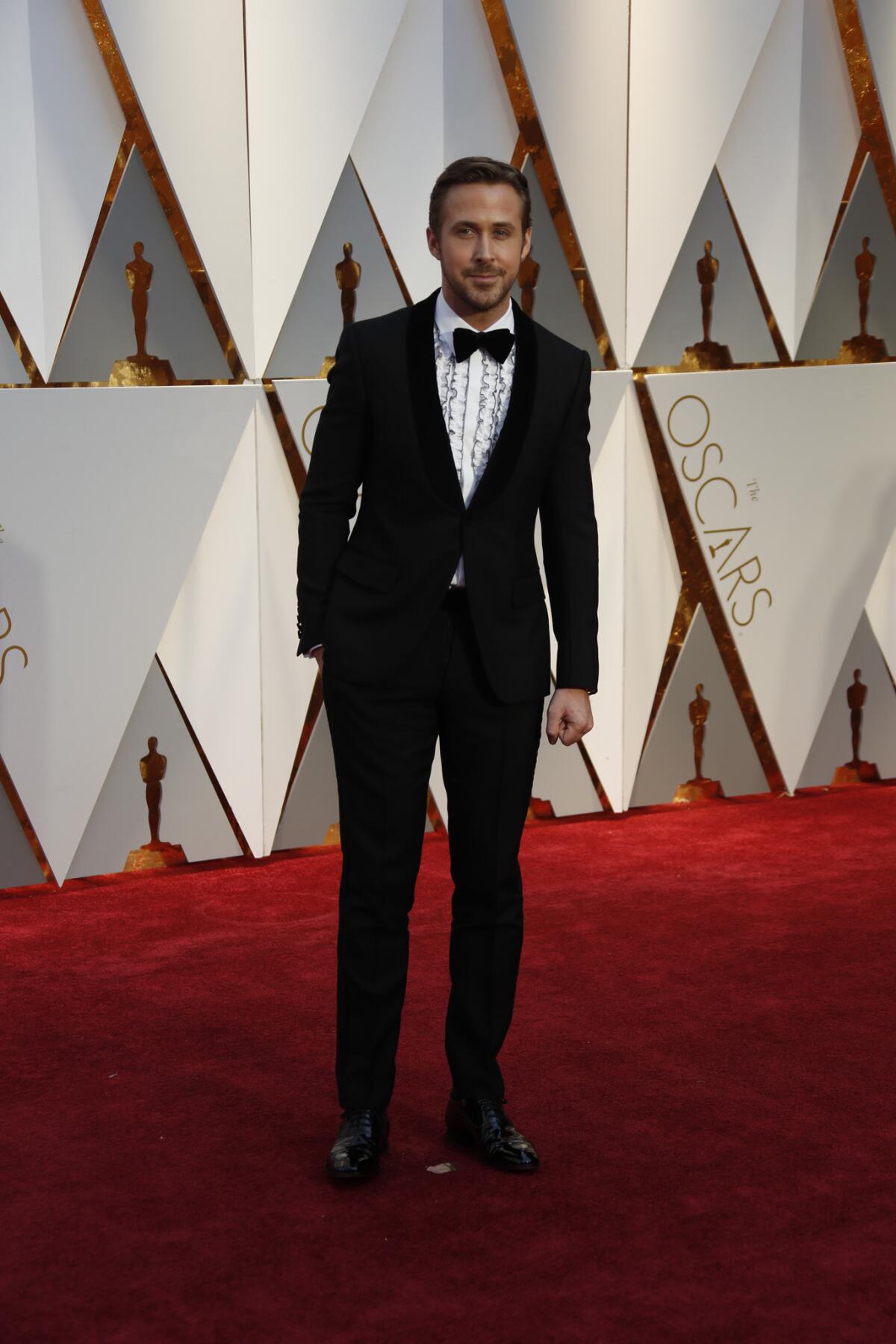
Ryan Gosling could wear anything and cut a striking figure but a ruffled tuxedo shirt? Really?
In an otherwise impeccably cut, shawl-collared Gucci tuxedo, he looks like a lounge singer.
Right -- “La La Land” and all. We get it. Still, he should have left the ruffles at home.
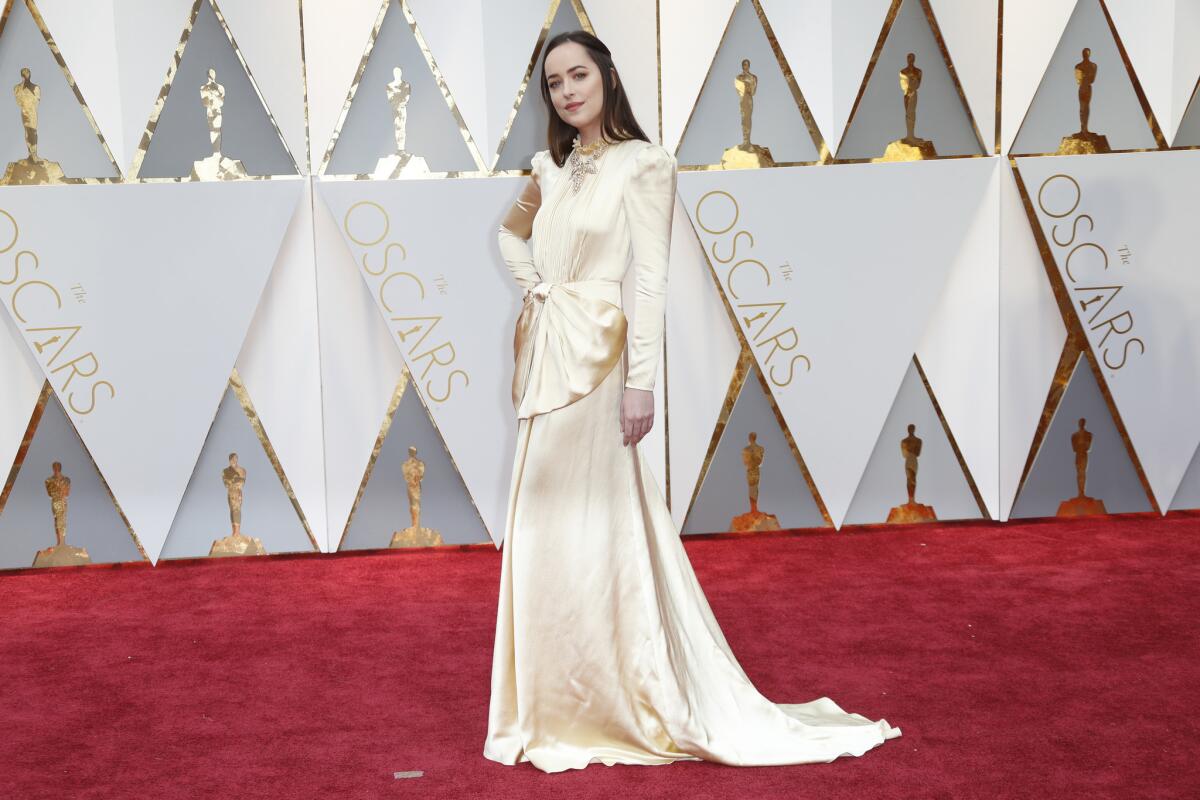
Um, what’s going on here in Dakota Johnson’s Gucci dress? It looks like a Medieval costume, which is fine for a Renaissance fair but not the Oscars.
She looks shrouded in all the fabric, the shoulder-padded sleeves, the gigantic waist-wrapping bow.
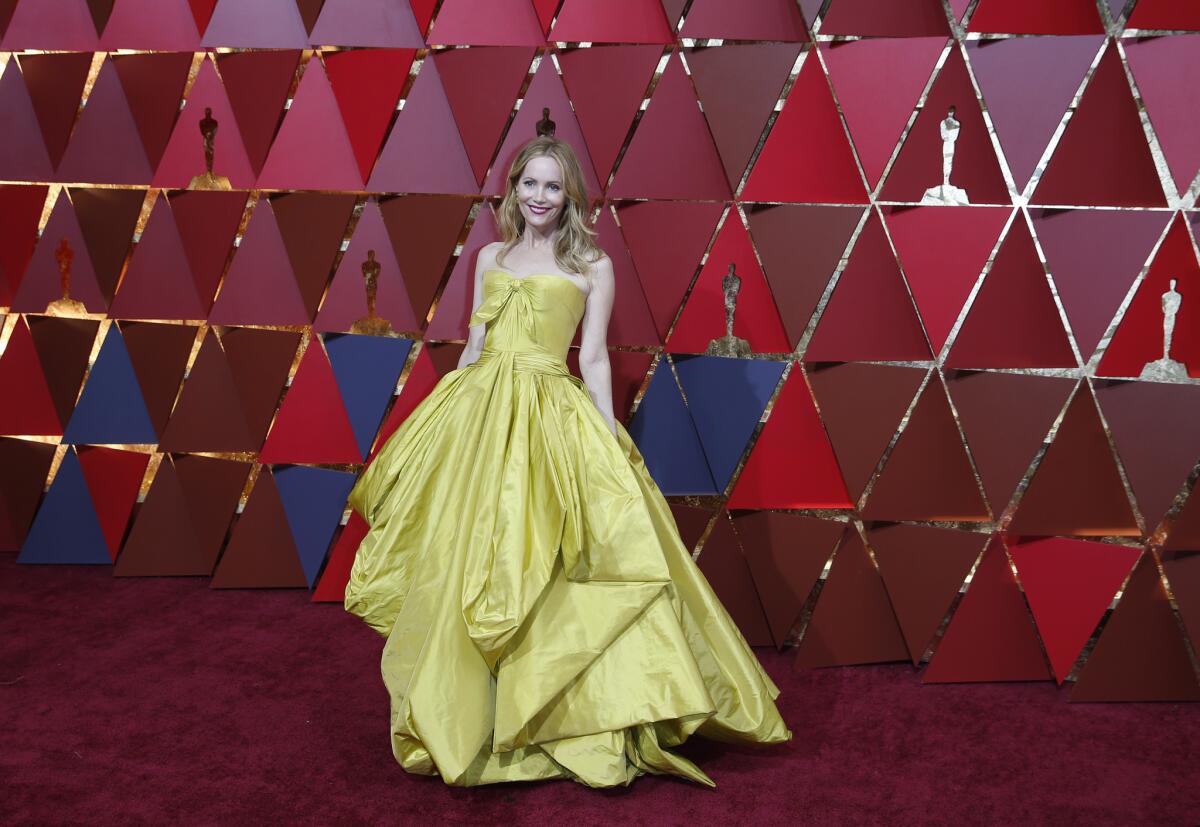
Leslie Mann usually looks sleek and elegant, but this voluminous Zac Posen gown in a weirdly unflattering yellow just overwhelms her.
She looks like she’s carting billowy bed sheets (albeit really expensive ones).
- Share via
John Legend takes a trip to ‘La La Land’
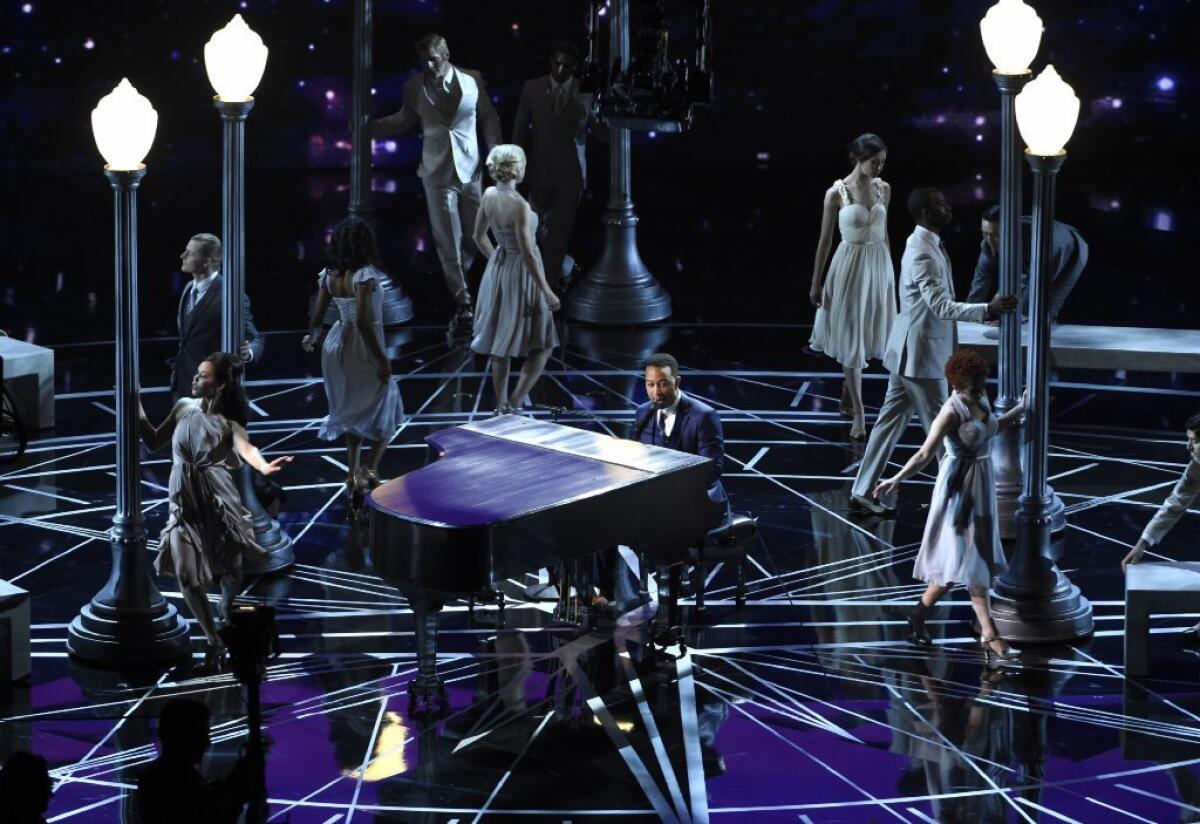
Among the many things “La La Land” has been chastised for, the movie musical’s casting of two non-singers in Ryan Gosling and Emma Stone ranks pretty low on my list.
But that’s the criticism the Oscars seemed to push back on by having John Legend perform the movie’s two nominated songs, “City of Stars” and “Audition (The Fools Who Dream).”
So how’d he do?
Well, Legend certainly proved he’s a singer, flexing a vocal range that surpassed Gosling’s and Stone’s put together.
But to my ears this super-smooth crooner also milked the music’s emotion a bit more than was necessary, which made the songs feel kind of glib.
- Share via
Damien Chazelle wins best director for ‘La La Land’
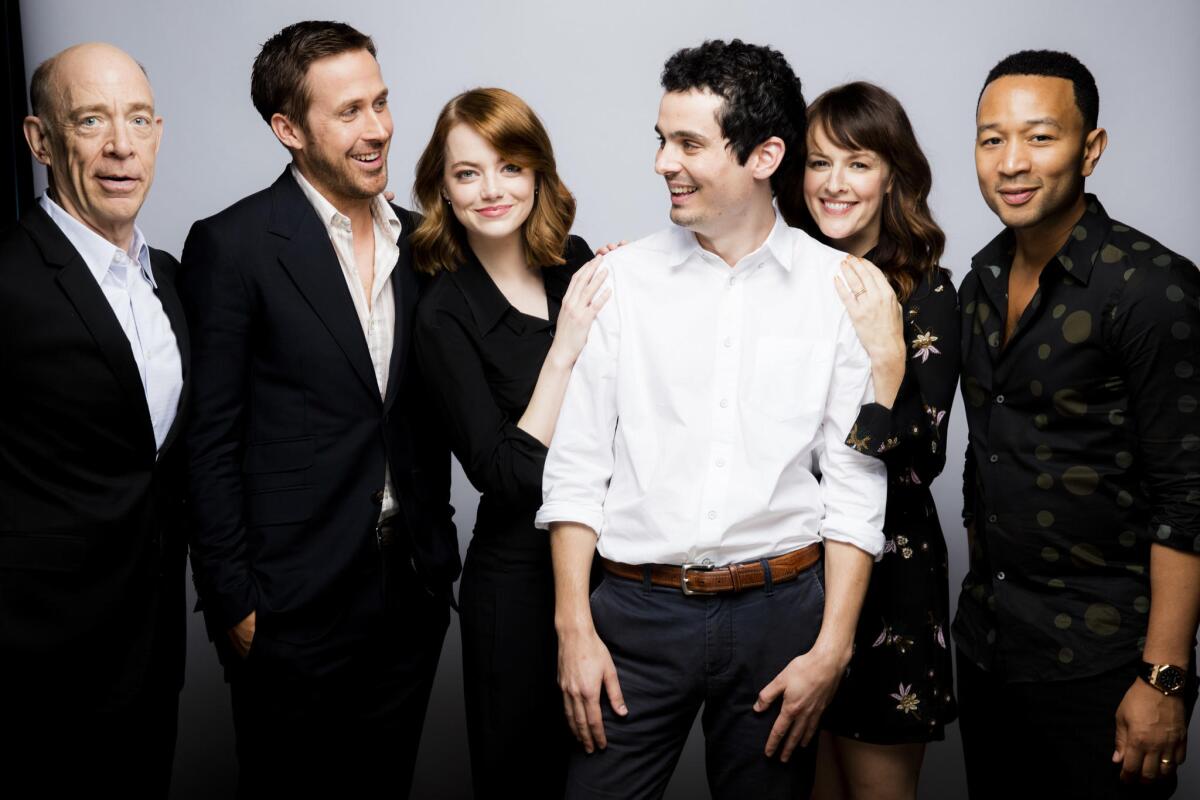
Damien Chazelle won the best director Oscar for his film “La La Land,” a candy-colored musical romance starring Ryan Gosling and Emma Stone. At 32, Chazelle became the youngest person to win in the director category.
Last year, his film “Whiplash” was nominated for five Oscars, including best picture.
In an essay on musicals for The Times, Chazelle wrote, “I wanted to make a movie that would embrace the magic of musicals but root it in the rhythms and texture of real life. I wanted the dances to feel like honest extensions of the characters’ feelings. I wanted to make it seem as though breaking into song were the most natural thing in the world. I wanted to make a movie about how life feels when you’re in love and full of dreams in the big city. “
The other nominees were:
Denis Villeneuve, “Arrival”
Mel Gibson, “Hacksaw Ridge”
Barry Jenkins, “Moonlight”
Kenneth Lonergan, “Manchester by the Sea”
- Share via
Samuel L. Jackson made it through only 20 minutes of ‘La La Land’
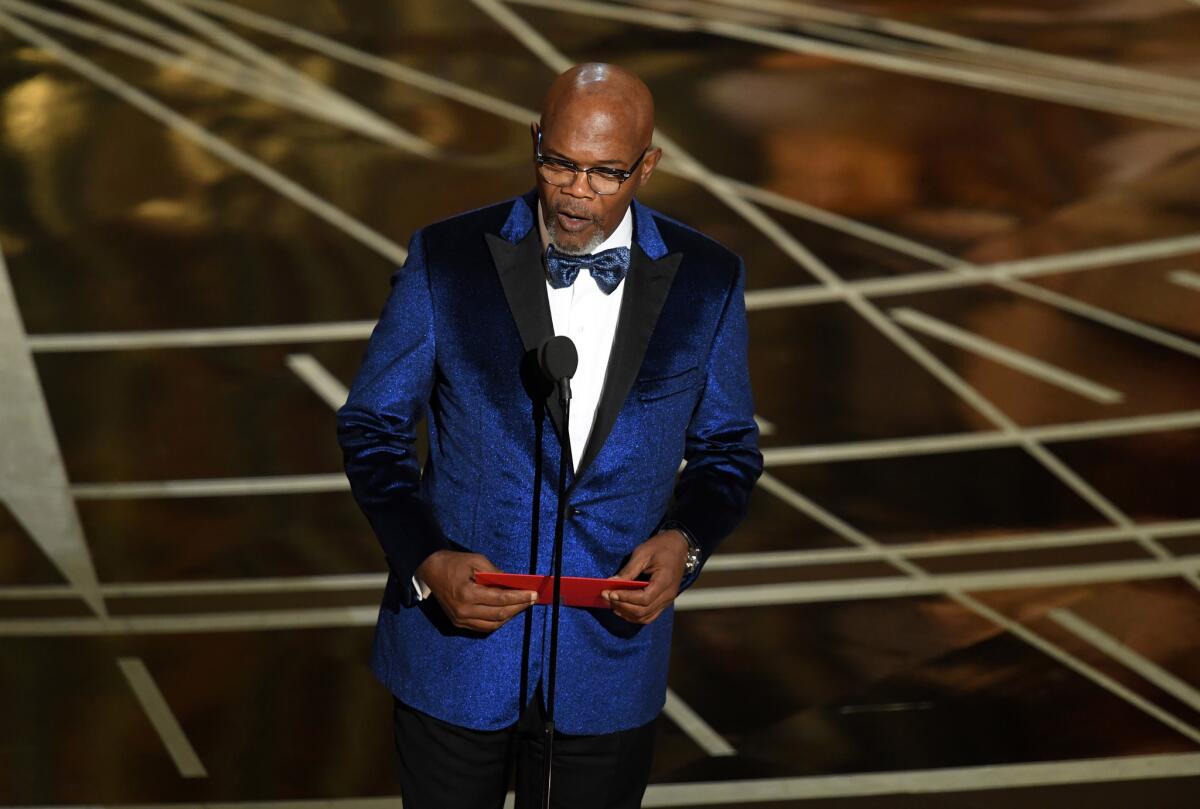
Motion picture academy member Samuel L. Jackson sees all the nominated movies, but he admitted that he did not quite make it through all of this year’s nominees.
The movie everybody’s so hyped on, I only made it through 20 minutes. I mean, I like Fred Astaire and Ginger Rogers.
— Samuel L. Jackson
- Share via
‘The art form is the pencil’: Alan Barillaro and Marc Sondheimer of ‘Piper’ on their Oscar win
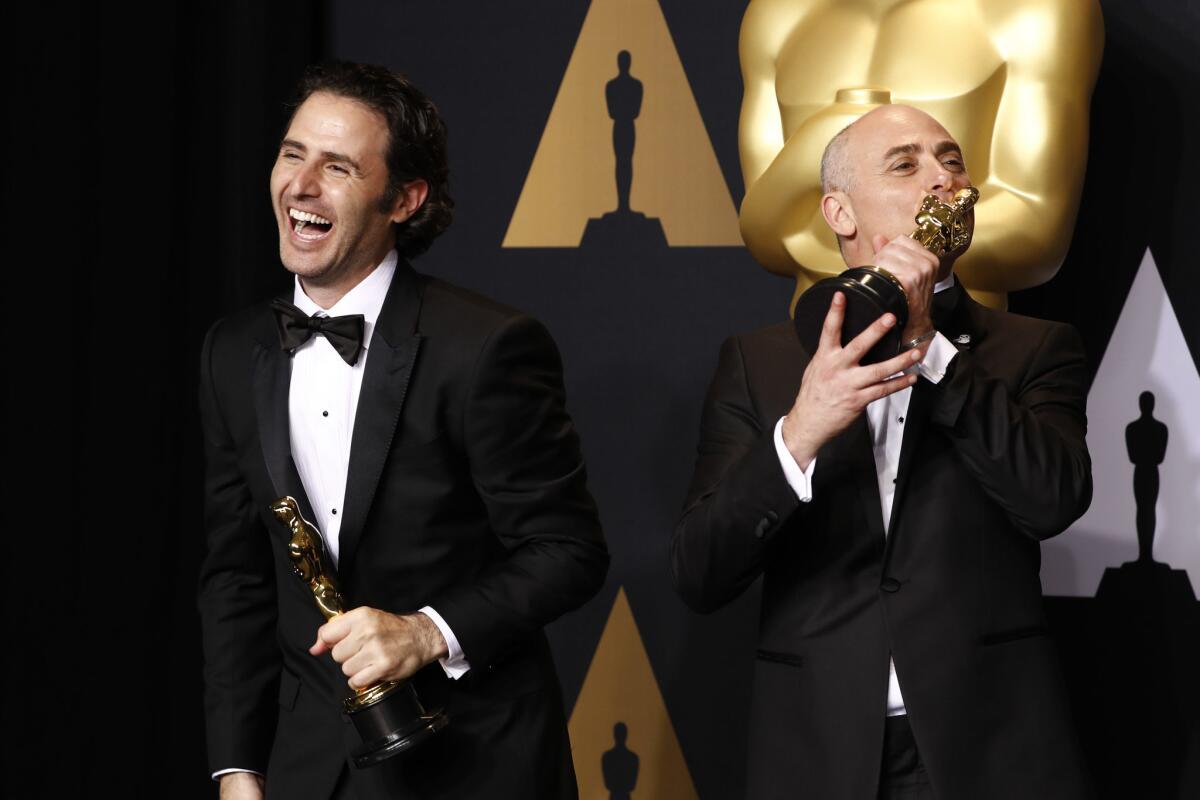
In their near identical tuxedos, Alan Barillaro and Marc Sondheimer were the dynamic duo of humility and cool, backstage in the press room after winning animated short for Pixar’s rite-of-passage story “Piper.”
“It’s quite an honor,” Barillaro said, “and four of those [other] nominees, we’re so proud to have our names next to those colleagues. It’s nice to celebrate short films with them.”
About the technology that made the film possible, Barillaro added: “When you talk technology, the art form is the pencil … we ignored the world of realism and went for the artistic choices. A lot of the work was looking at classical paintings.”
Animating baby birds – grown up birds too – is tricky business. And Barillaro and Sondheimer stressed the research they did to prepare.
“The challenge as an animator is you need to understand something before you can animate it,” Barillaro said.
“We studied those birds and that really helped,” Sondheimer said. “For three long years!
- Share via
‘Where’s the real food?’ It’s not inside the Dolby Theatre

Unlike the Golden Globes, which is centered on a boozy dinner, there’s no food or drink allowed inside the Dolby Theatre. Hence the emergency rations of candy that host Jimmy Kimmel has been dropping from the rafters to hungry stars.
The show’s producers planned a candystravaganza for the 89th Academy Awards after the Emmys scored a meme-able moment by having the “Stranger Things” kids pass out peanut butter and jelly sandwiches on the air.
But at the Oscars there isn’t a PB&J in sight -- only Junior Mints, Red Vines and other assorted candies to get guests through the long haul, passed out once every four commercial breaks to those inside the theater.
That means that nominees have to sneak out to the bar area to keep their blood sugar -- and their booze levels -- up.
Those looking to nosh, however, don’t have many options.
Most hobnobbers made a beeline for one of two open bars in the Dolby Theatre lobby as soon as the show began. Halfway through the show in the more intimate side bar, Taraji P. Henson and Terrence Howard had a mini “Empire” reunion while in line for drinks.
But as the night wore on, hungry bellies that had been starved for weeks to fit into tuxes and evening gowns drove guests to the lone snack table, where tiny bags of Japanese rice crackers and cookies provide the evening’s only sustenance. (This just in: They’re now out of rice crackers and have added small bags of trail mix.)
“Where’s the REAL food?” grumbled one well-dressed gentleman, surveying the limited spread.
“This is it, until the Governors Ball!” answered a cheery Oscars staffer. Then again, not every attendee gets a ticket to the official (and catered) Oscars after party.
He begrudgingly grabbed a bag of three miniature cookies and walked off -- toward the bar.
- Share via
How Tarell Alvin McCraney’s Yale School of Drama application became ‘Moonlight’
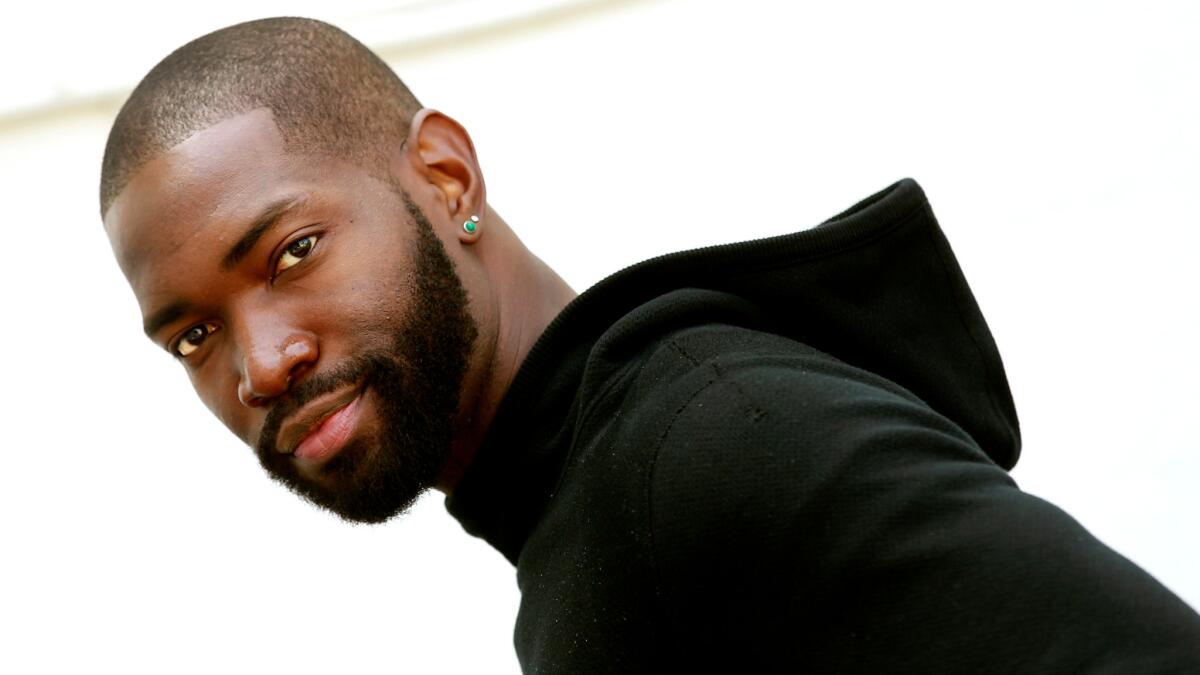
The story of “Moonlight” began long before director Barry Jenkins’ involvement propelled the film to eight Academy Award nominations. In fact, it began in 2003 while then budding-playwright Tarell Alvin McCraney was applying to grad school.
As part of his application to Yale’s School of Drama, he wrote the play “In Moonlight Black Boys Look Blue.” But unlike the film it would eventually become, it played out in a circular motion with life happening for the youngest, middle and oldest versions of the character all at once. (Imagine a kid waking up and brushing his teeth, followed by his adolescent self and adult self doing the same actions.)
“I was trying to figure out what little me and middle me and grown me were doing that was the same and not the same,” McCraney said about the play’s structure and inspiration. “What patterns I was repeating, what is this life?”
The play came out of “a strange time, a time of endings and then new beginnings,” he said. He’d graduated from DePaul University in June with a degree in acting and his mother, who struggled with addiction when he was young and had suffered from AIDS-related complications for the prior 10-year period, died that July.
After enrolling, he put the “Moonlight” play on the shelf knowing that it could not be staged because he had written in visual cues, like cut to’s, that only film allows an artist to do. When he finally picked it back up and gave it to a film professor who told him to finish the script, McCraney responded: “It’s not done? Hm.” (He graduated in 2007.)
Jenkins, who eventually got his hands on the play through mutual friends in the Miami arts scene, was immediately struck by the way McCraney had depicted the mother-son relationship. “Because that happened to me [too],” he said.
Though Jenkins originally wanted McCraney to adapt the unproduced play for the screen, when the playwright won one of the prestigious MacArthur grants in 2013, he became too busy. Luckily, the two had shared enough of their expectations of each other for Jenkins to confidently adapt the play on his own. And though Jenkins is straight, the “Medicine for Melancholy” director said he wanted to maintain the queer voice of the play about the lived experiences of a black gay man written by the black gay man who lived it.
“I felt like the only way to do the translation and have it have the same power as Tarell’s work onstage was to preserve his voice,” Jenkins said. “There were certain scenes and experiences in the play that I had not lived.”
Years later, both Jenkins and McCraney are nominated for an Oscar for the adaptation, for the screenplay and story, respectively.
- Share via
‘Moonlight’ wins adapted screenplay
Barry Jenkins’ script for “Moonlight” won for adapted screenplay. The movie about the coming-of-age of a gay black boy in a drug-infested Miami neighborhood was based on a stage play by Tarell Alvin McCraney.
Other nominees include:
“Lion,” by Luke Davies
“Arrival,” by Eric Heisserer
“Hidden Figures,” by Theodore Melfi and Allison Schroeder
“Fences,” by August Wilson
- Share via
Justin Timberlake loves ‘La La Land’ but doesn’t spend much time thinking about former Mouseketeer pal Ryan Gosling
Justin Timberlake is cool with Ryan Gosling. He’s just not necessarily cool with always being linked to Ryan Gosling.
“Do you talk to people from high school?” he said, with a slightly jokey feistiness when chatted up at the Oscars bar.
JT and the jazzsplainer have been associated with each other ever since their days singing and dancing alongside buddies like future stars Britney Spears and Christina Aguilera in “The All New Mickey Mouse Club.”
“This is, like, middle school,” Timberlake noted of the series, which ran in the late ‘80s and early ‘90s.”I have a kid. He has — what, two kids? You see things differently than you do then.”
The pair were thrust together again this year when Gosling starred in one of the most honored musicals in Oscar history in “La La Land,” including one for himself for best actor, and Timberlake notched an Oscar nod for his “Trolls” song “Can’t Stop the Feeling.”
It was one of two numbers that Timberlake opened Sunday’s show with. The other was a cover of Bill Withers’ R&B classic “Lovely Day.”
“I pushed for that,” Timberlake said, when asked how he persuaded producers to give him time for two numbers. “It just felt appropriate in this climate. And that’s all I’ll say about that.”
He was happy with his performance. “That really did feel like electricity,” he said. “I feel like the room was loose. I feel loose.”
Though Timberlake lost out to a “La La” number for original song, he said he had strong admiration for the Damien Chazelle film. “What Damien did, it’s nothing short of genius,” he said. “Some people believe it’s pastiche. I don’t.”
He added: “I know some people are also mixed on it. That’s the sign of a great movie.”
So would the actor-singer do a throwback musical himself, now that the zeitgeist has moved in that direction?
“I would [do a musical],” he said. “But I wouldn’t do that — it can’t be done any better.”
- Share via
‘Manchester by the Sea’ wins for original screenplay
Kenneth Lonergan won the Oscar for original screenplay for his nuanced and devastating “Manchester by the Sea,” about a man coming out of grief-stricken solitude to deal with the loss of his brother.
Other nominees include:
“Hell or High Water,” by Taylor Sheridan
“La La Land,” by Damien Chazelle
“20th Century Women,” Mike Mills
The Lobster,” by Efthymis Filippou and Yorgos Lanthimos
- Share via
Feels like the Internet is rooting against ‘La La Land’
Plenty of people expected Damien Chazelle’s “La La Land” to sweep the Academy Awards like it did the Golden Globes. After all, it’s nominated in a whopping 14 categories.
But to the great glee of many Twitter users, by the second hour of the show “La La Land” had lost in some of the secondary categories to films like “Hacksaw Ridge” (for film editing) and “Hacksaw Ridge” (sound mixing).
But the night’s not nearly over and the big awards have yet to be announced.
- Share via
Jimmy Kimmel multitasks tweeting at President Trump while hosting the Oscars
Jimmy Kimmel gave POTUS a shout-out live from the Oscars audience on Sunday night. Hey, Sean Spicer said a few days ago that President Trump would be busy with the nation’s governors during the show, but maybe he’d check Twitter?
At the time of this posting, POTUS hadn’t tweeted anything in response. Then again, 3 a.m. on the East Coast is still nearly seven hours away.
- Share via
Scarlett Johansson sang on an Oscar-nominated original song too!
Scarlett Johansson, the presenter for original song at the 89th Academy Awards, is an actress well known for her box-office might.
Thanks in part to her recurring turn as spy-assassin Natasha Romanoff (a.k.a. Black Widow) in the Marvel cinematic universe, Johansson is the top-grossing Hollywood actress of all time. In fact, she was the top-grossing actor of either gender in 2016, according to Forbes.
But when she’s not busy portraying a super-skilled superhero with a dark past, an accidentally super-powered human who reaches a higher state of consciousness, an evolving computer operating system or a cybernetic being combating cyberterrorists for a secret Japanese defense force, Johansson is a musician whose vocal prowess has taken on everything from Tom Waits covers to all-girl “super-pop.”
In fact, Johansson lent her voice to the 2013 Oscar-nominated song “Before My Time” from the documentary “Chasing Ice.” However, since original-song awards are presented to the songwriters, J. Ralph is the only person credited on the nomination.
Her other musical projects include her 2008 debut album “Anywhere I Lay My Head,” predominantly comprising reimaginings of Tom Waits songs, that was produced by Dave Sitek of TV on the Radio and featured collaborations with David Bowie as well as members of the Yeah Yeah Yeahs and Celebration.
In 2009, Johansson collaborated with Pete Yorn for “Break Up,” an album inspired by Serge Gainsbourg’s work with Brigitte Bardot.
Most recently Johansson teamed up with Holly Miranda, Kendra Morris and Julia Haltigan to form a currently unnamed band (at one time called “The Singles”). Their first song, “Candy,” an electro-pop jam released in 2015, also features Este Haim from Haim on the drums. You can listen to the track below.
- Share via
‘White Helmets’ cinematographer was banned from traveling to the Oscars. Here’s his statement when the film won
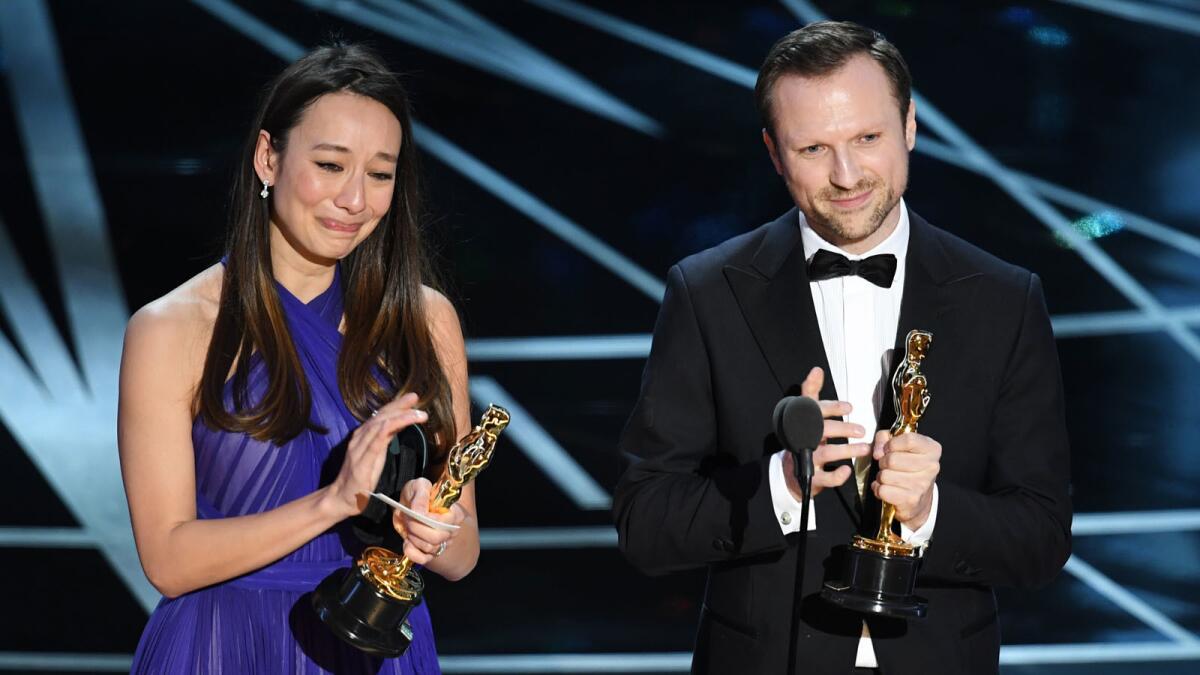
“The White Helmets” cinematographer Khaled Khateeb, 21, could not attend this year’s Academy Awards because he was denied entry to the United States.
Khateeb, according to internal Trump administration correspondence seen by the Associated Press, was blocked by U.S. immigration authorities at the last minute.
The film, which focuses on the rescue efforts of Syrian Civil Defense volunteers, won the Oscar for documentary short. Director Orlando von Einsiedel, who accepted the trophy with producer Joanna Natasegara, read the following statement from Khateeb:
We’re so grateful this film has highlighted our work to the world. Our organization is guided by a verse in the Koran, ‘To save one life is to save all of humanity.’ We have saved more than 82,000 Syrian lives. I’ll invite anyone here who hears me to work on the side of life to stop the bloodshed in Syria and around the world.
— Khaled Khateeb
- Share via
‘City of Stars’ from ‘La La Land’ wins original song Oscar
“City of Stars,” a duet between stars Ryan Gosling and Emma Stone from the musical “La La Land,” won the original song Oscar. The song’s music was written by Justin Hurwitz with lyrics by Benj Pasek and Justin Paul.
Pasek and Paul were tapped to write the lyrics for the songs in “La La Land” after pitching the opening lyrics to “City of Stars”: “City of Stars, are you shining just for me? / City of Stars, there’s so much that I can’t see.”
The win denied Lin-Manuel Miranda, creator of the landmark Broadway musical “Hamilton” and writer of “How Far I’ll Go,” entry into the exclusive EGOT club: winning an Emmy, Grammy, Oscar and Tony.
Other nominees include:
“How Far I’ll Go” (“Moana”)
“Audition (The Fools Who Dream)” (“La La Land”)
“The Empty Chair” (“Jim: The James Foley Story”)
“Can’t Stop the Feeling!” (“Trolls”)
- Share via
‘La La Land’ wins original score
Justin Hurwitz won an Oscar for his score of “La La Land,” the film that came into the ceremony with a record-tying 14 nominations.
Other nominees included:
Mica Levi, “Jackie”
Nicholas Britell, “Moonlight”
Volker Bertelmann and Dustin O’Halloran, “Lion”
Thomas Newman, “Passengers”
- Share via
Oscar winner and newest member of Bachelor Nation, Brie Larson, had Nick Viall over for a watch party
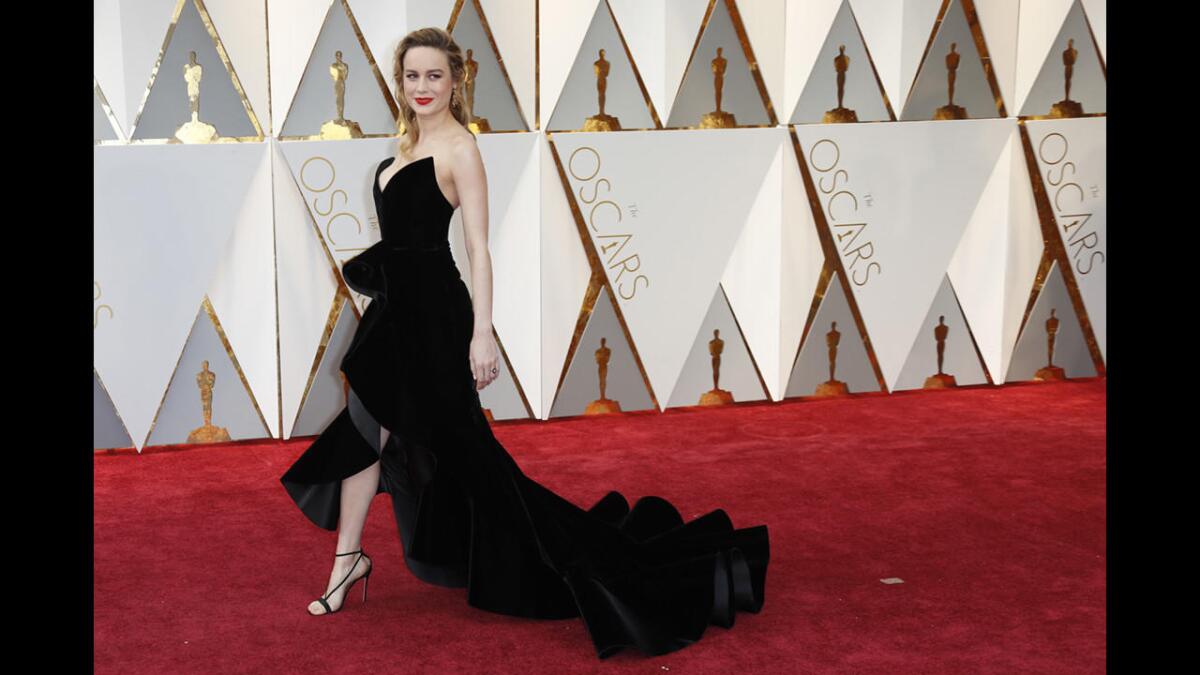
Brie Larson was in her seat when the tourists streamed into the Dolby Theatre, but she still doesn’t know whether they were legitimately plucked off the street.
“I dunno. They didn’t seem that fazed and they were so quiet,” argued her fiancé, Alex Greenwald.
“Yeah, but that’s how everyone was when ‘The Bachelor’ came to our house. Really quiet,” Larson replied.
Wait, Nick Viall crashed a viewing party at the Oscar winner’s place? Apparently so.
Though Larson is new to “Bachelor” watching, she and current bachelor Nick Viall connected through a mutual friend and he surprised her crew one Monday night this season.
“But no one said anything,” Larson explained, “Just like those tourists. So who knows.”
- Share via
‘The White Helmets’ wins documentary short

“The White Helmets,” about first responders in Syria, wins best documentary short.
Other nominees:
“Extremis”
“4.1 miles”
“Joe’s Violins”
“Watani: My Homeland”
- Share via
‘La La Land’ wins cinematography Oscar
Linus Sandgren, who made Los Angeles look like a place where magic hour lasts the entire day in “La La Land,” won for cinematography. It was the movies first big win of the evening.
Other nominees include:
Bradford Young, “Arrival”
Greig Fraser, “Lion”
James Laxton, “Moonlight”
Rodrigo Prieto, “Silence”
- Share via
Don’t forget the true villain of ‘No Country for Old Men’: Javier Bardem’s hair
When Javier Bardem won the Oscar for supporting actor in 2008, he won for embodying true evil in the form of remorseless hitman Anton Chigurh in “No Country for Old Men.”
But it would be a huge oversight to not give proper respect to the most chilling aspect of Bardem’s character: his bizarro pageboy that clearly left the cold-blooded killer with a “boy named Sue” ferocity that haunts our dreams.
So many people died in that movie, it’s a wonder he didn’t start with his barber.
- Share via
Sting keeps it simple for ‘The Empty Chair’

The song is called “The Empty Chair,” but Sting didn’t even use one of those.
For a rendition of his and composer J. Ralph’s tender folk ballad from “Jim: The James Foley Story” — about the journalist killed in 2014 by members of Islamic State — Sting opted for a stripped-down approach at the Oscars, standing simply as he sang and played guitar.
The performance ended with a quote from Foley illuminated on a large screen behind Sting: “If I don’t have the moral courage to challenge authority ... we don’t have journalism.”
- Share via
‘Sing’ wins live action short
Hungarian Kristof Deák’s “Sing,” about a prize-winning grade-school choir and a rule that doesn’t sit well with two of its young participants, won the live-action short documentary.
Other nominees include:
“Ennemis intérieurs,” Selim Azzazi
“La femme et le TGV,” Timo von Gunten
“Silent Nights,” Aske Bang, Kim Magnusson
“Timecode,” Juanjo Gimenez
- Share via
The Oscar gold standard goes fashion forward on the red carpet
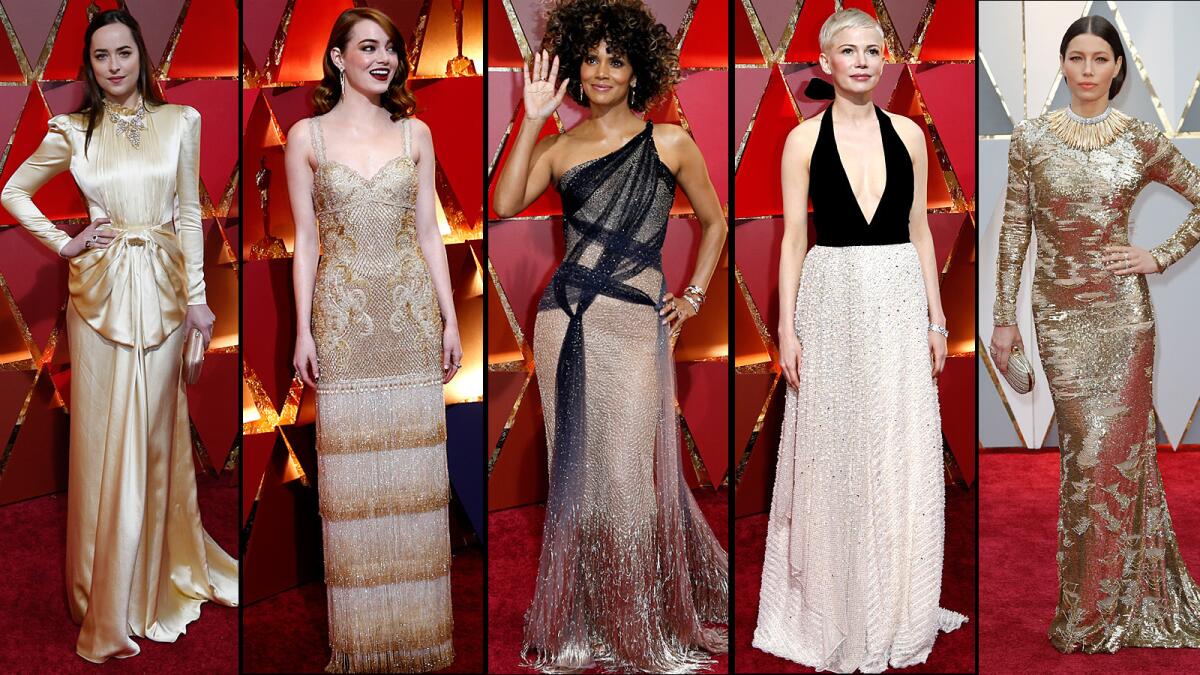
Gold glistens and makes any woman wearing it head to toe look like a million bucks -- or a living Oscar statuette
Trend-setting golden gowns dazzled on Jessica Biel, Dakota Fanning, Halle Berry, Michelle Williams and, with four tiers of gold-tinged fringe, Emma Stone in Givenchy Haute Couture.
PHOTO GALLERY: OSCARS BEST AND WORST RED CARPET LOOKS >>
- Share via
Watch Jimmy Kimmel’s opening monologue to the 89th Academy Awards
Jimmy Kimmel took aim at Matt Damon, President Trump and Meryl Streep during his opening monologue at the Oscars on Sunday -- and admitted that he likely wouldn’t be Hollywood’s great unifier.
“I don’t have to tell anybody, the country is divided right now,” Kimmel said. “I can’t do that. There’s only one Braveheart here, and he’s not going to unite us.”
Watch the whole opening sequence above.
- Share via
‘Hacksaw Ridge’ wins film editing
“Hacksaw Ridge” won the Oscar for film editing.
Other nominees include:
Joe Walker, “Arrival”
Jake Roberts, “Hell or High Water”
Tom Cross, “La La Land”
Nat Sanders and Joi McMillon, “Moonlight”